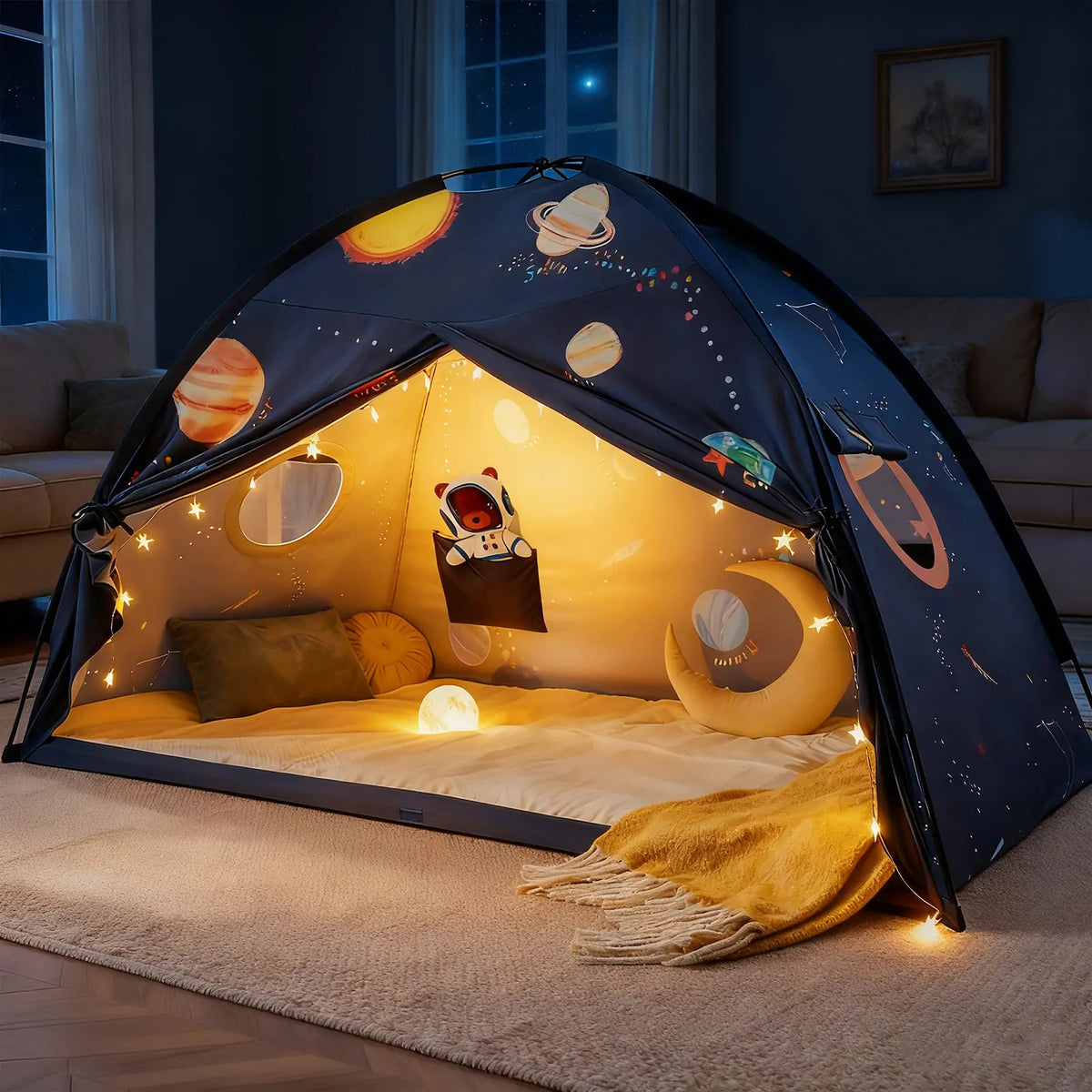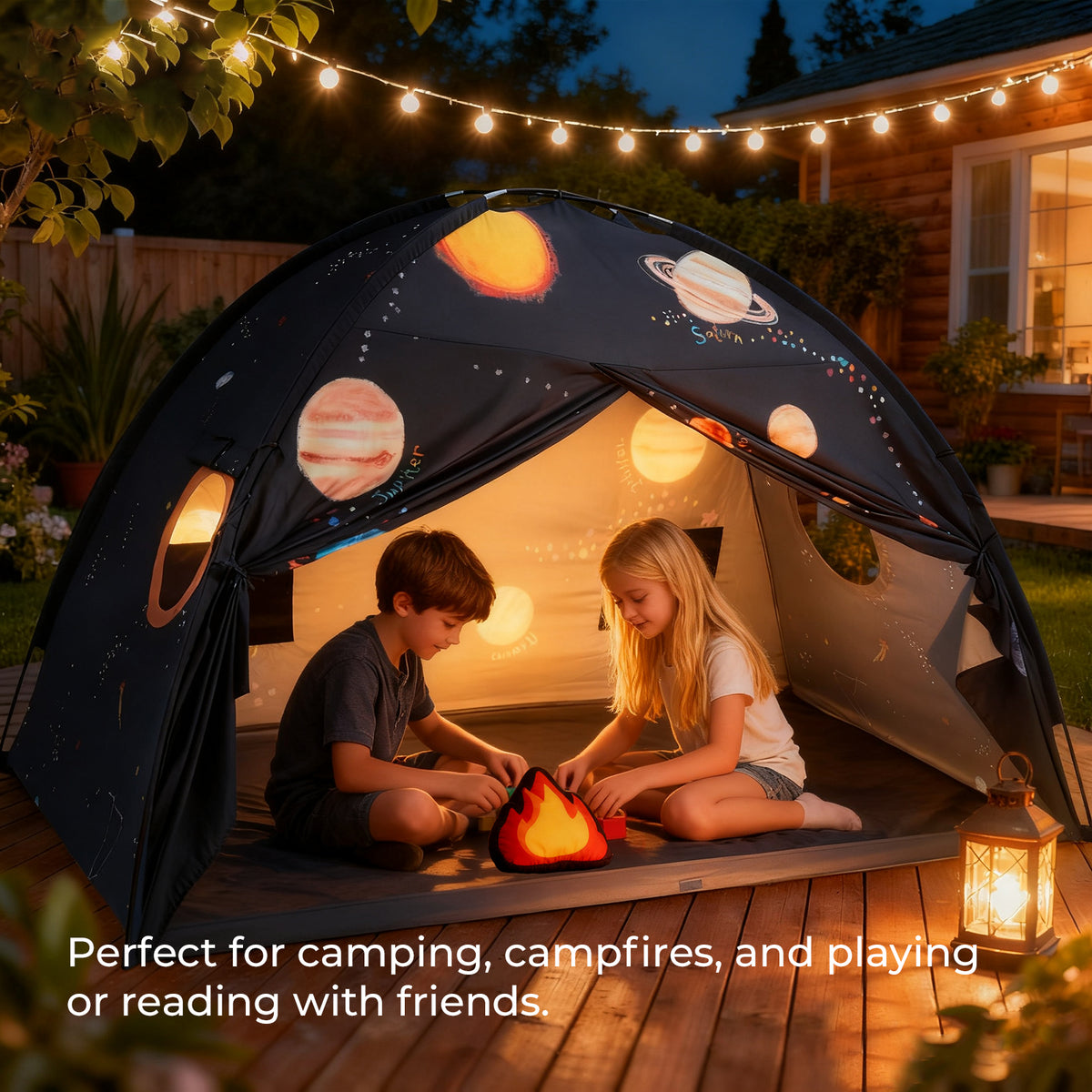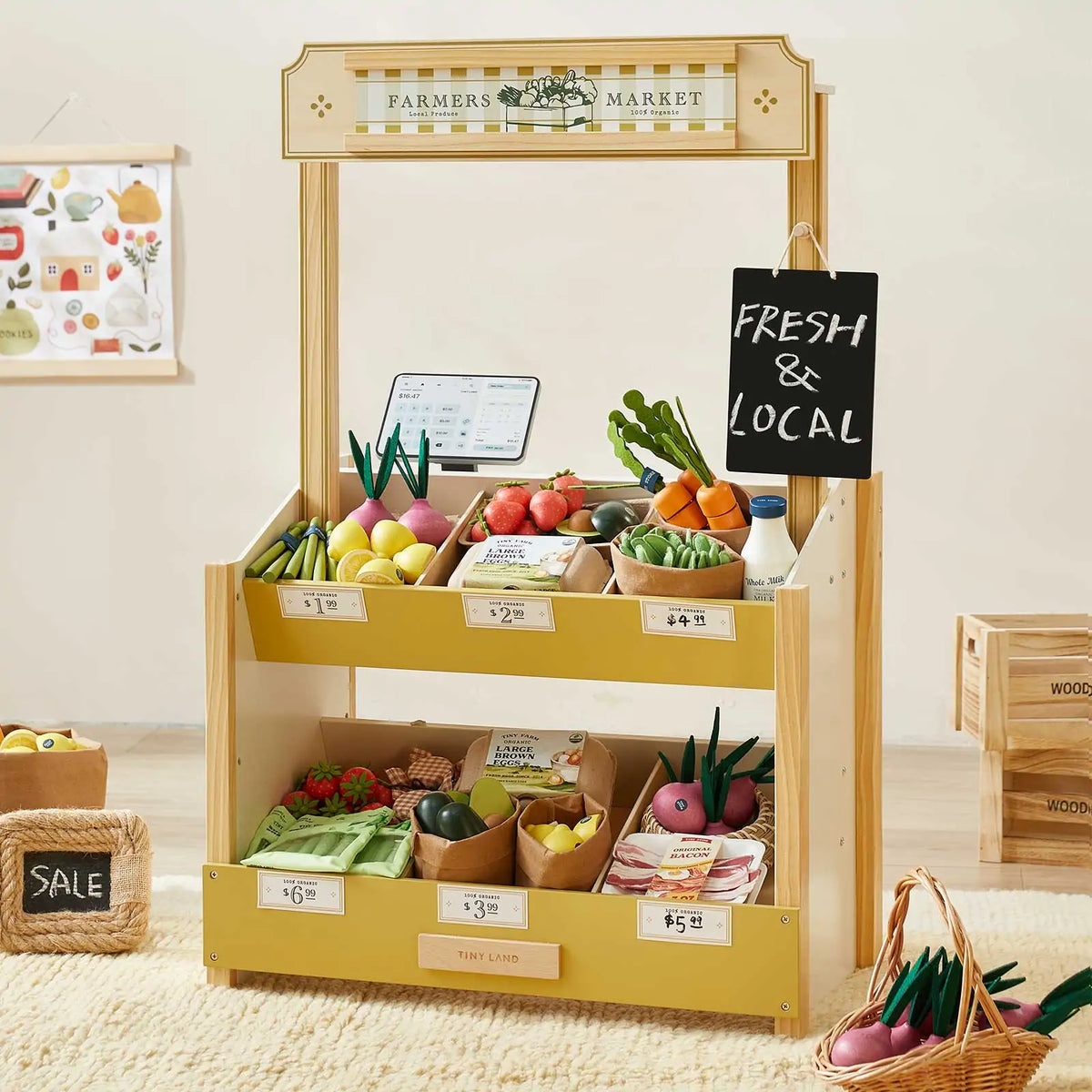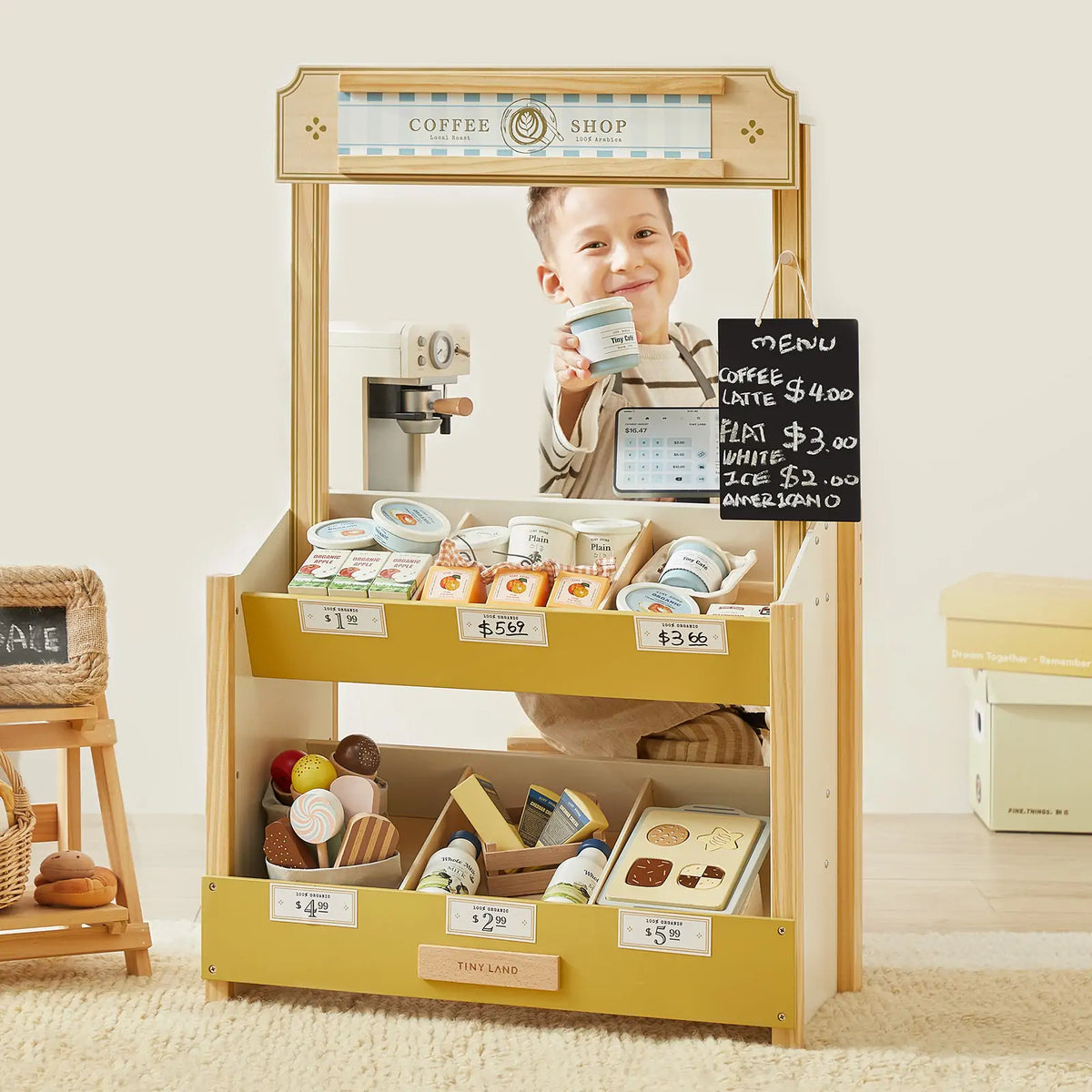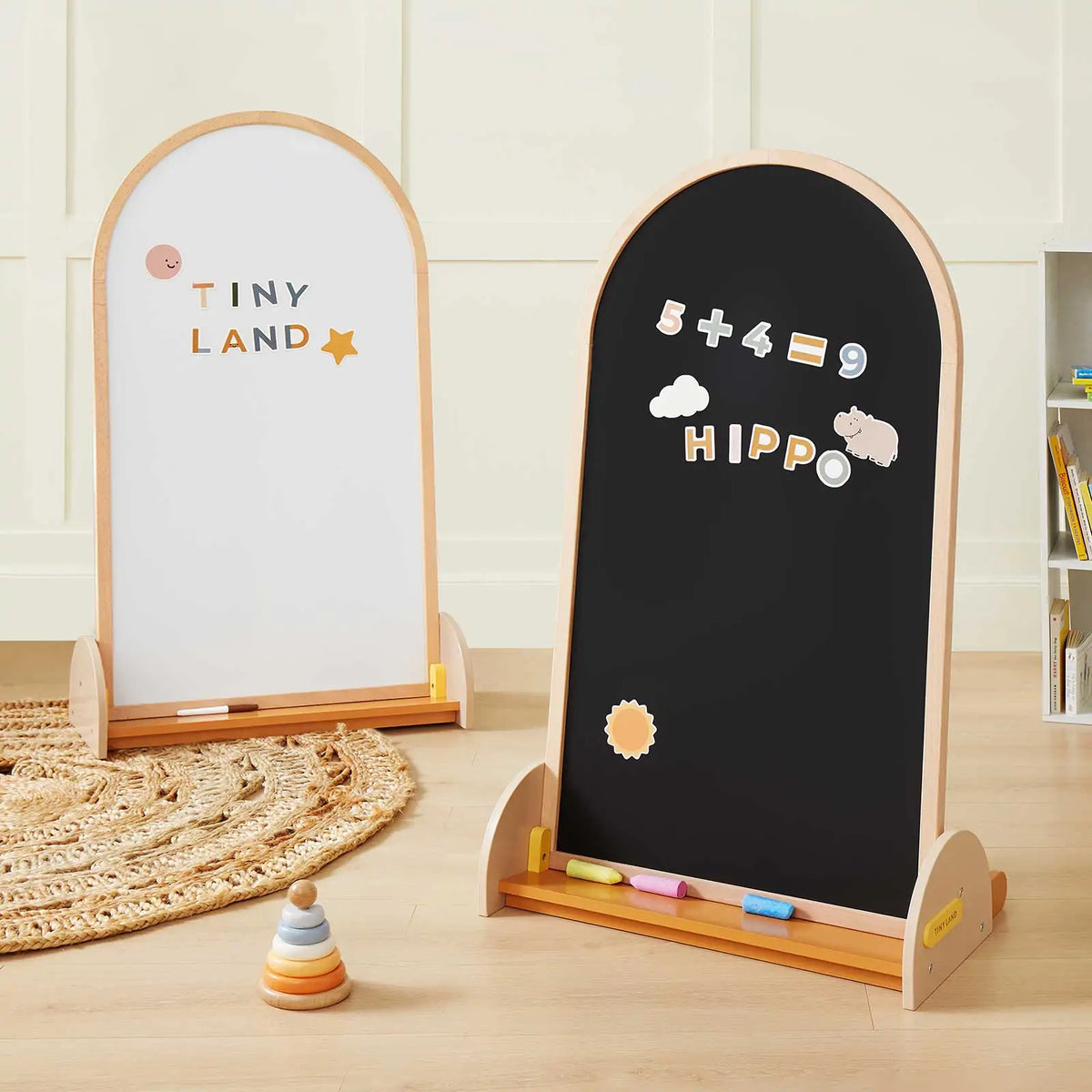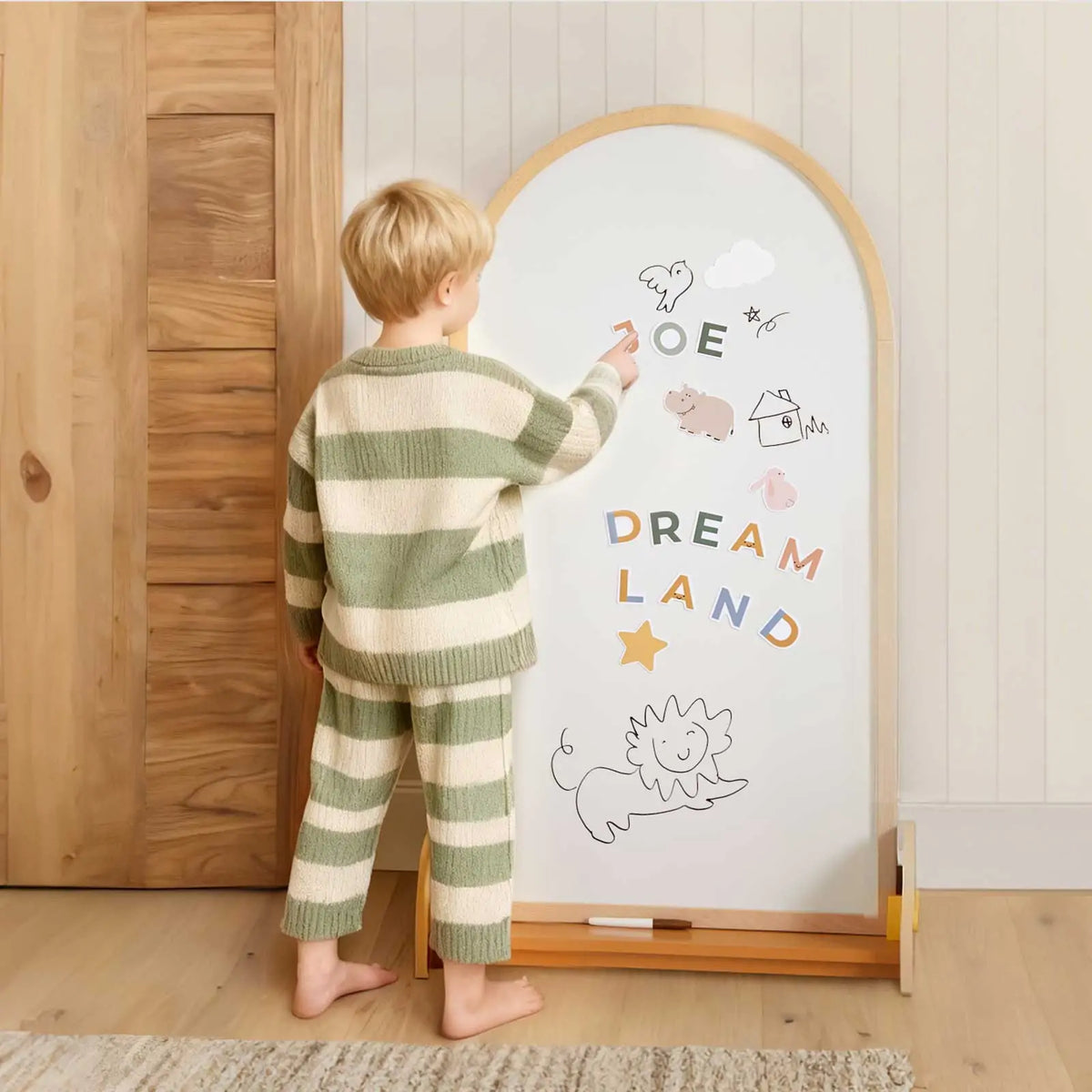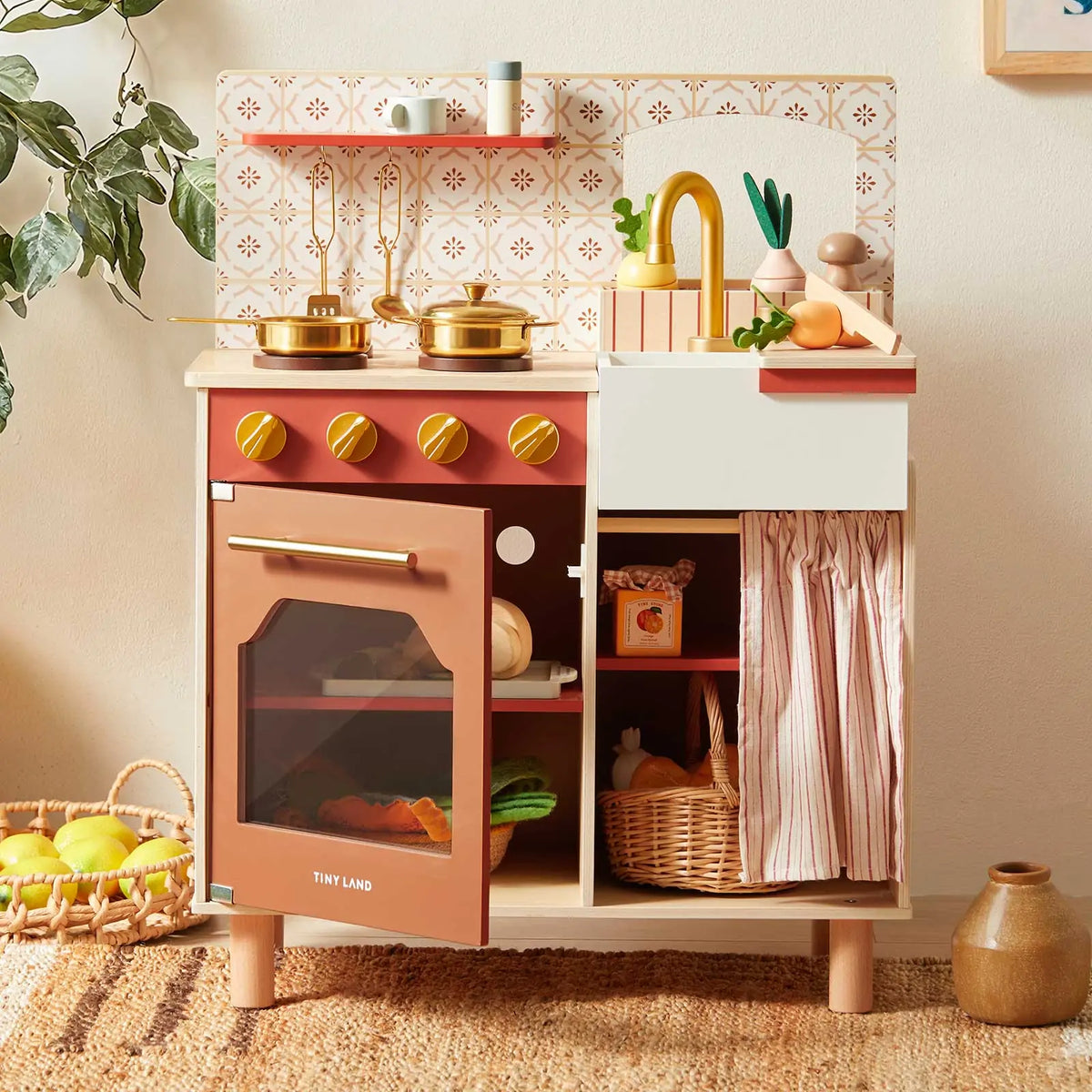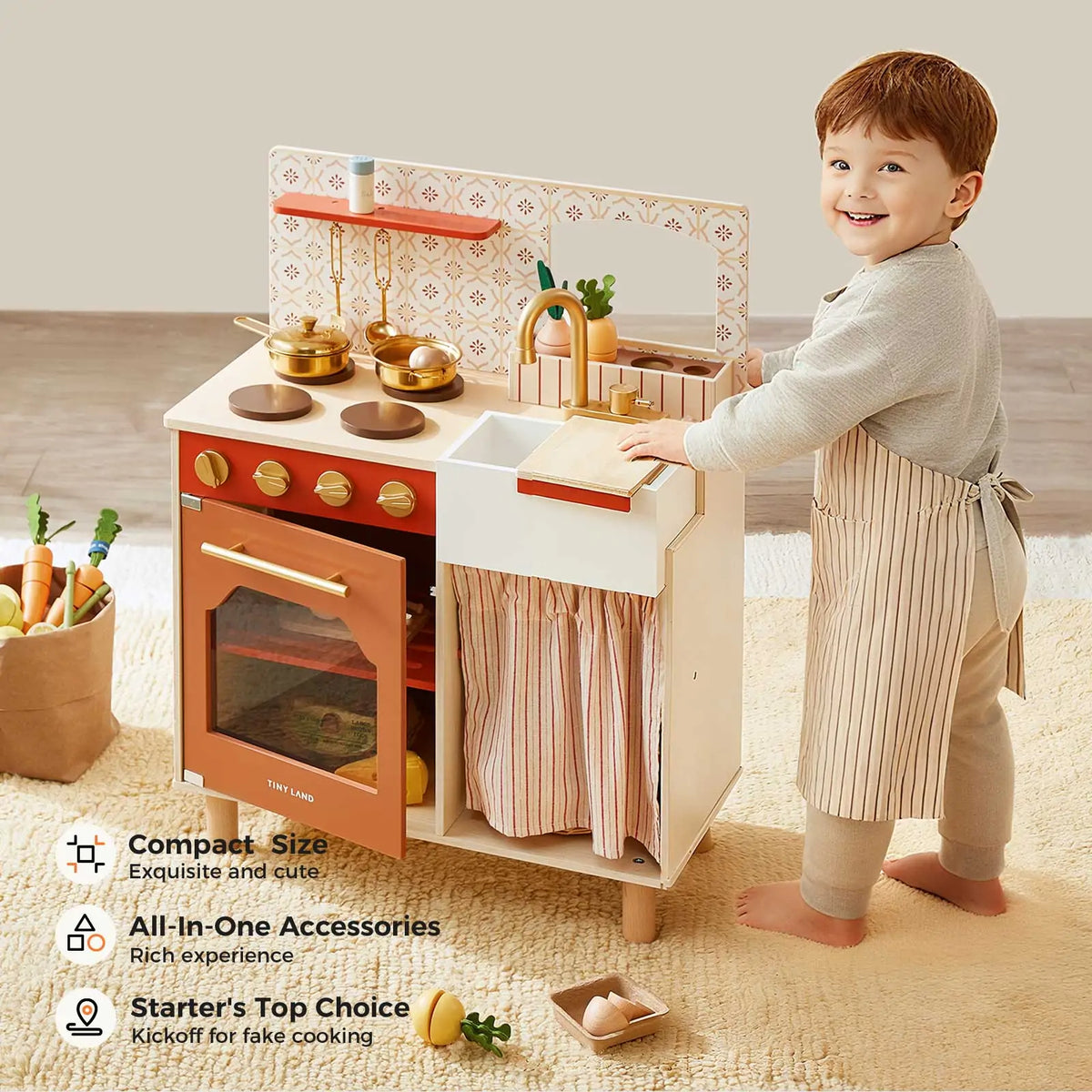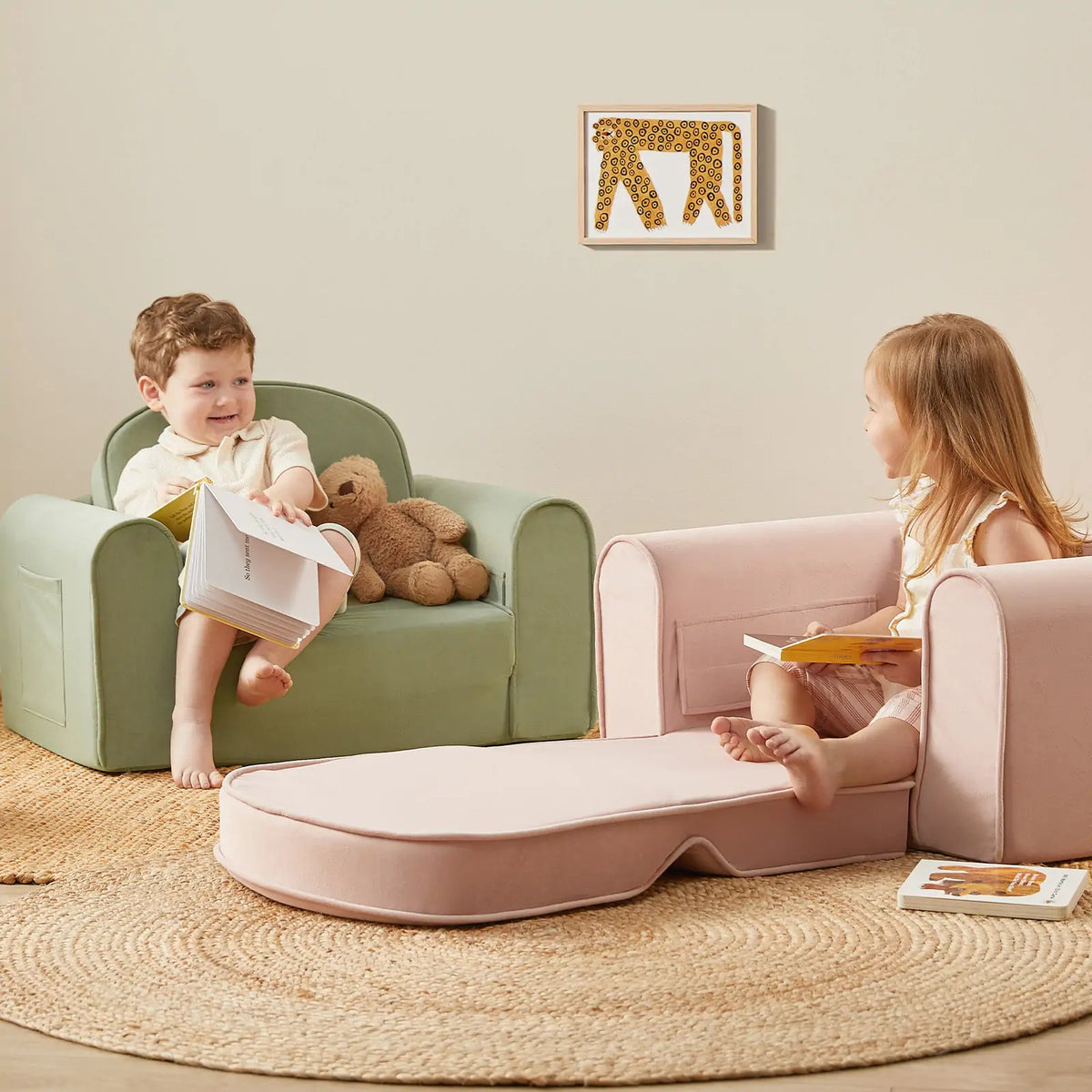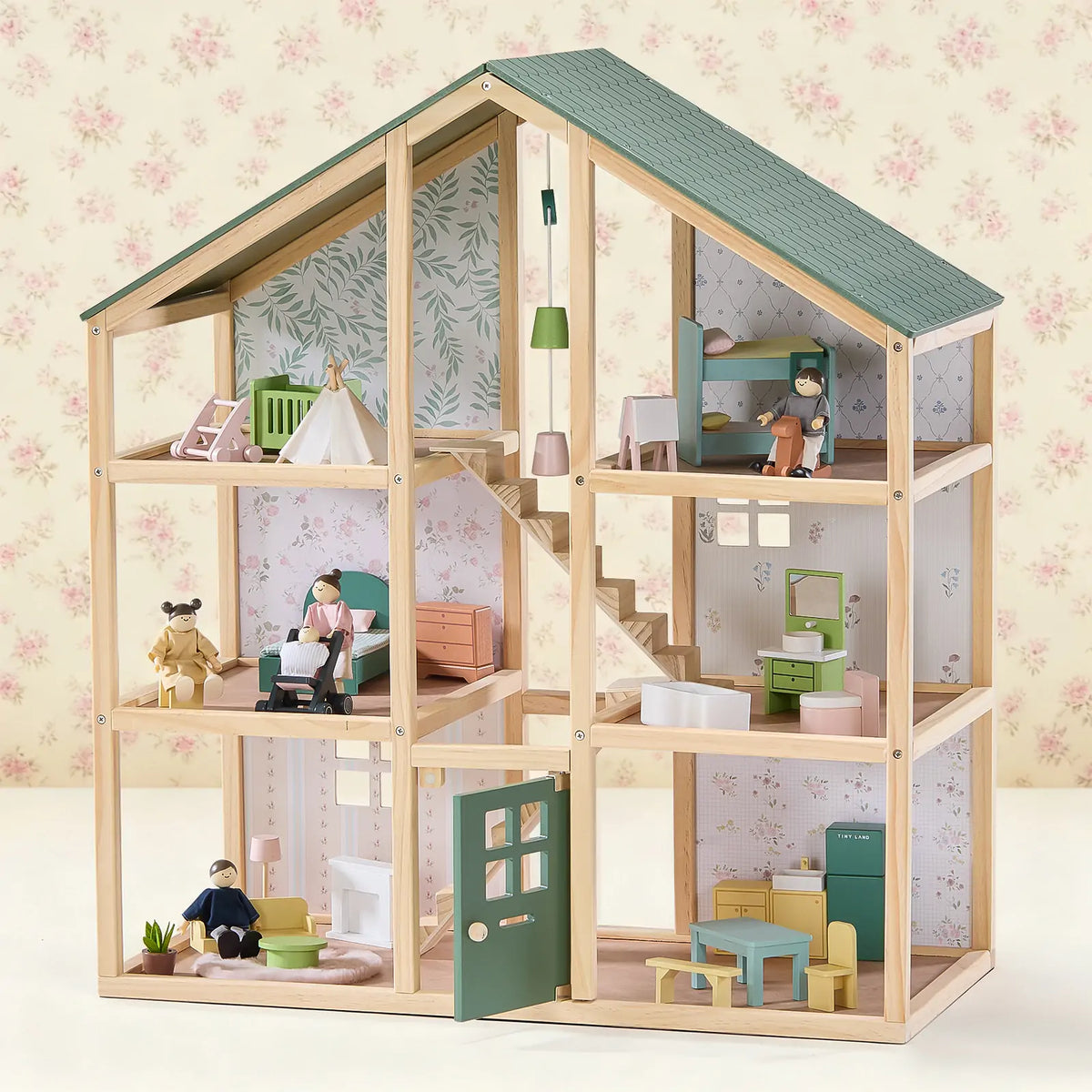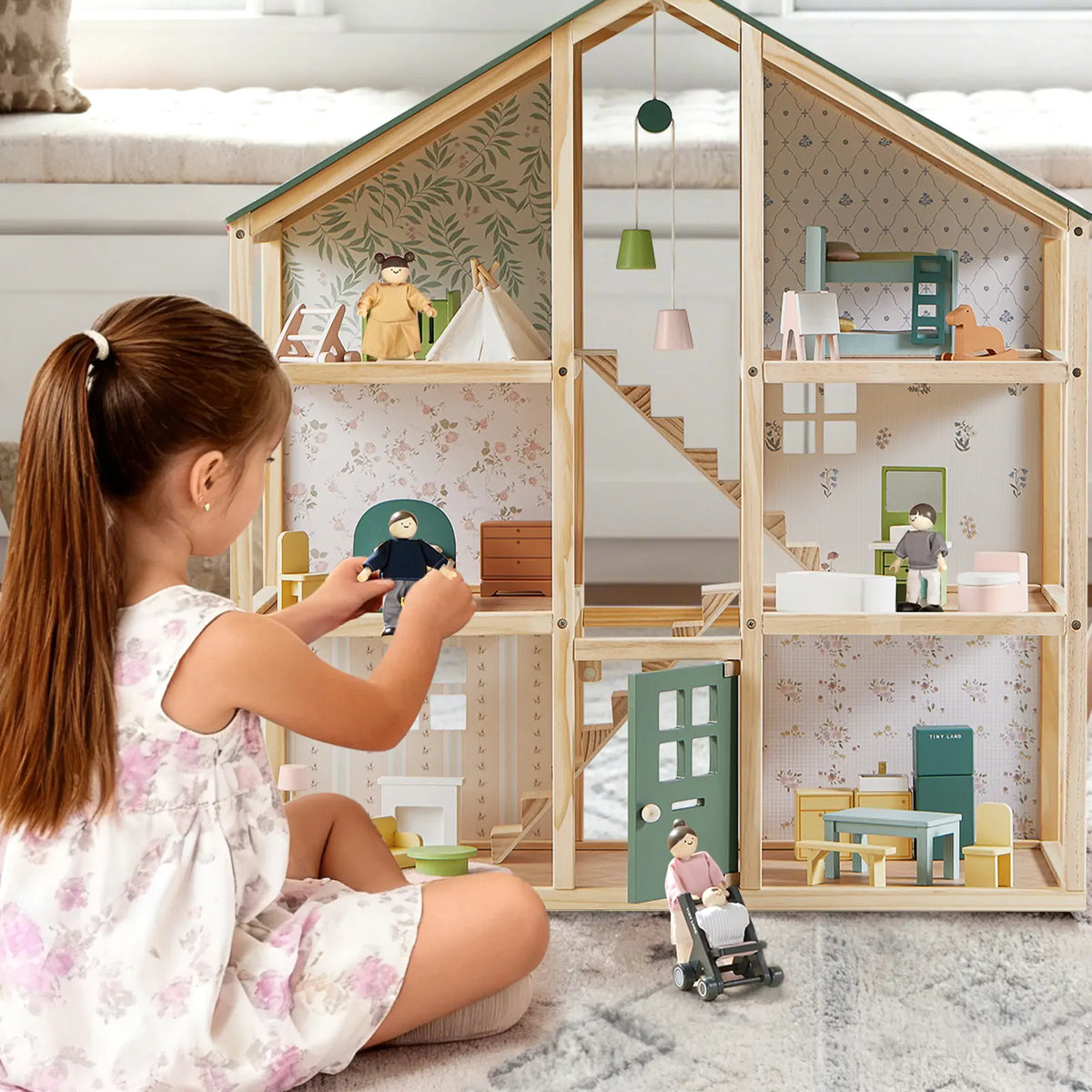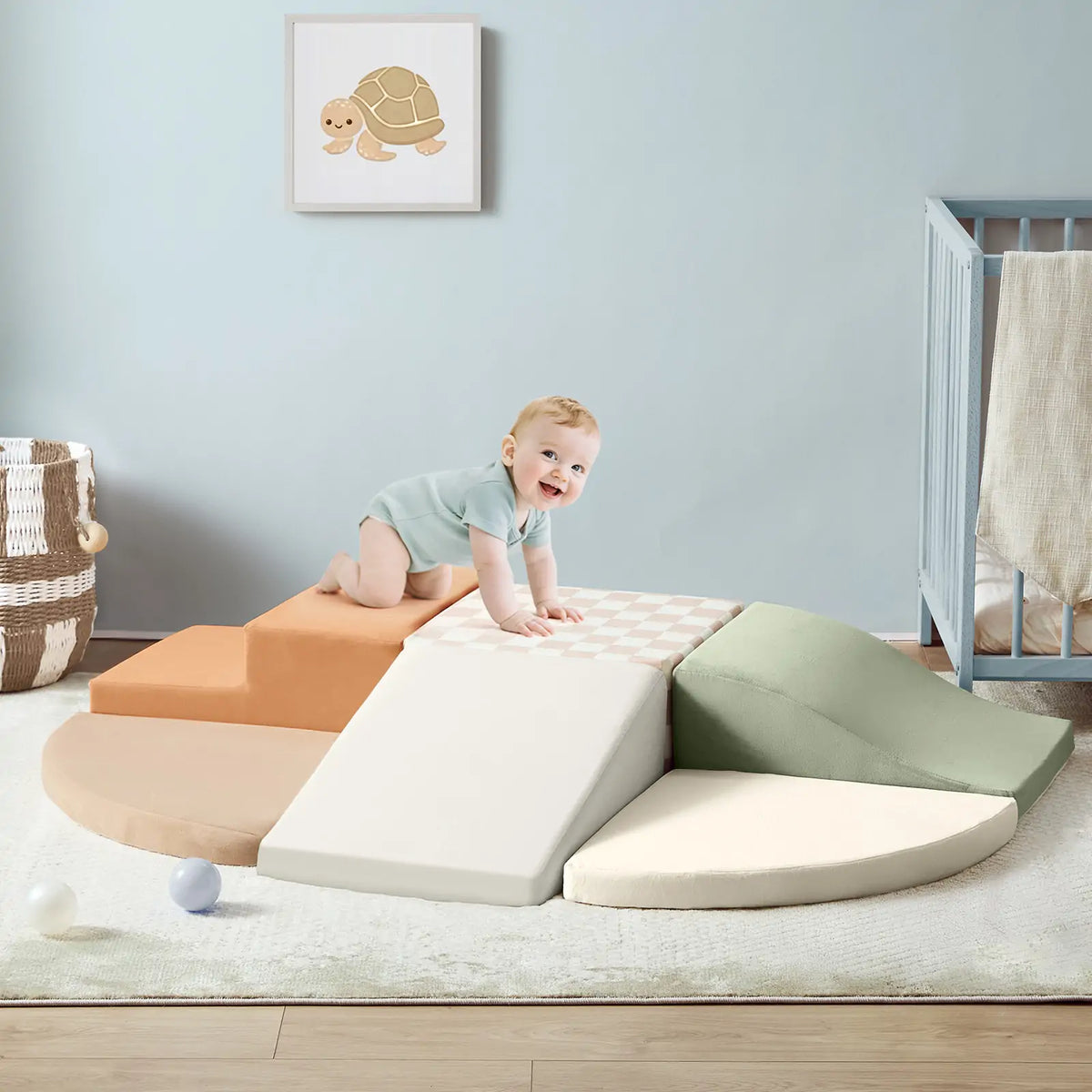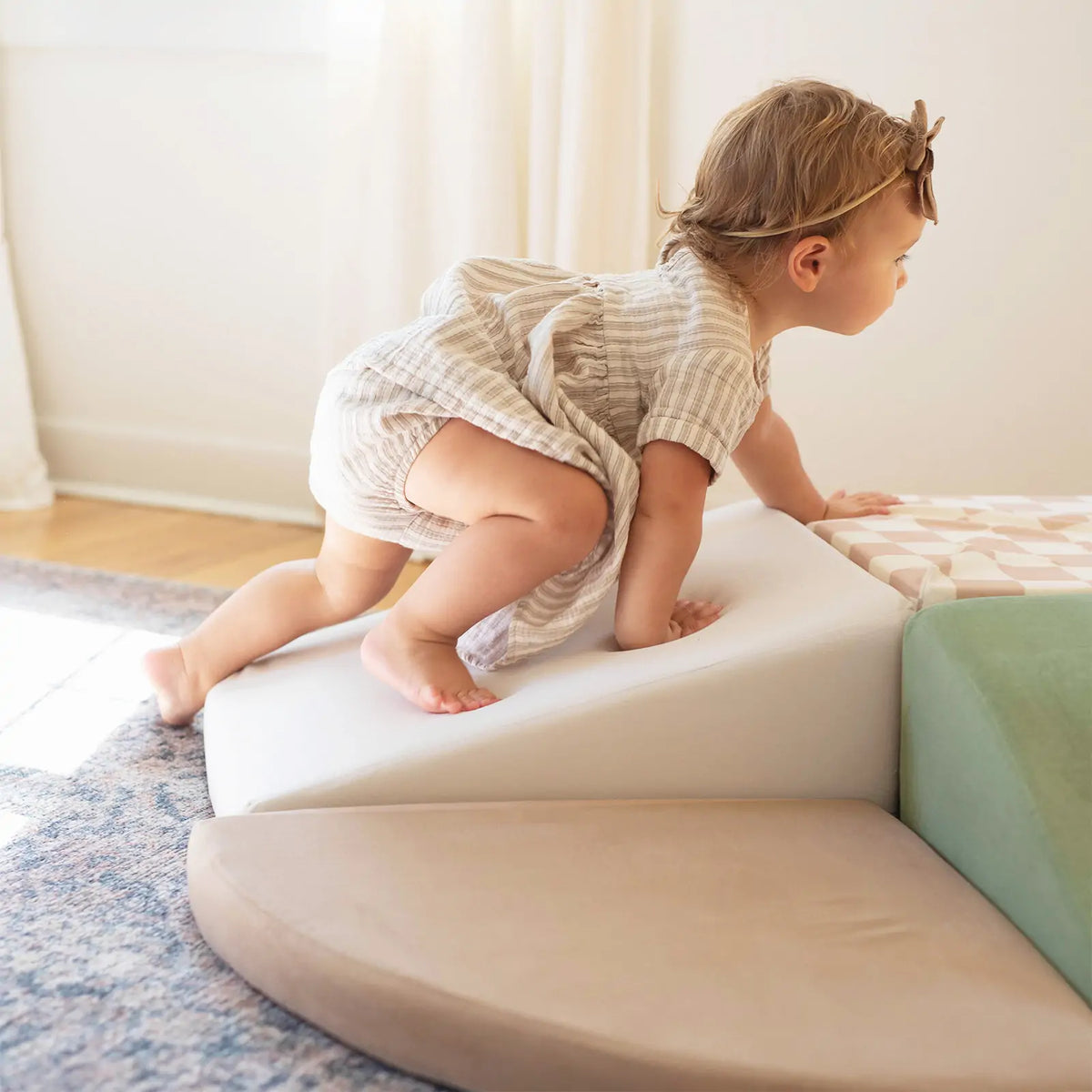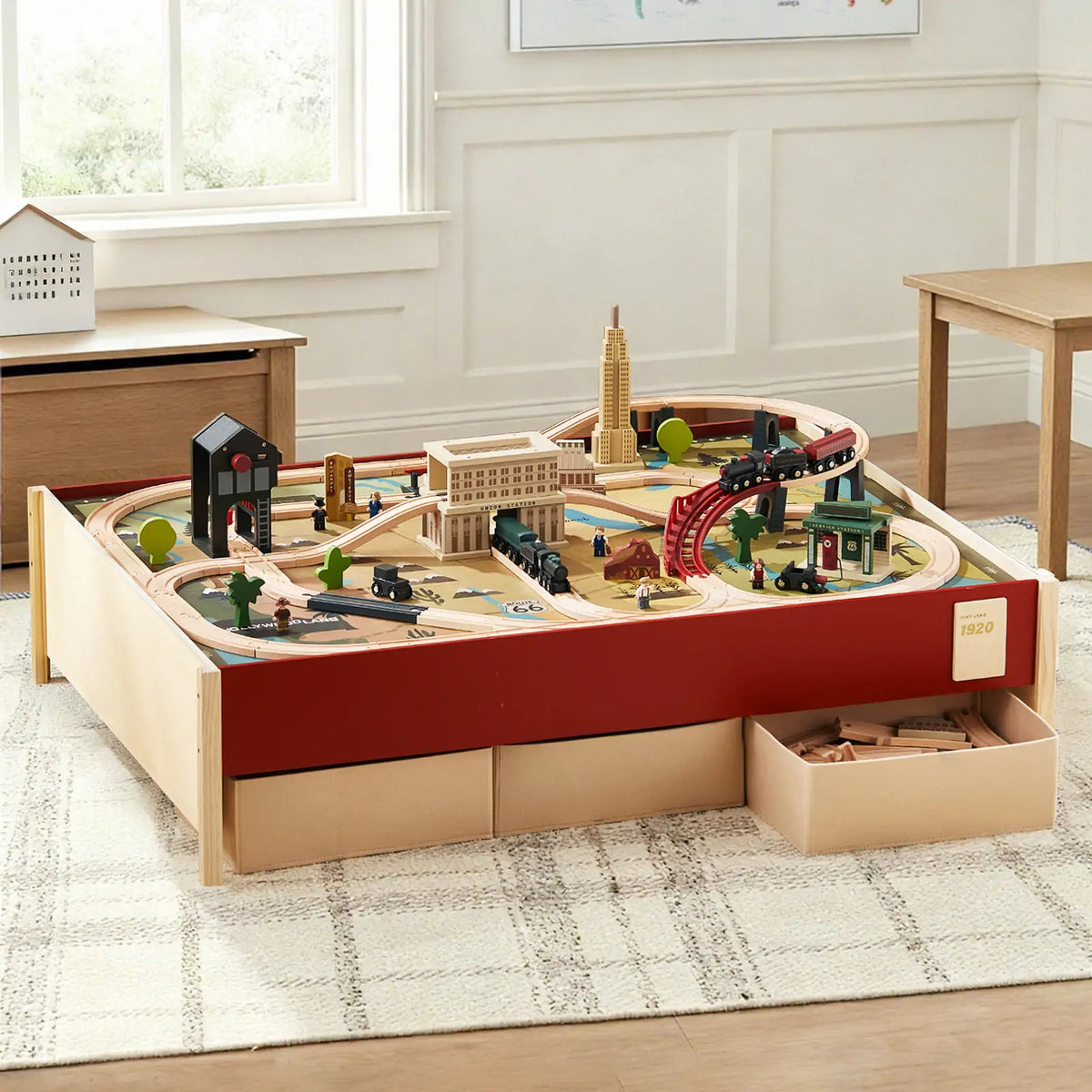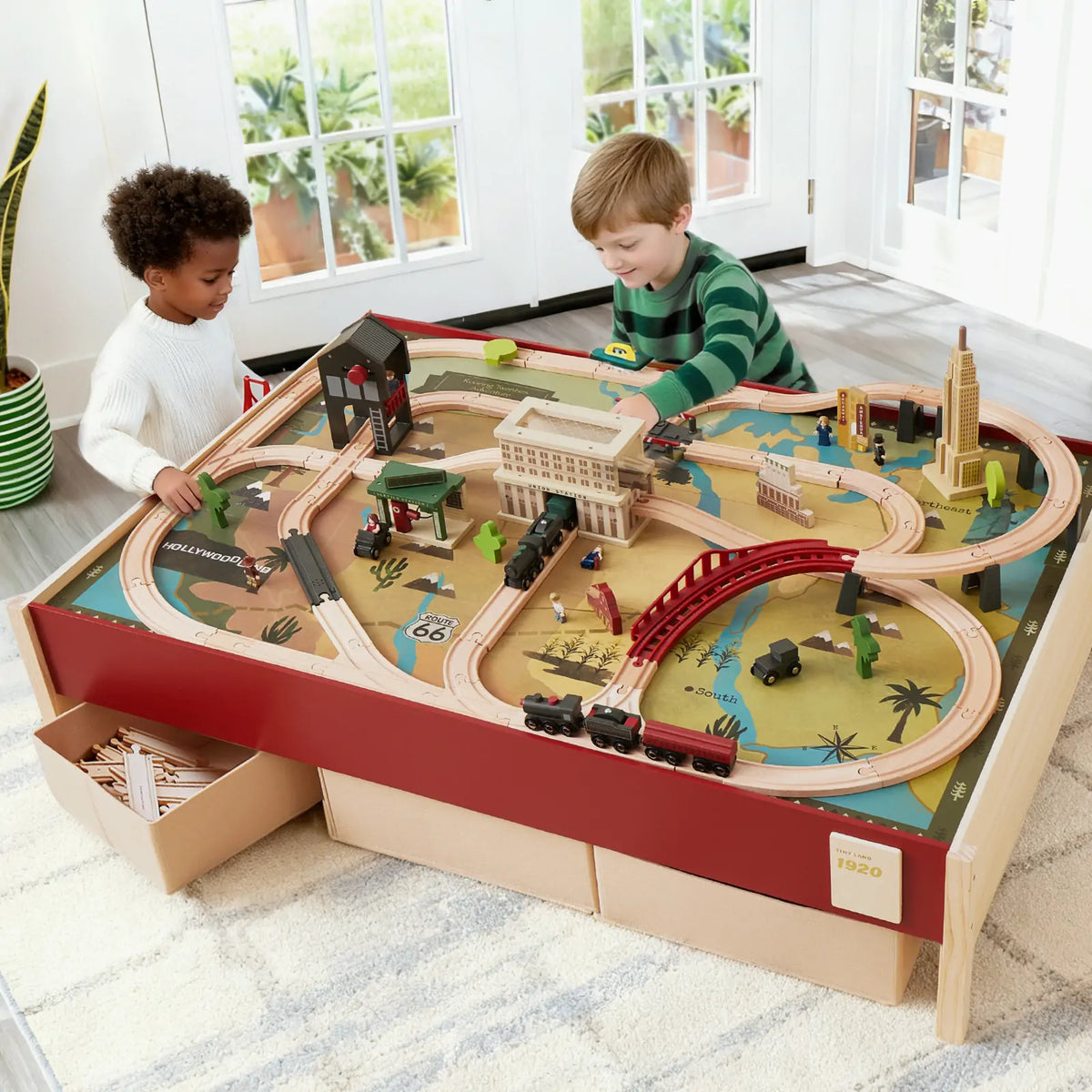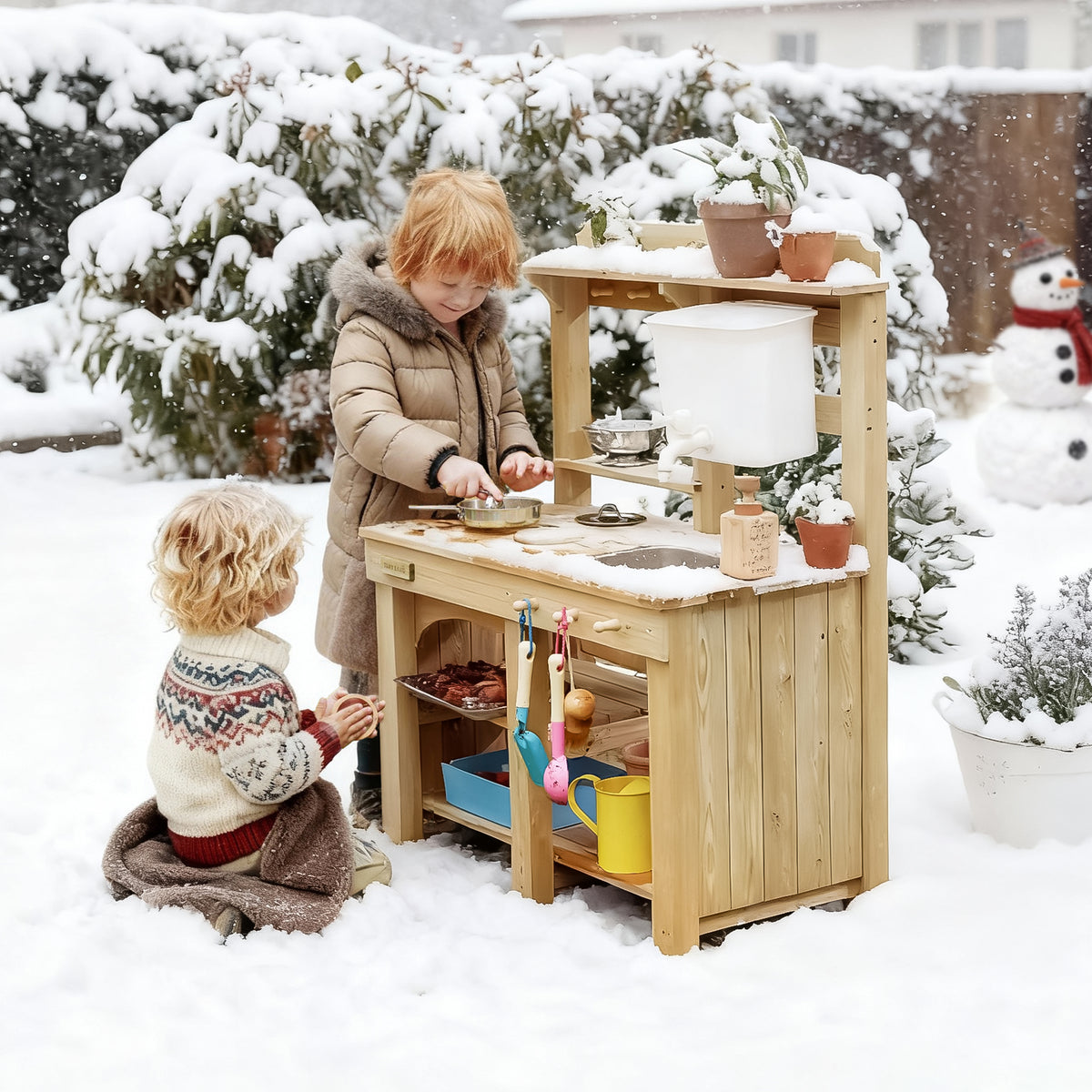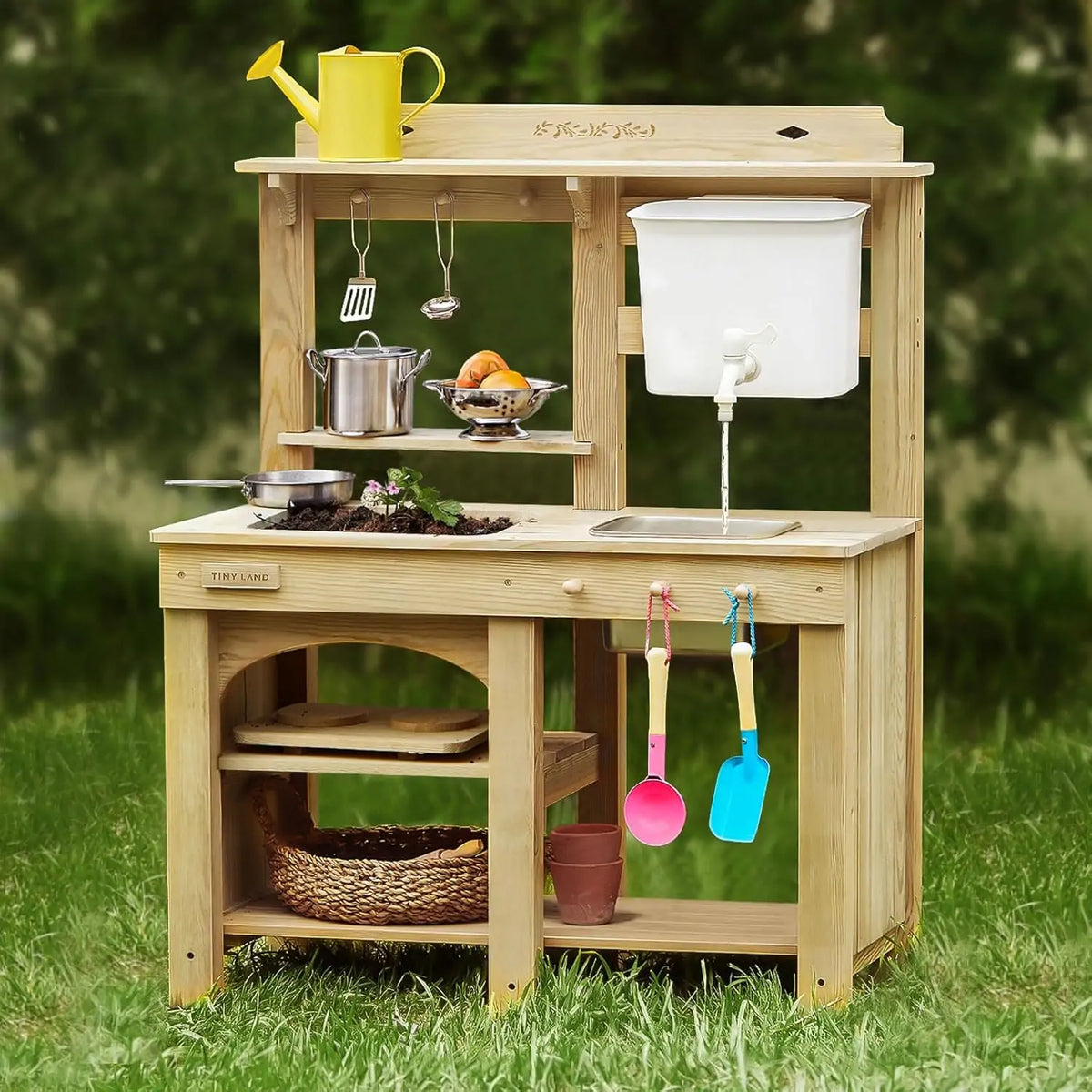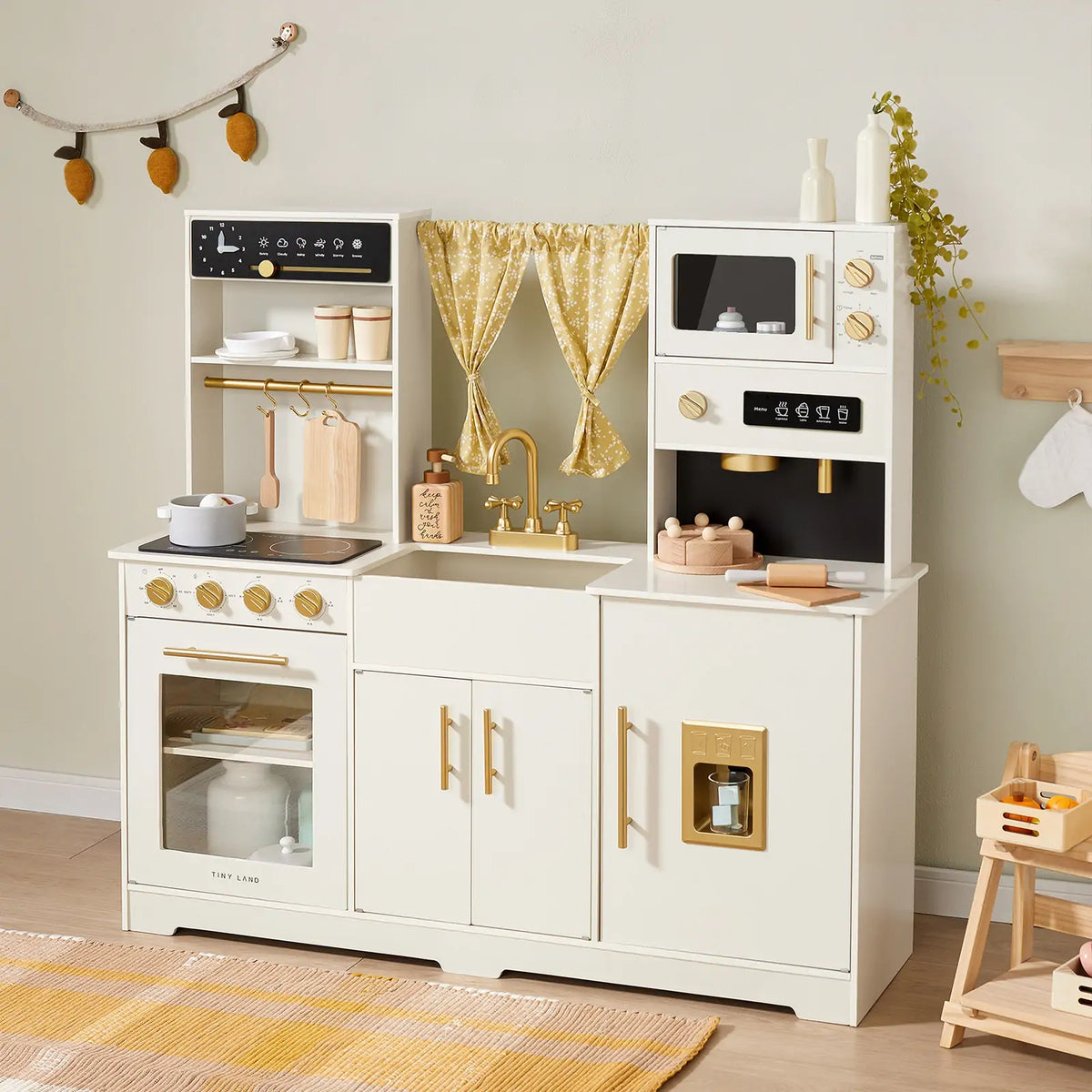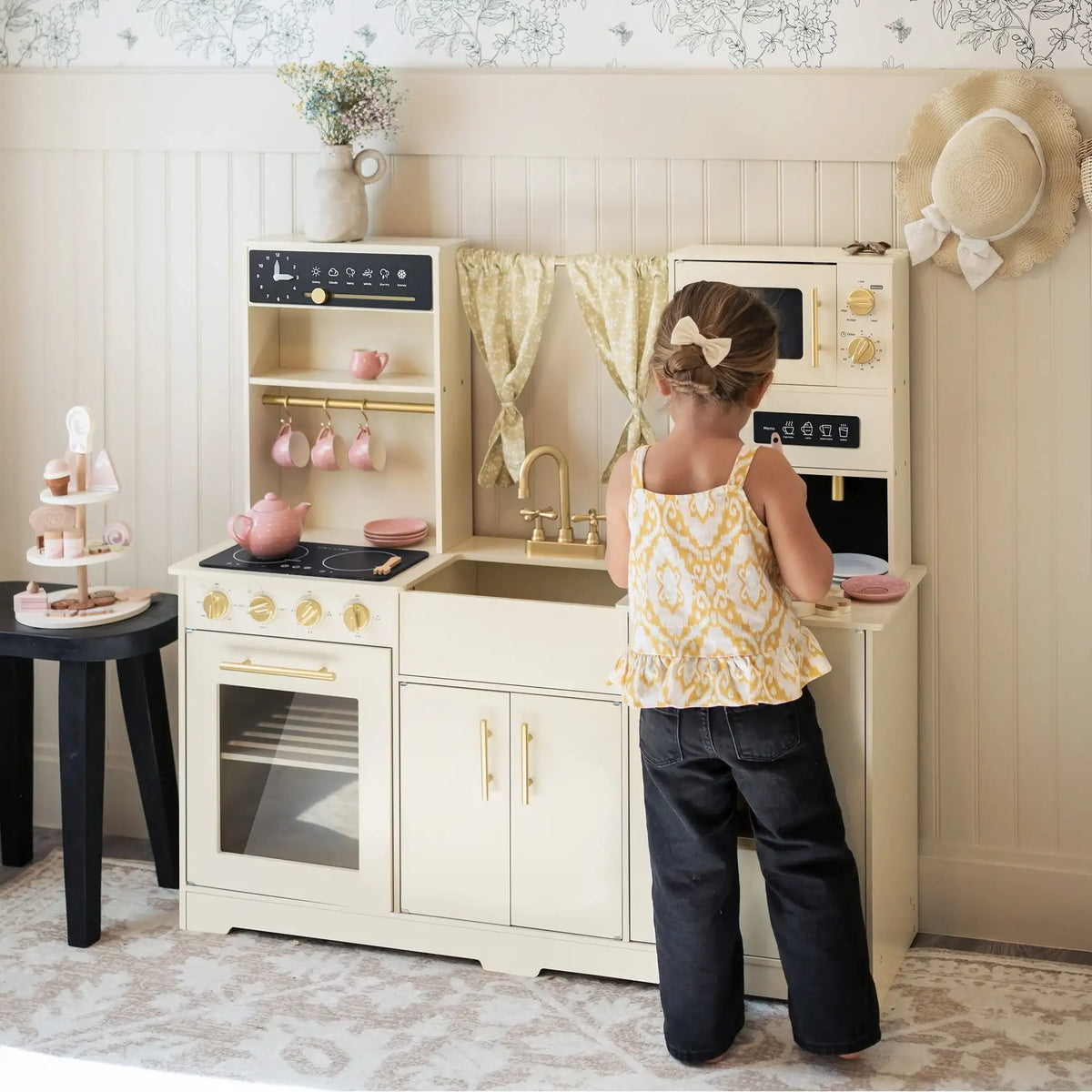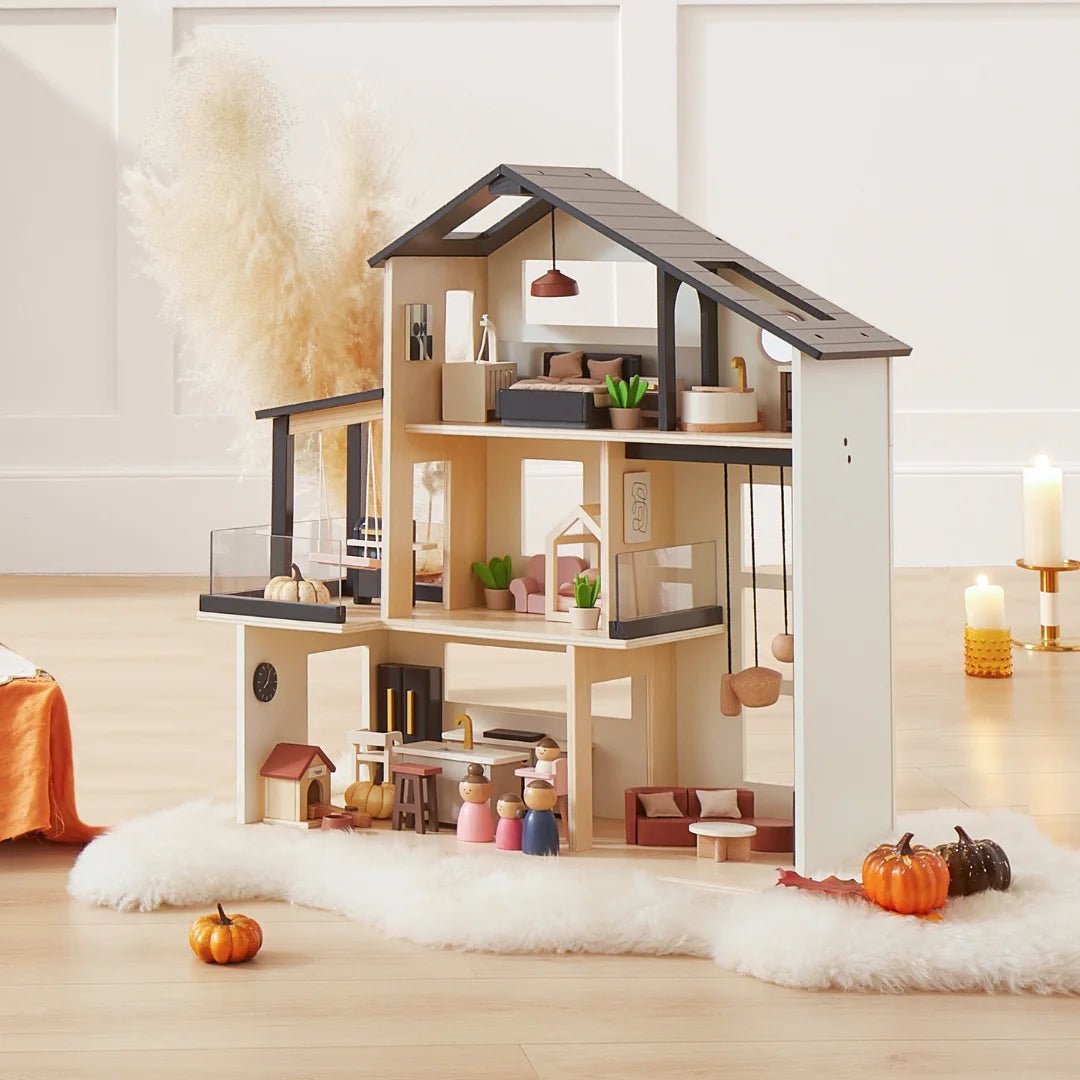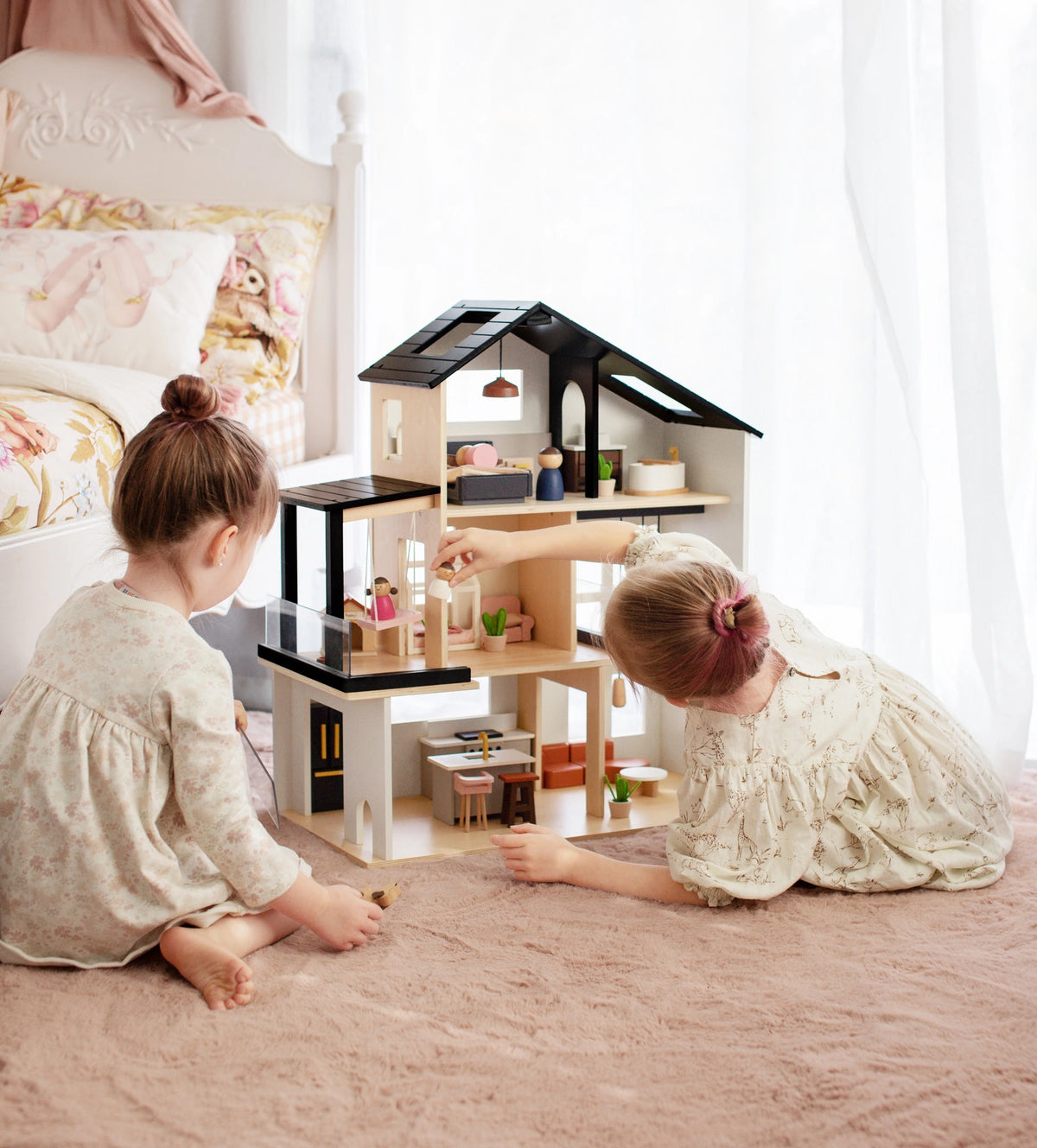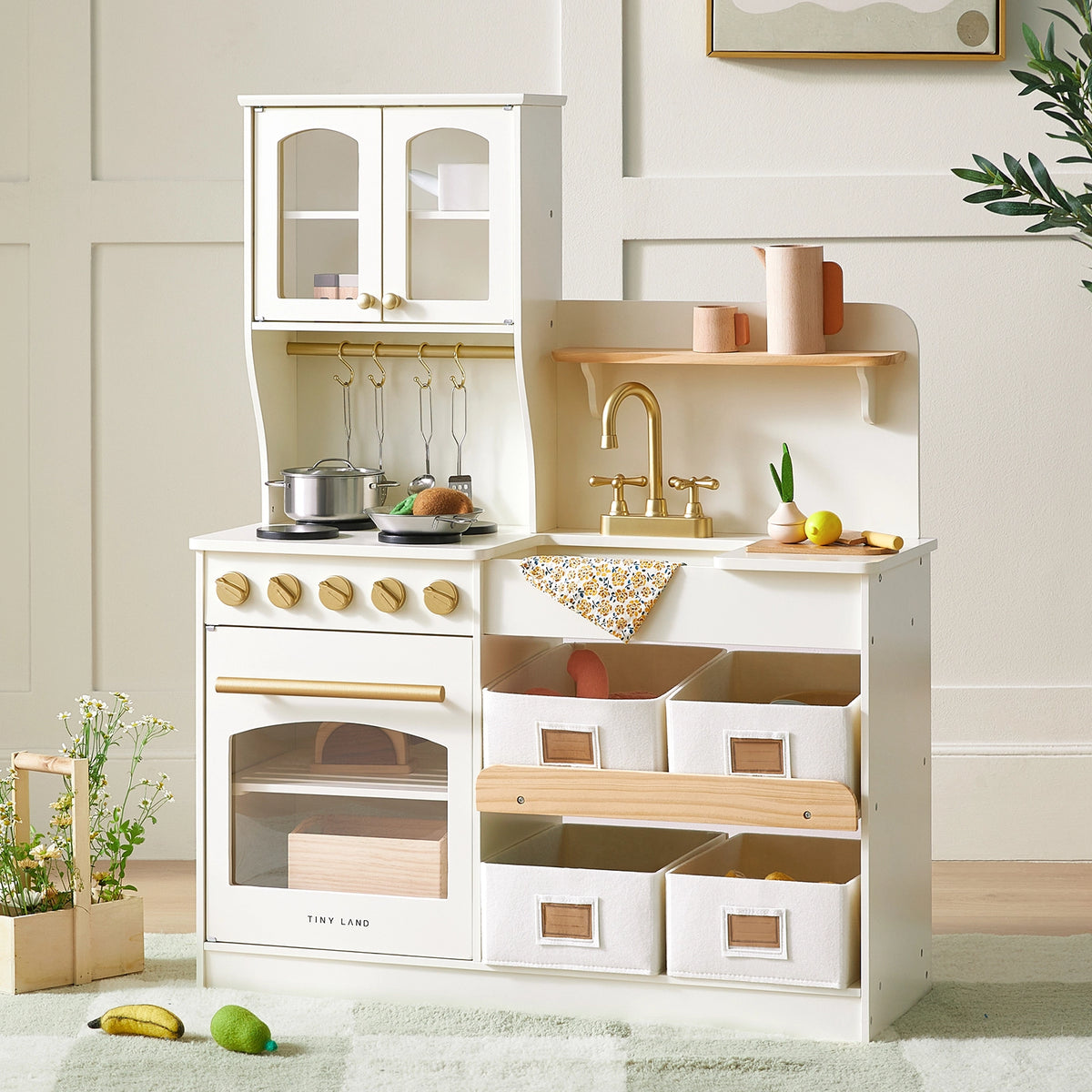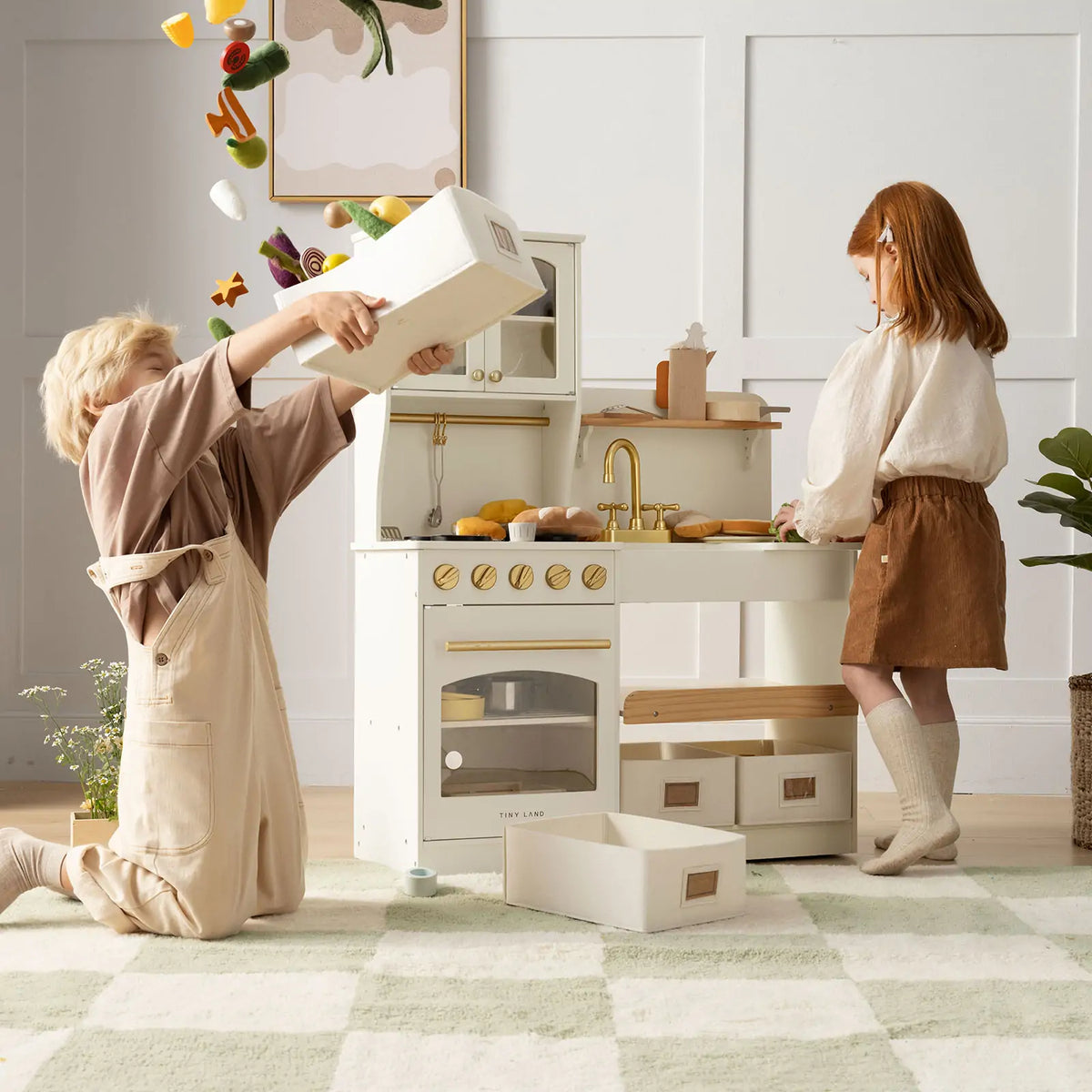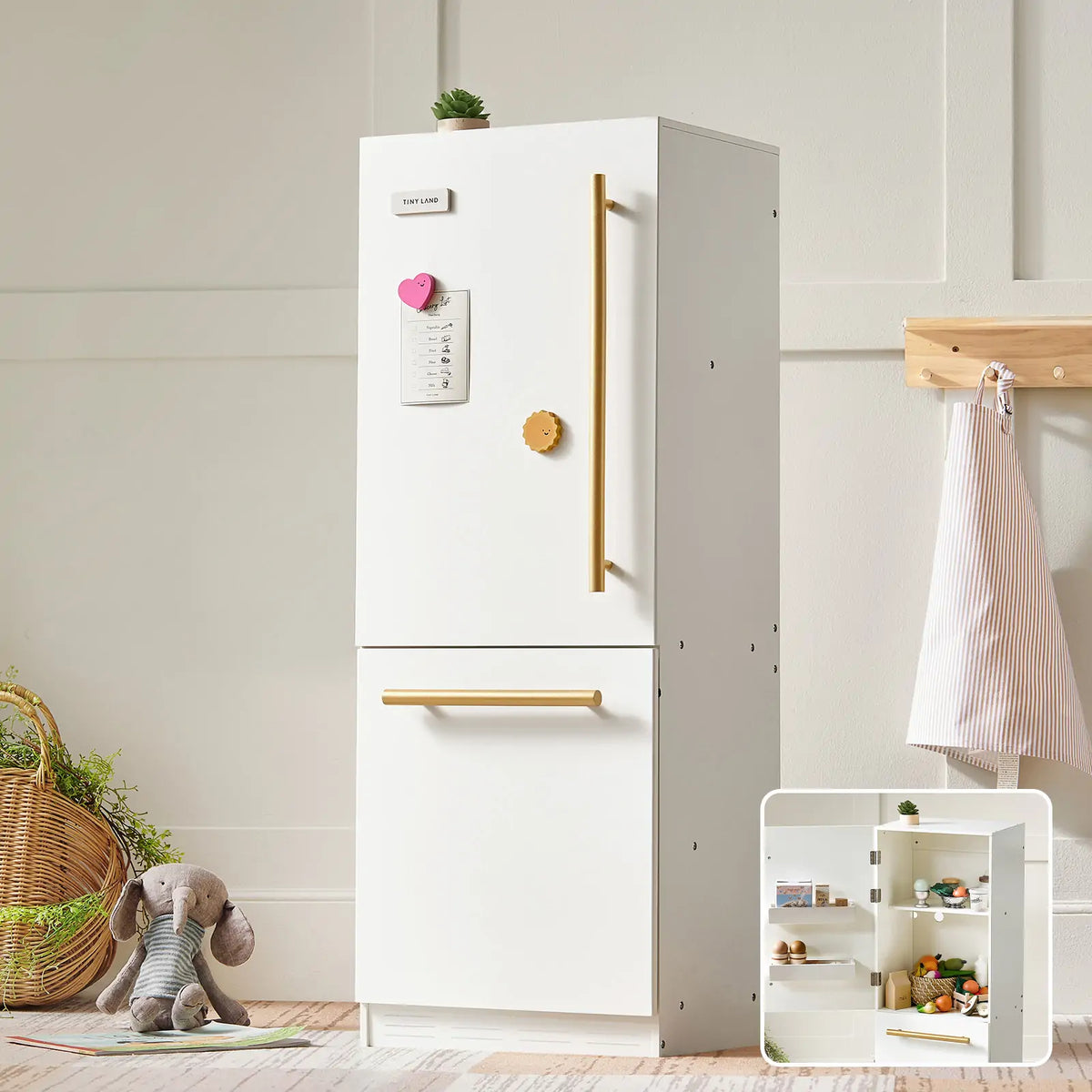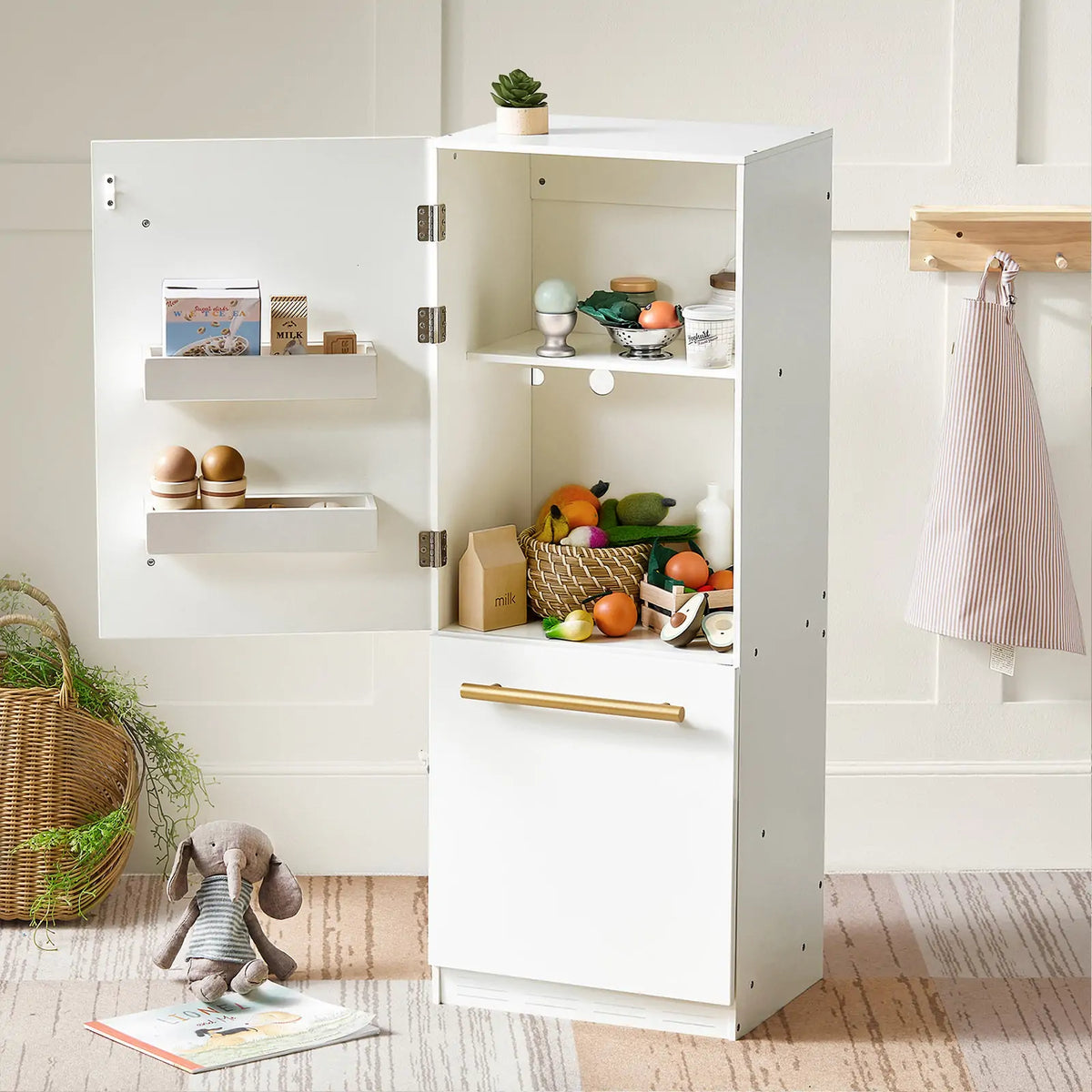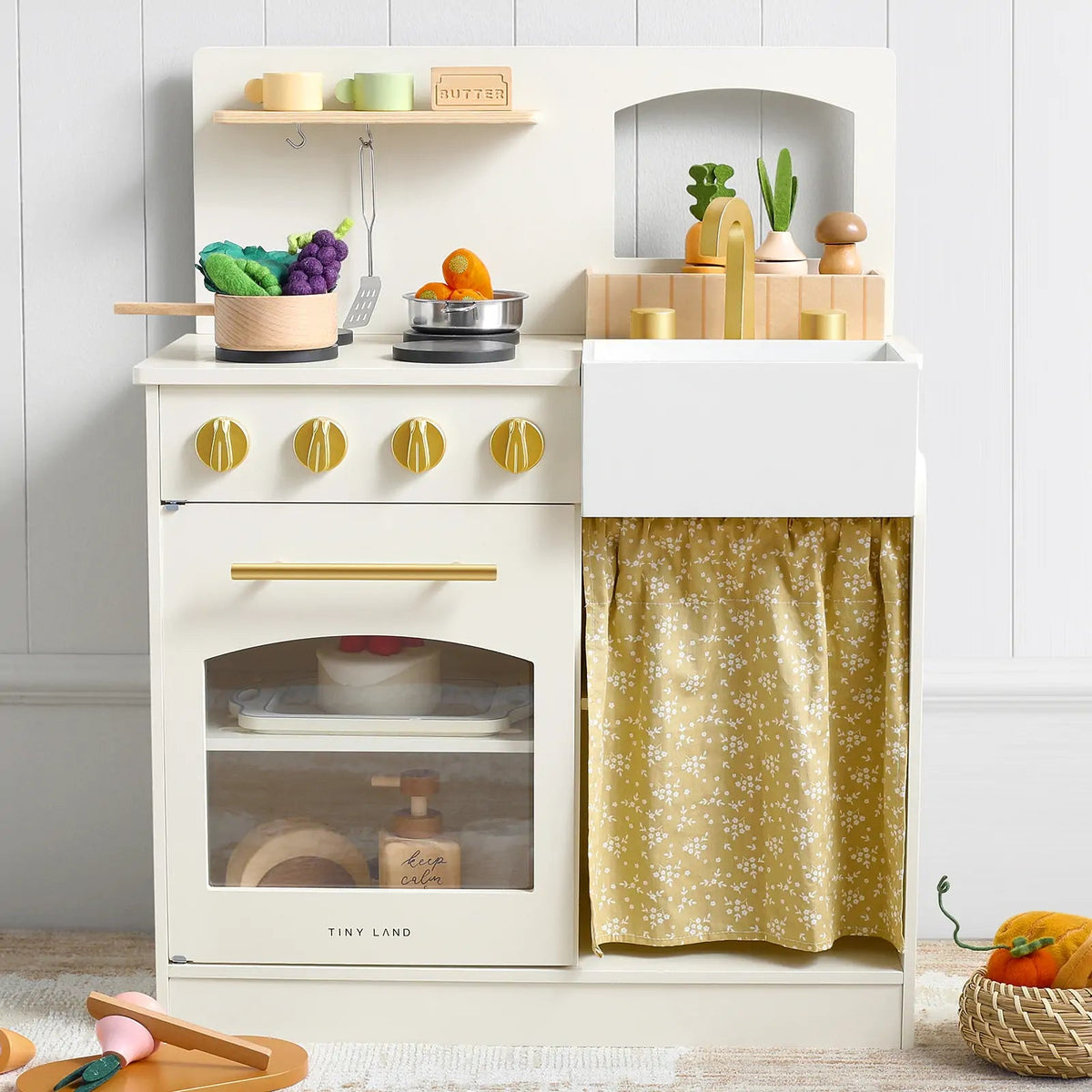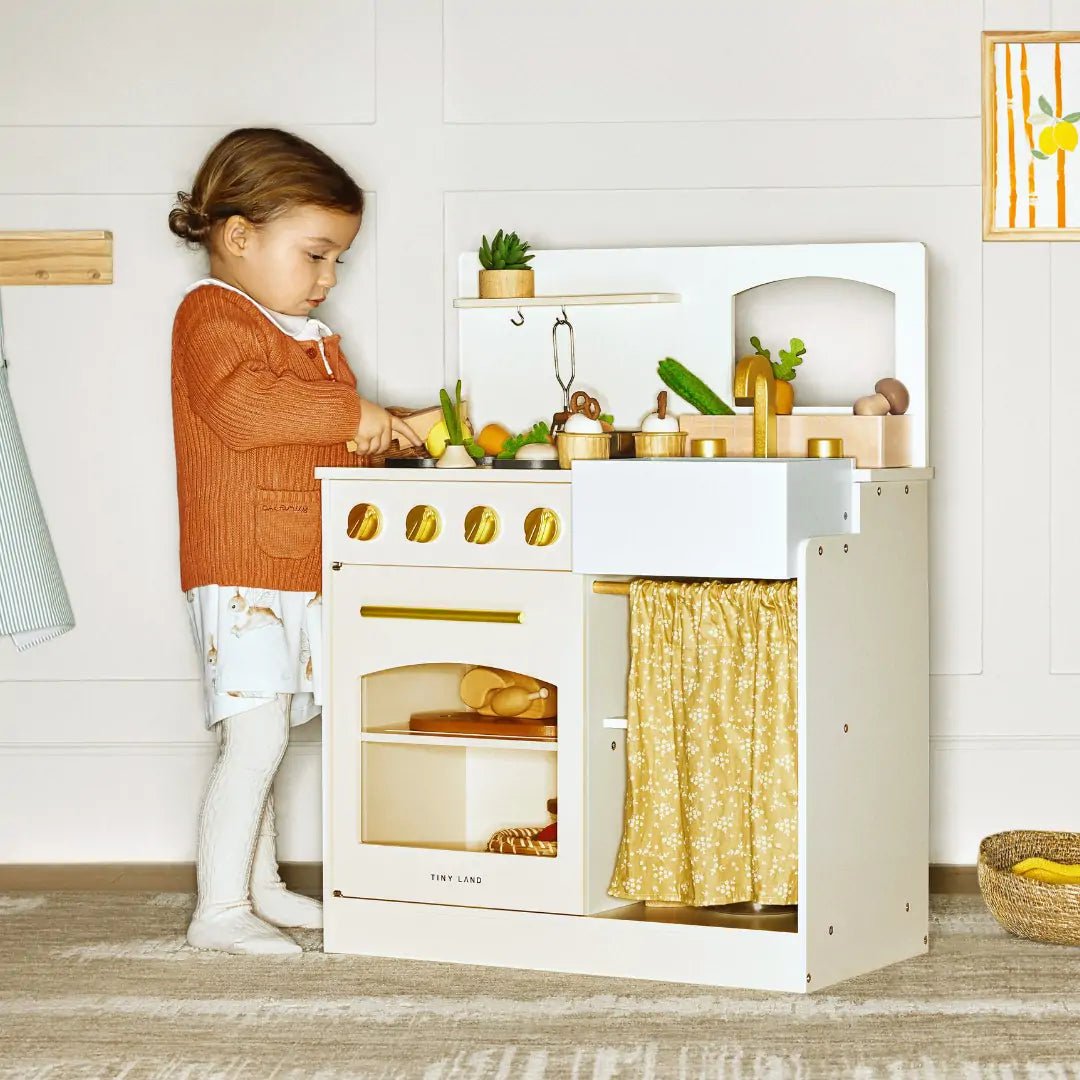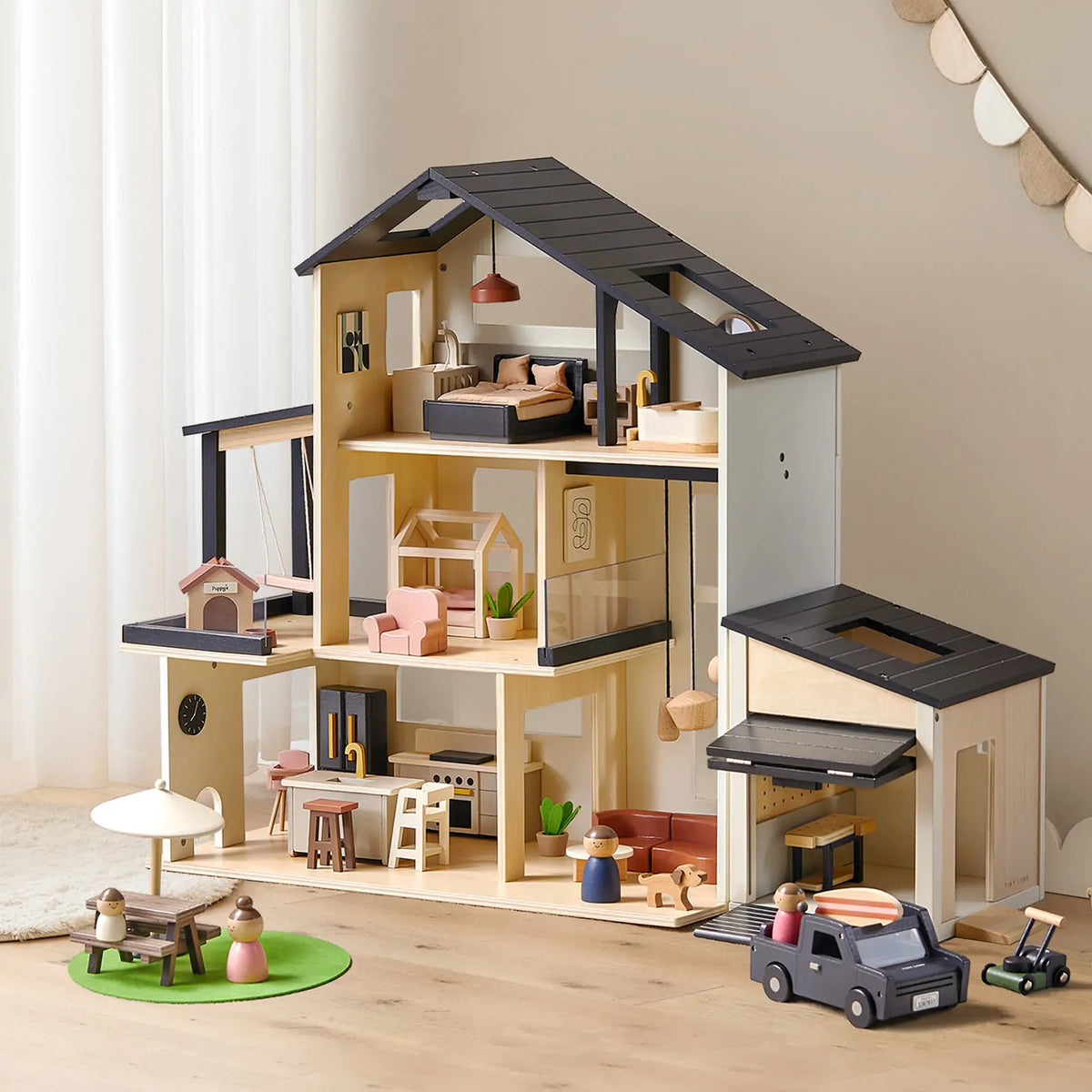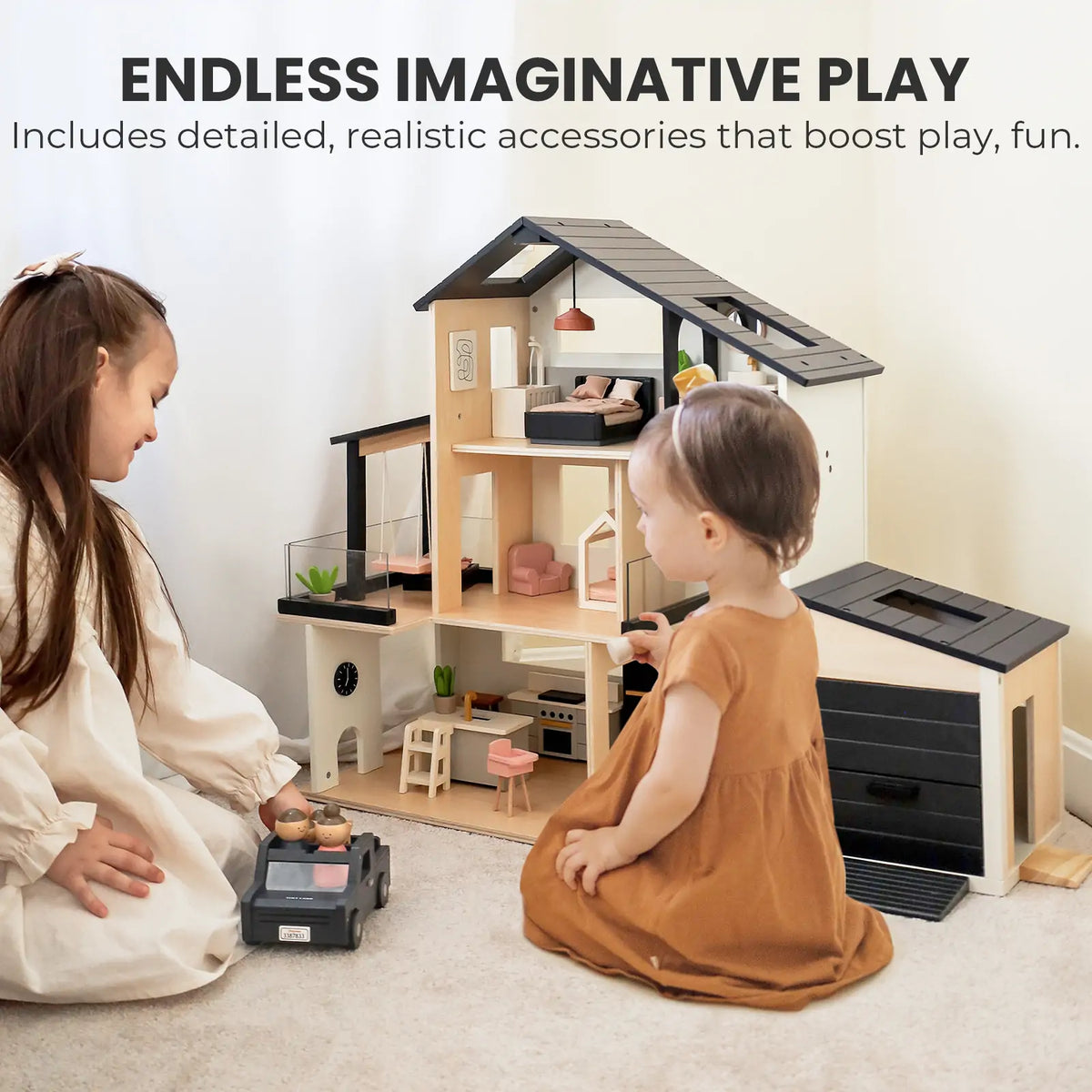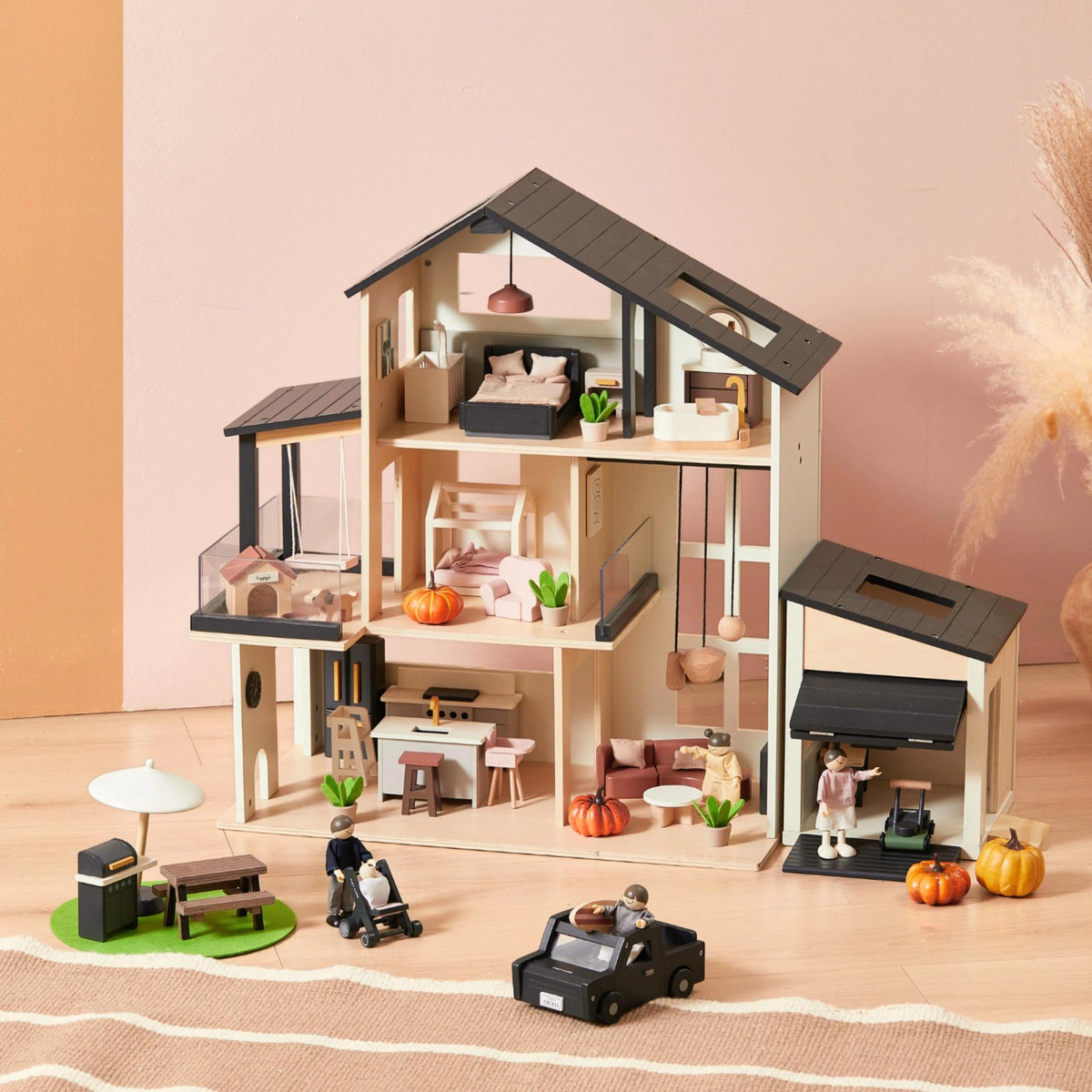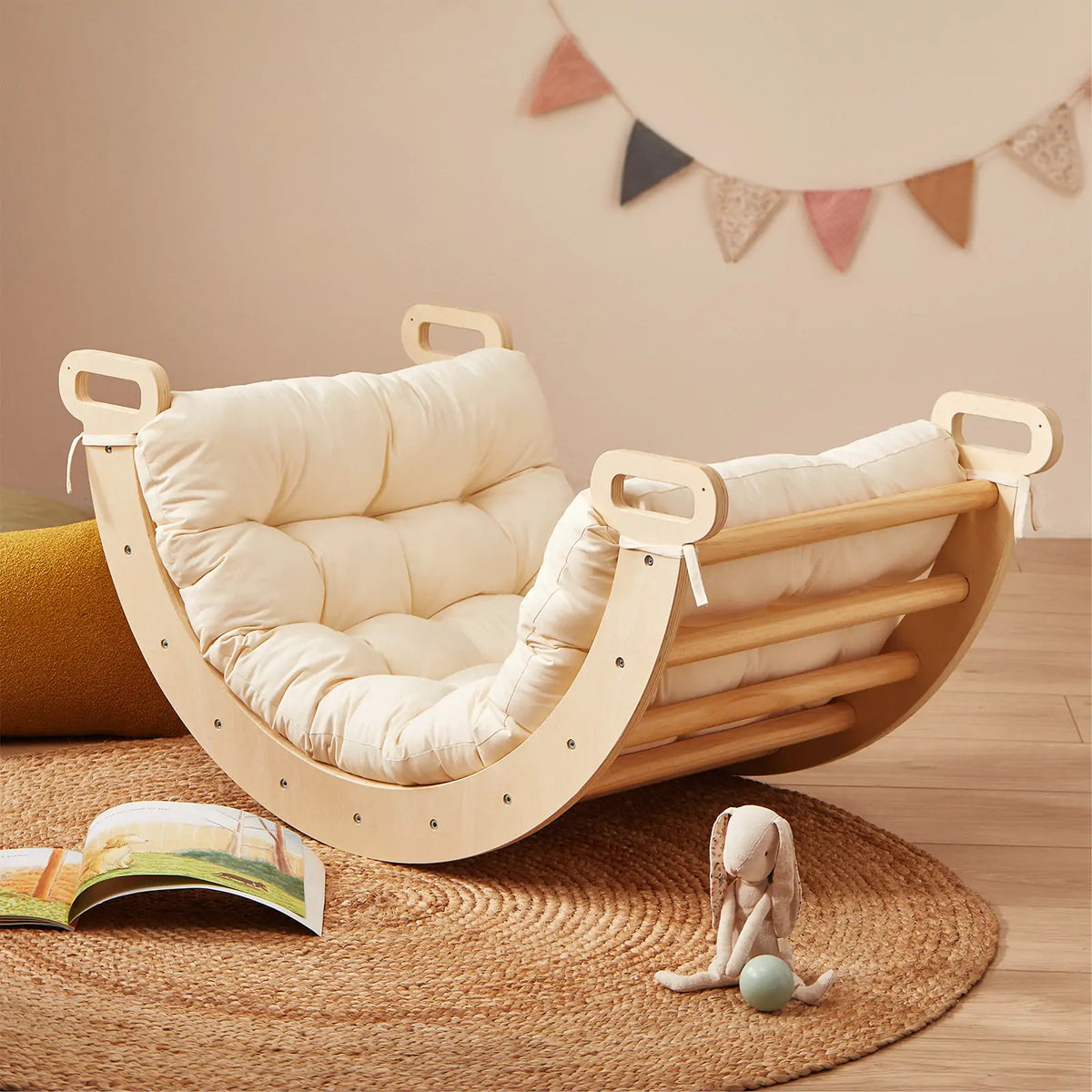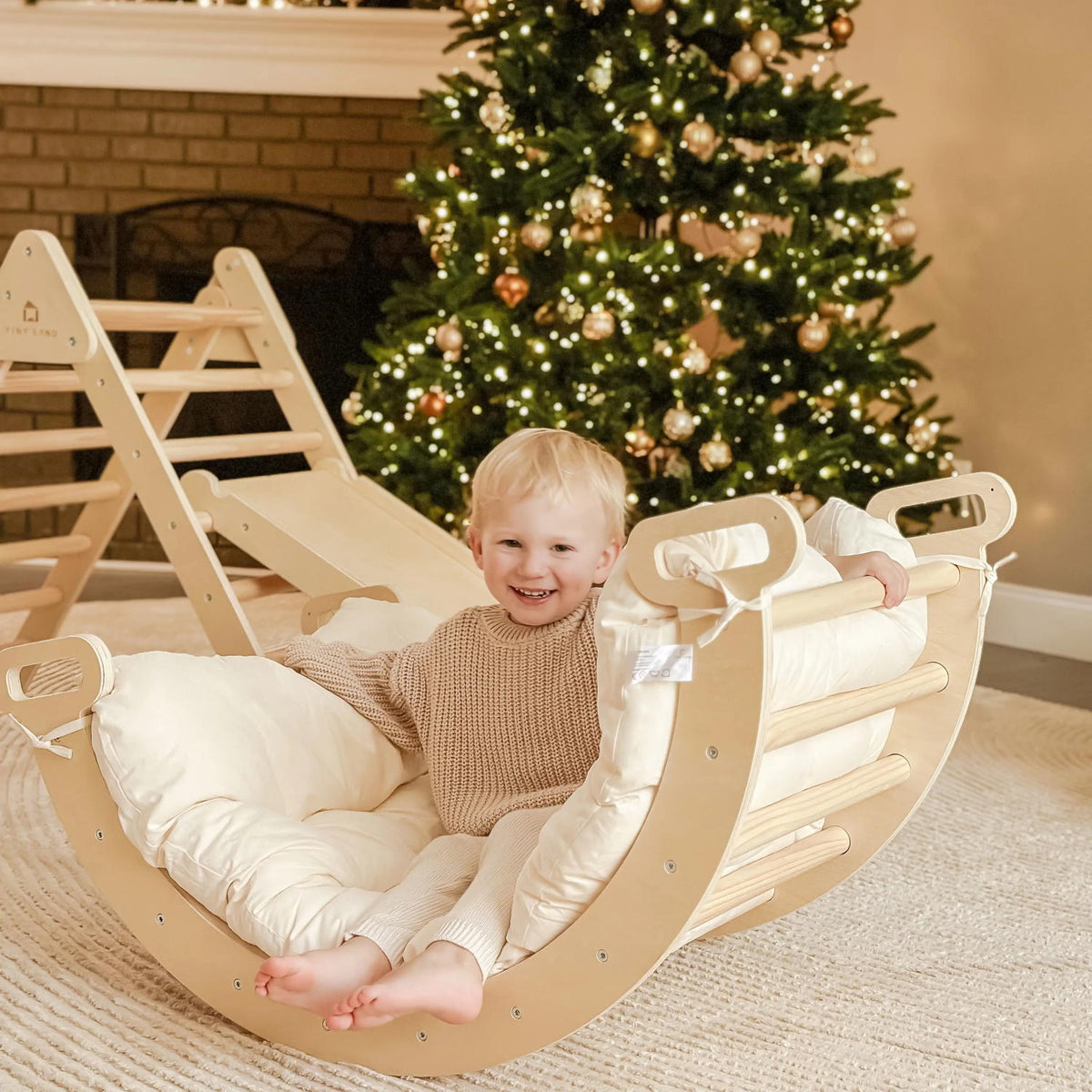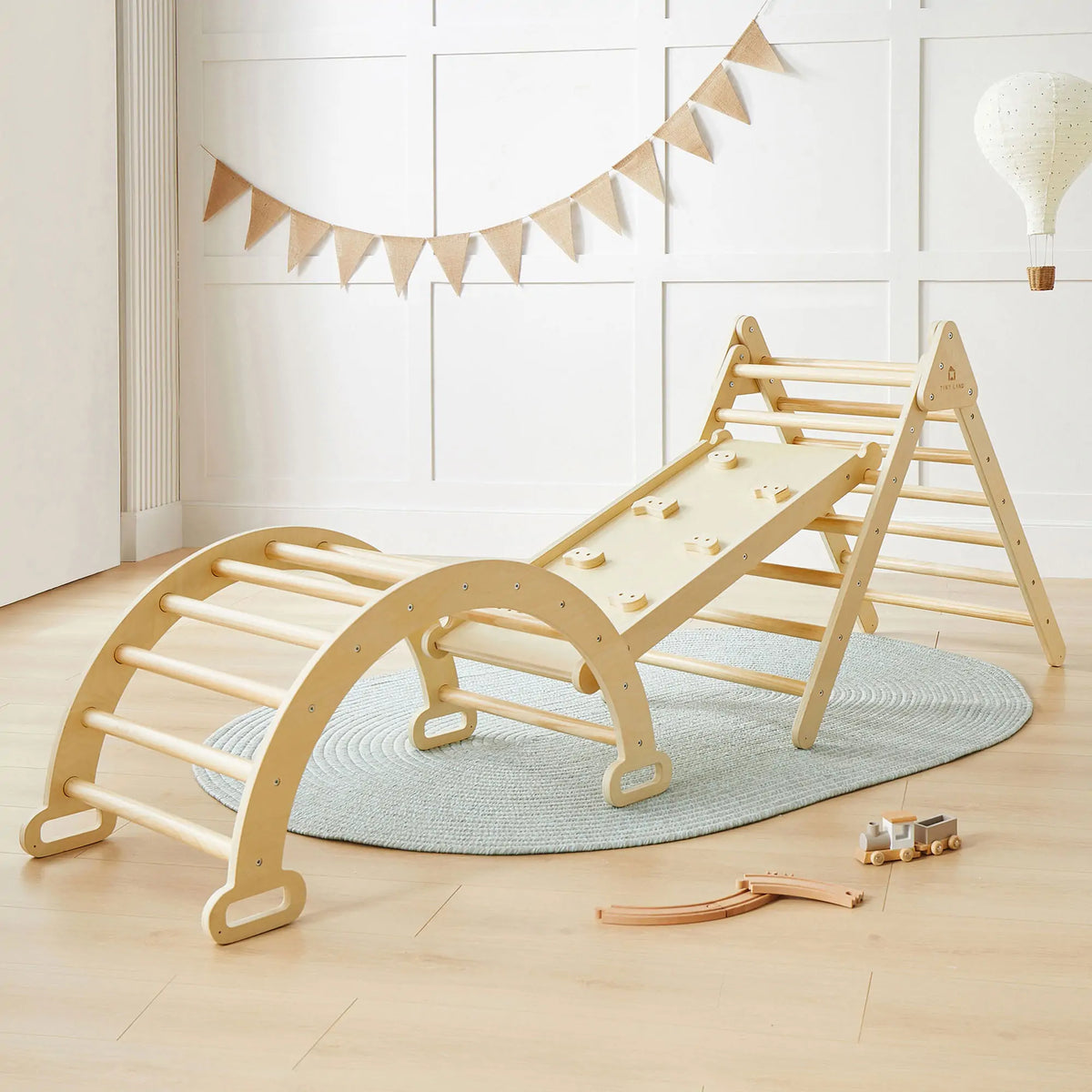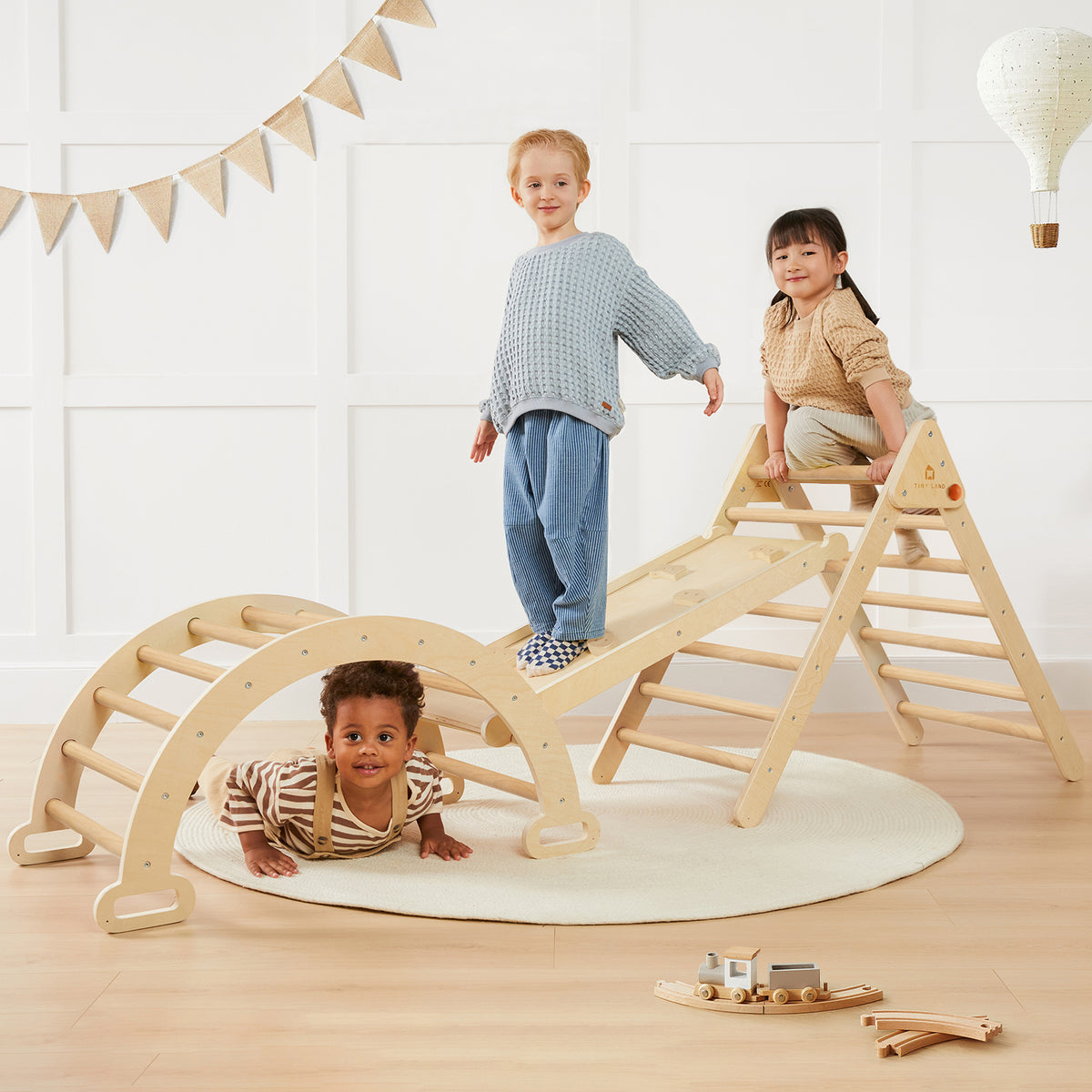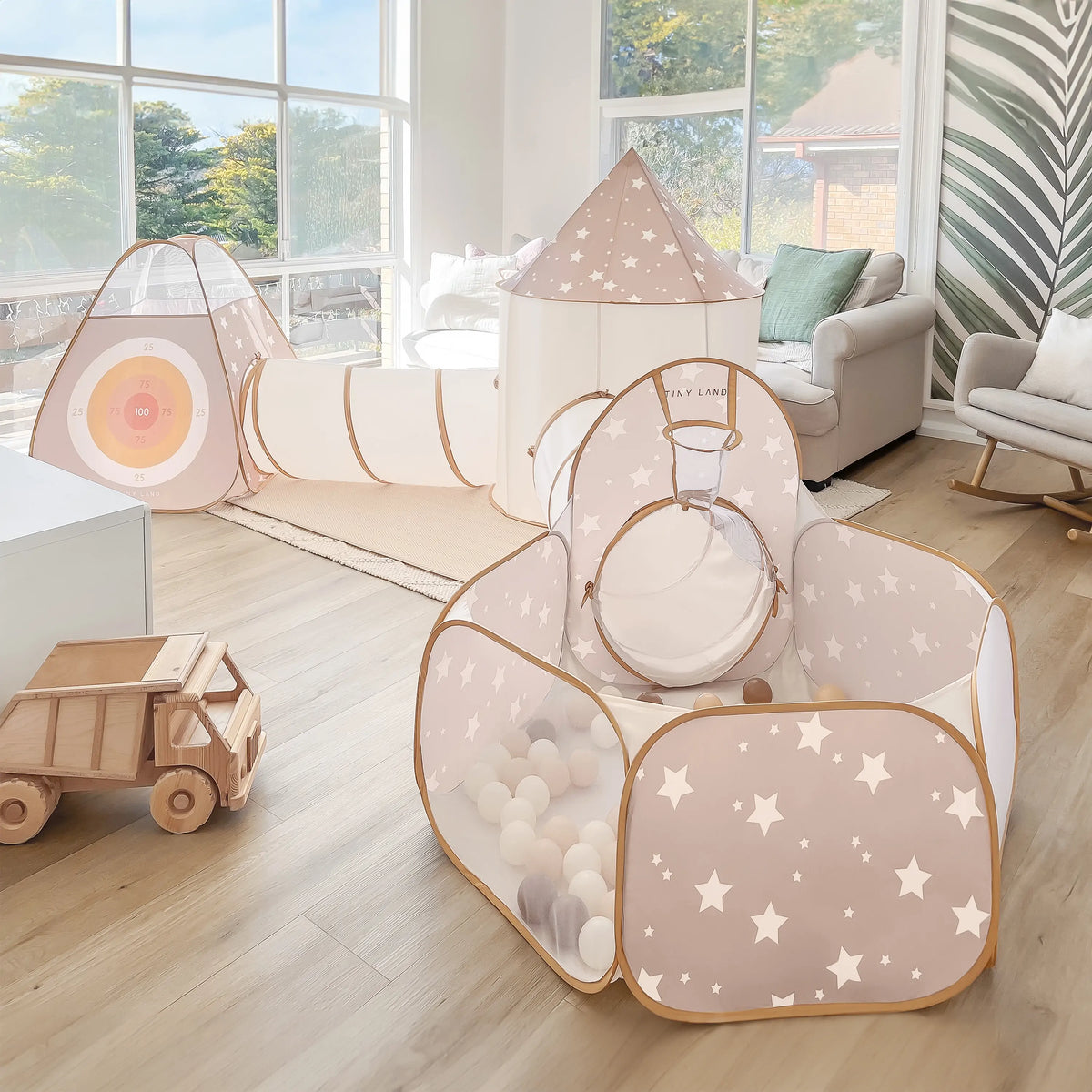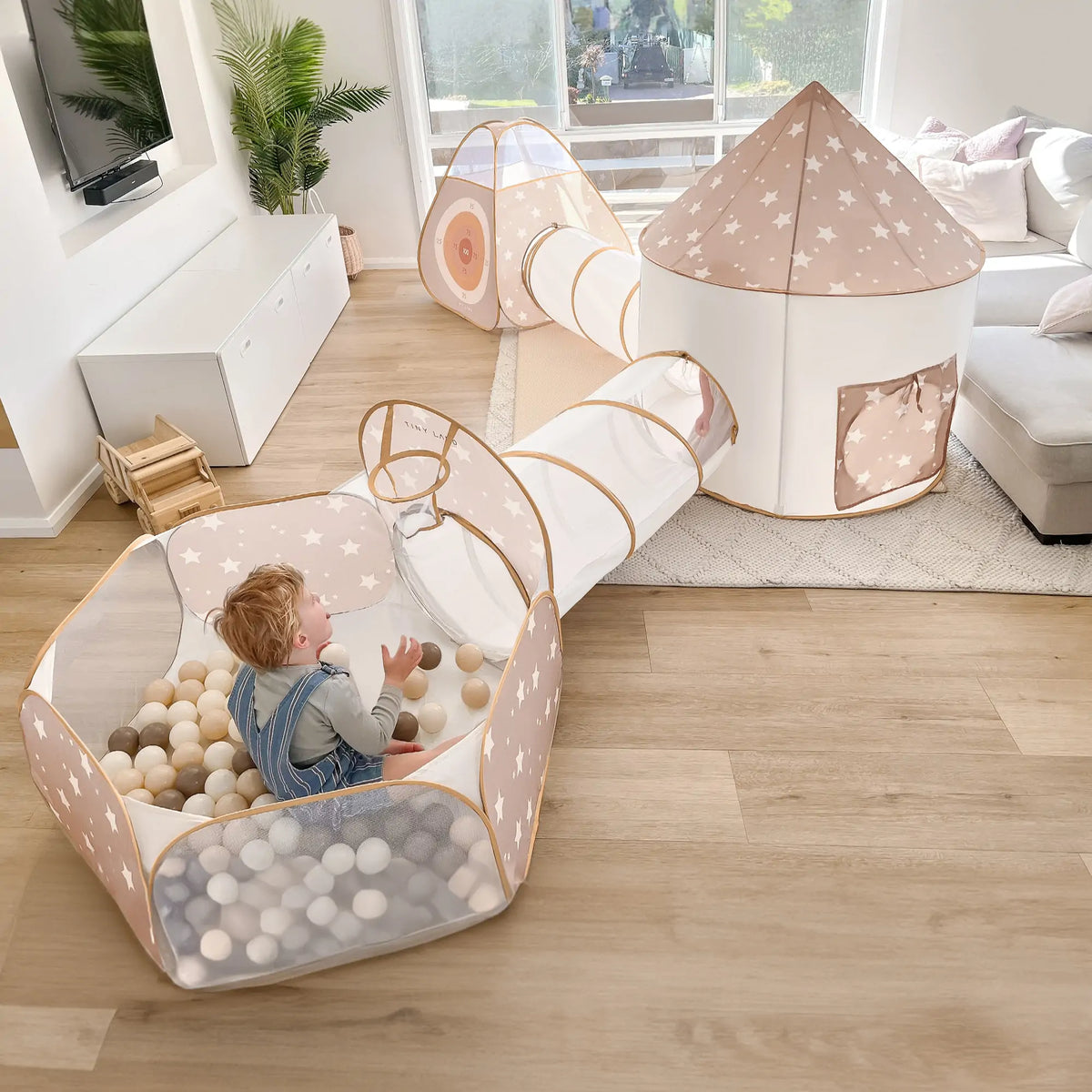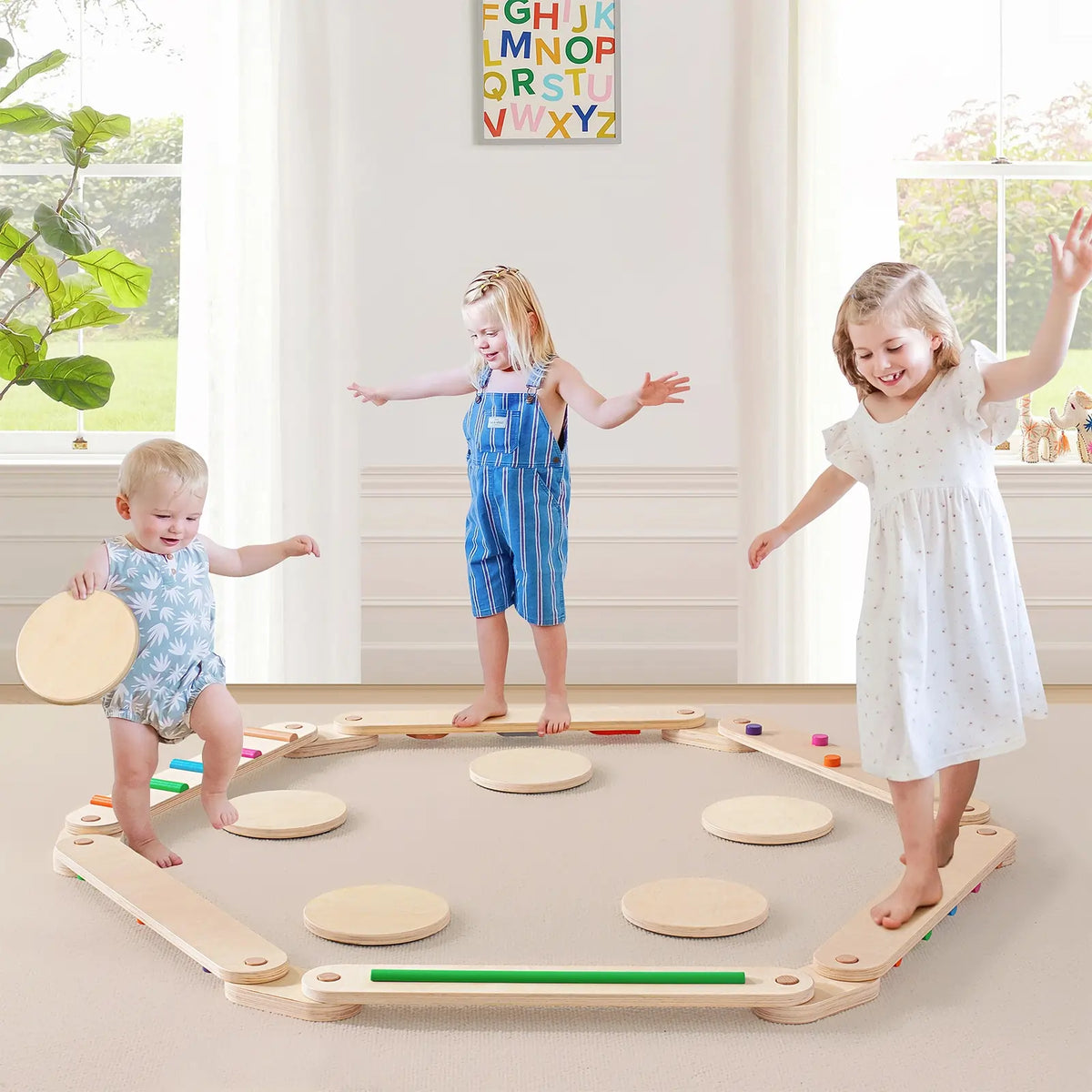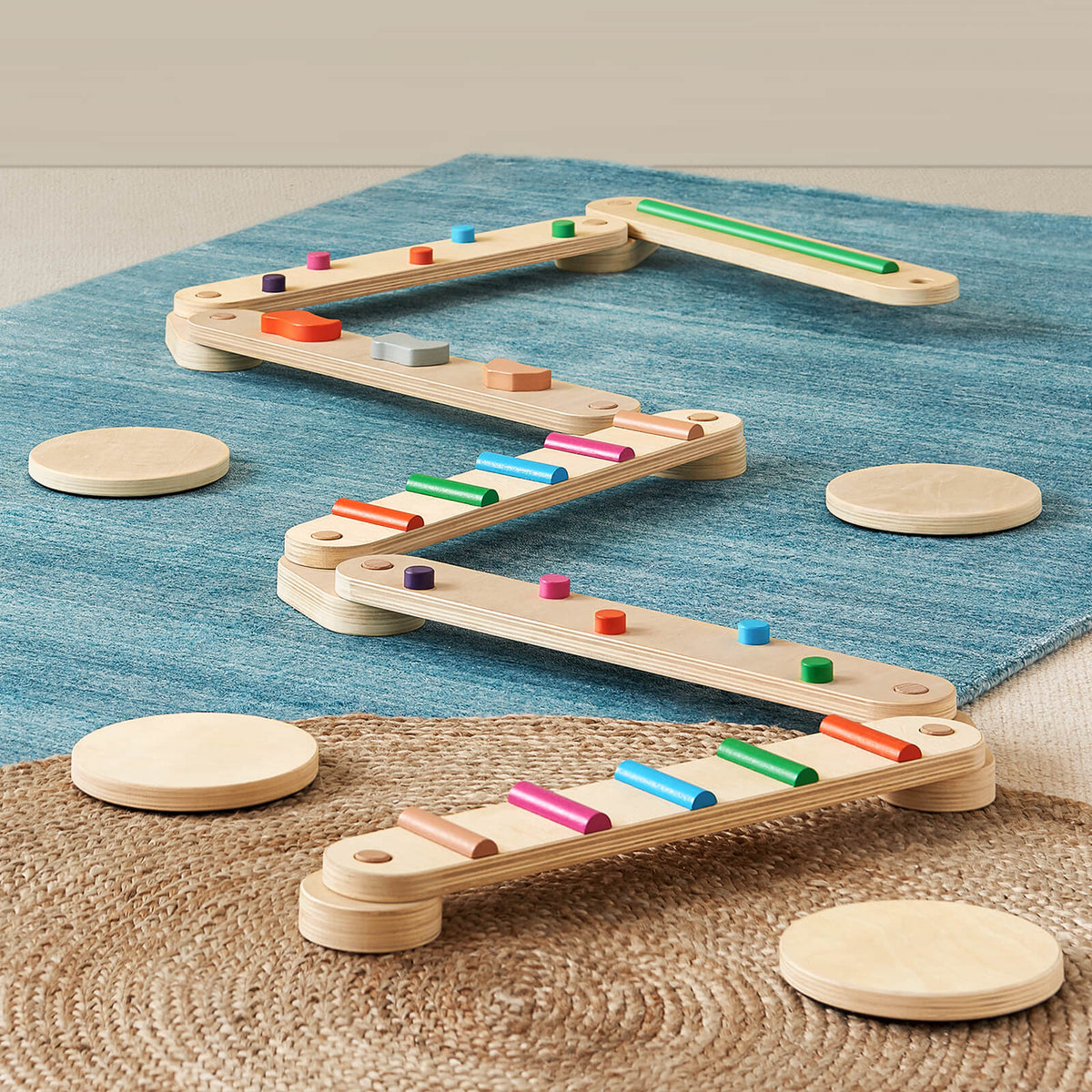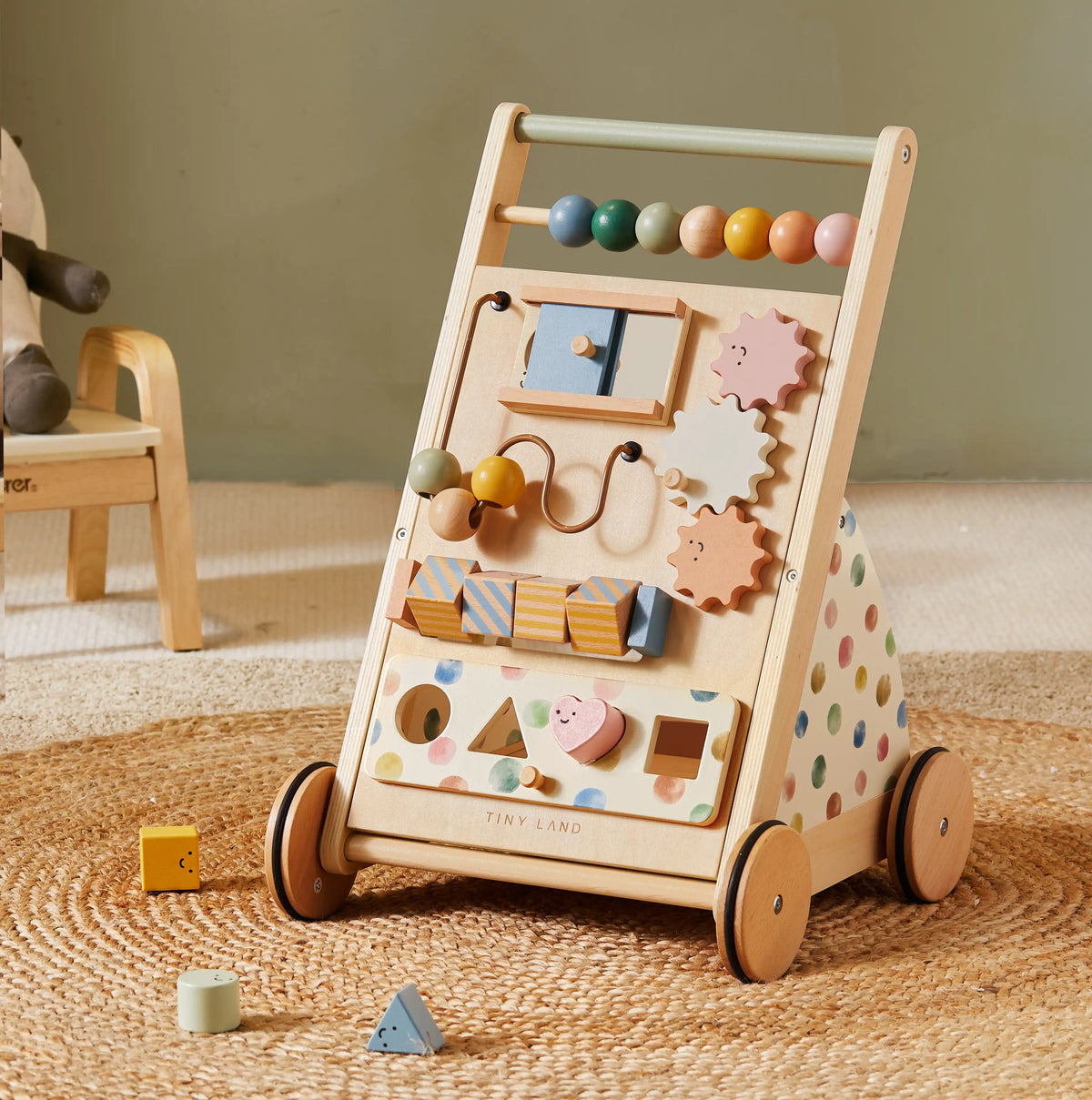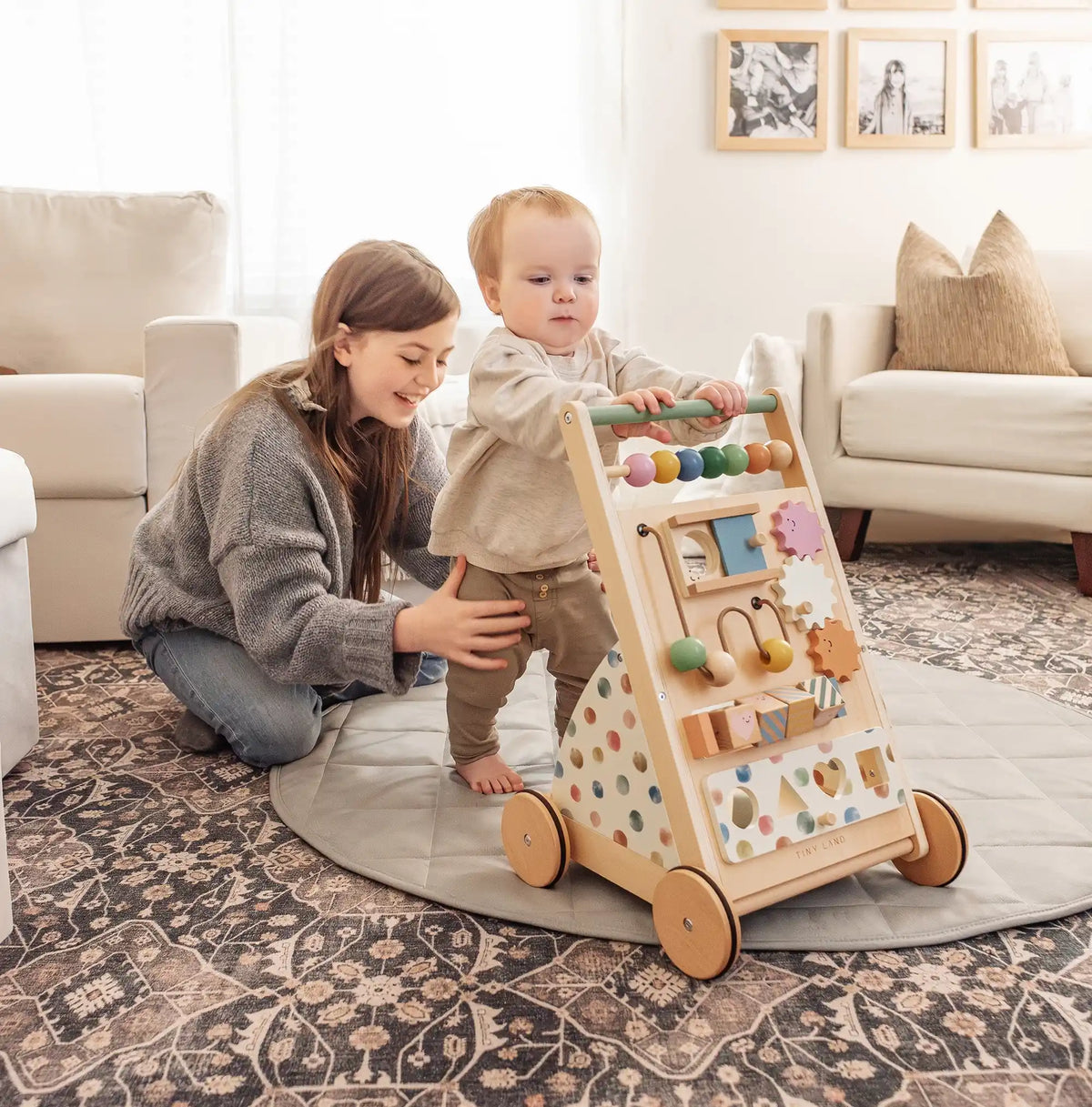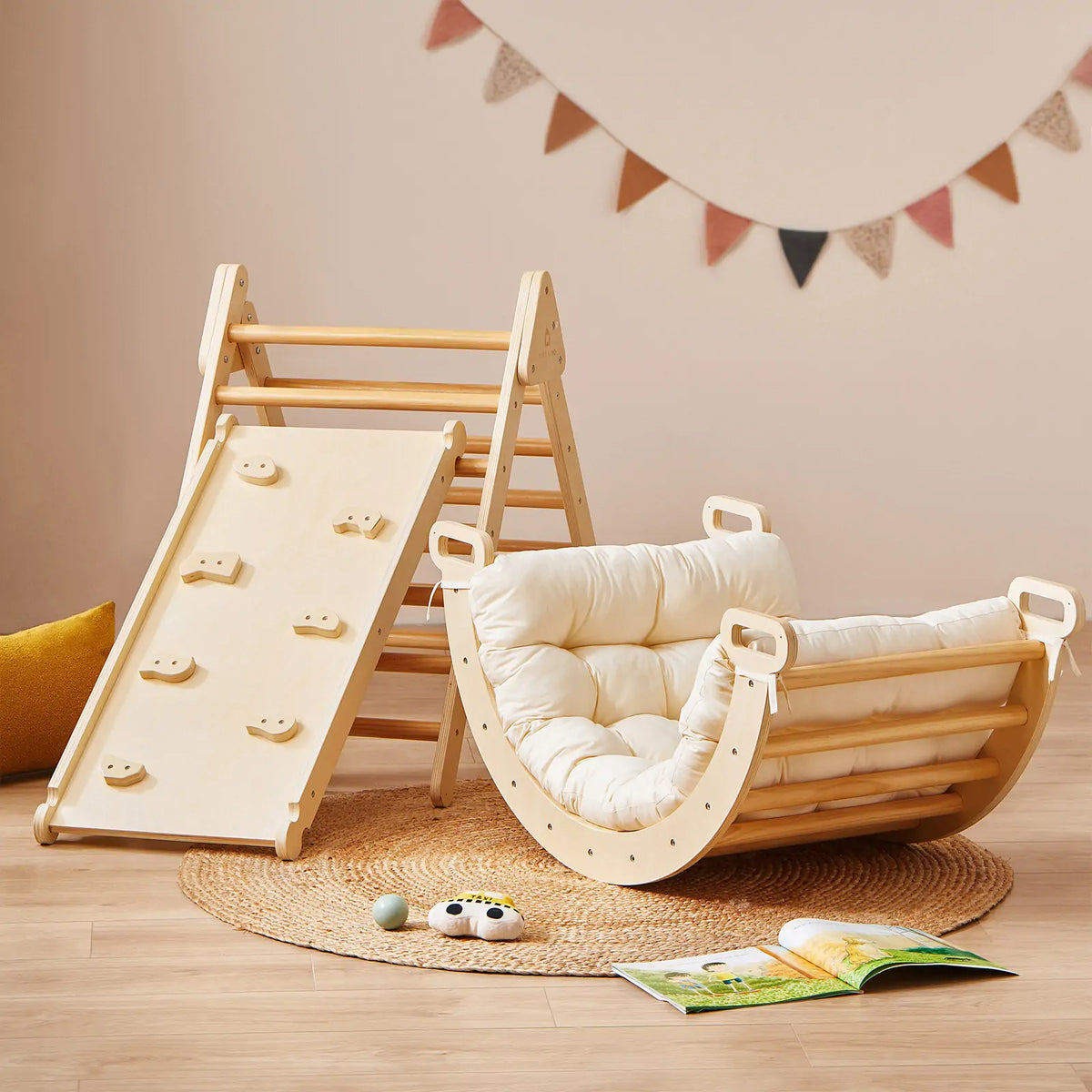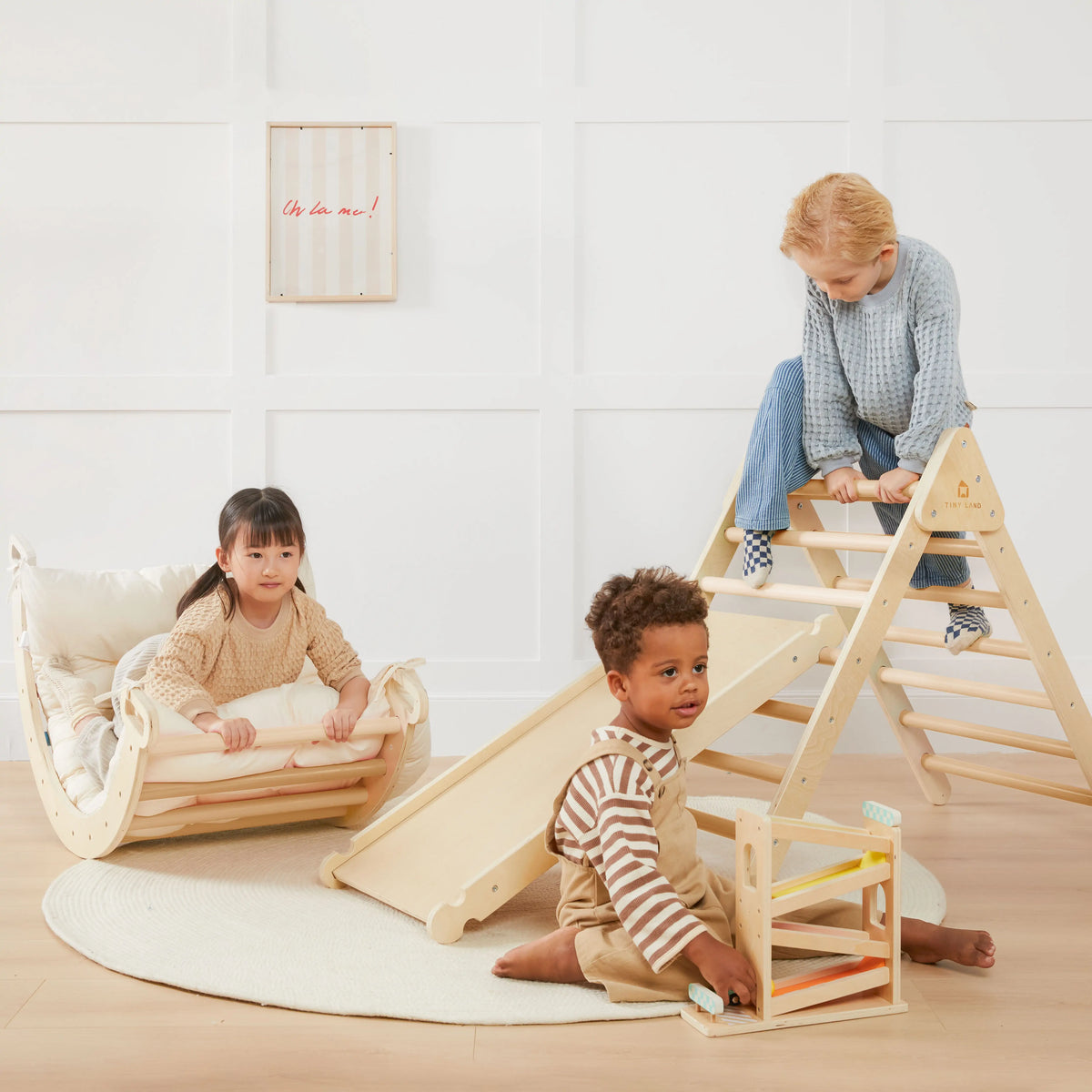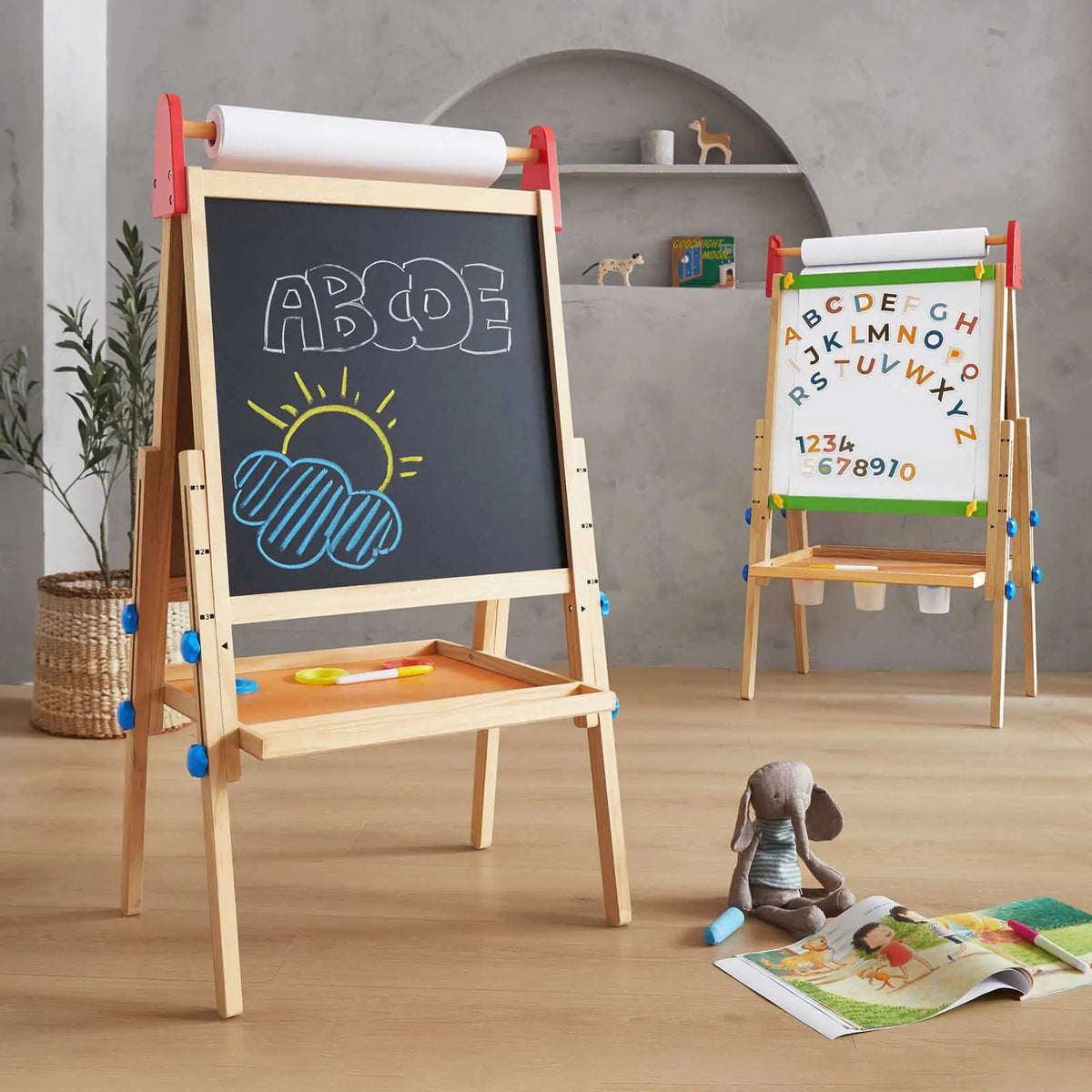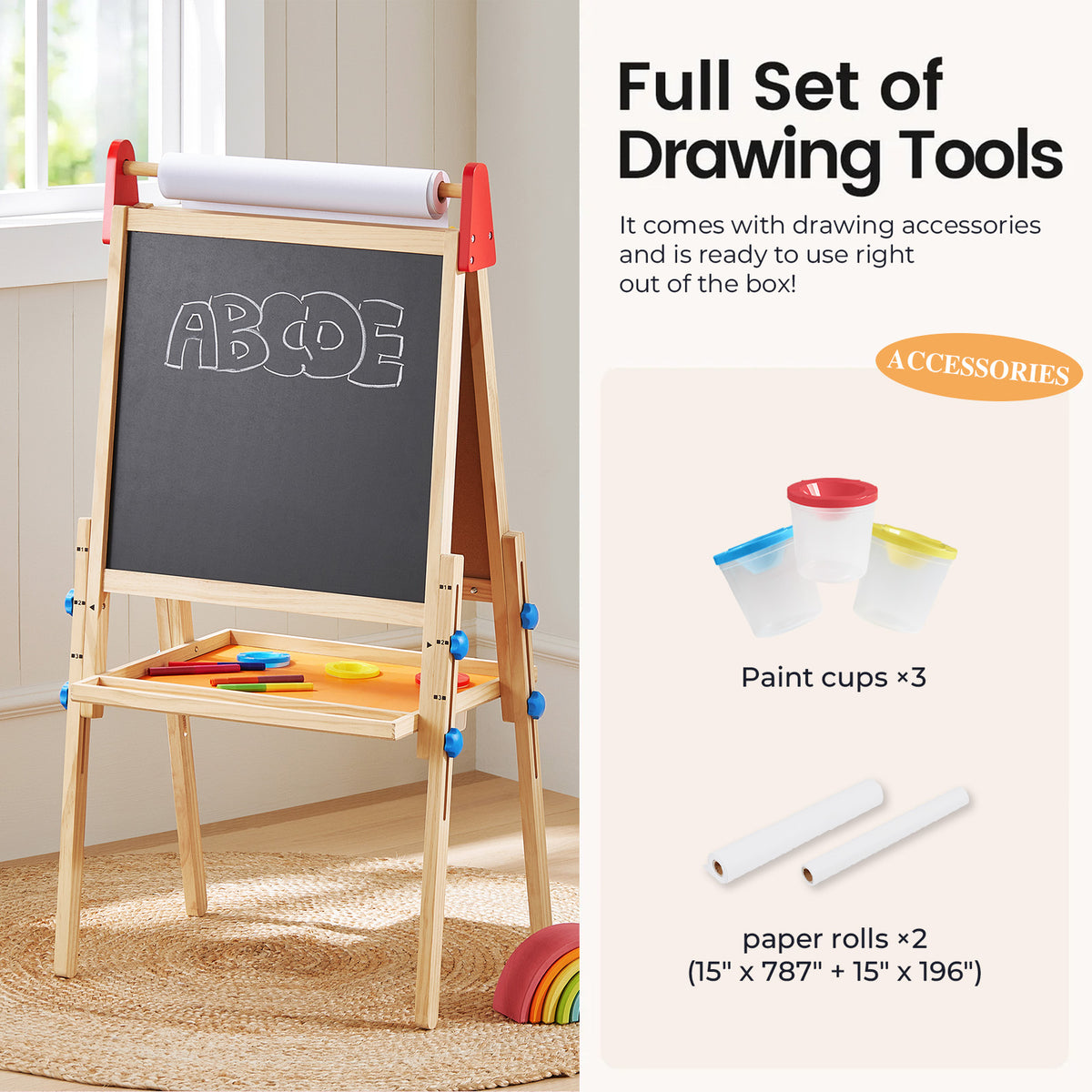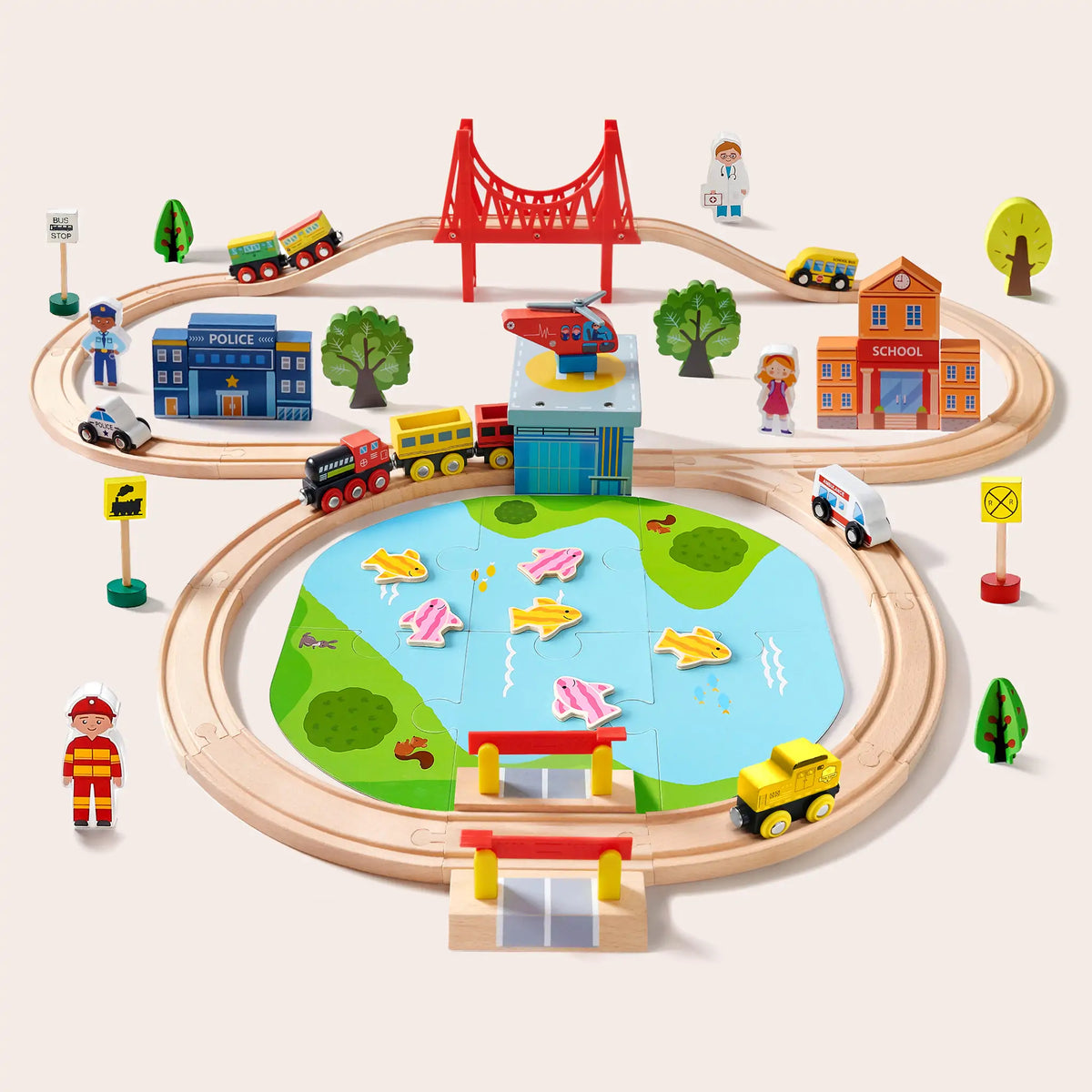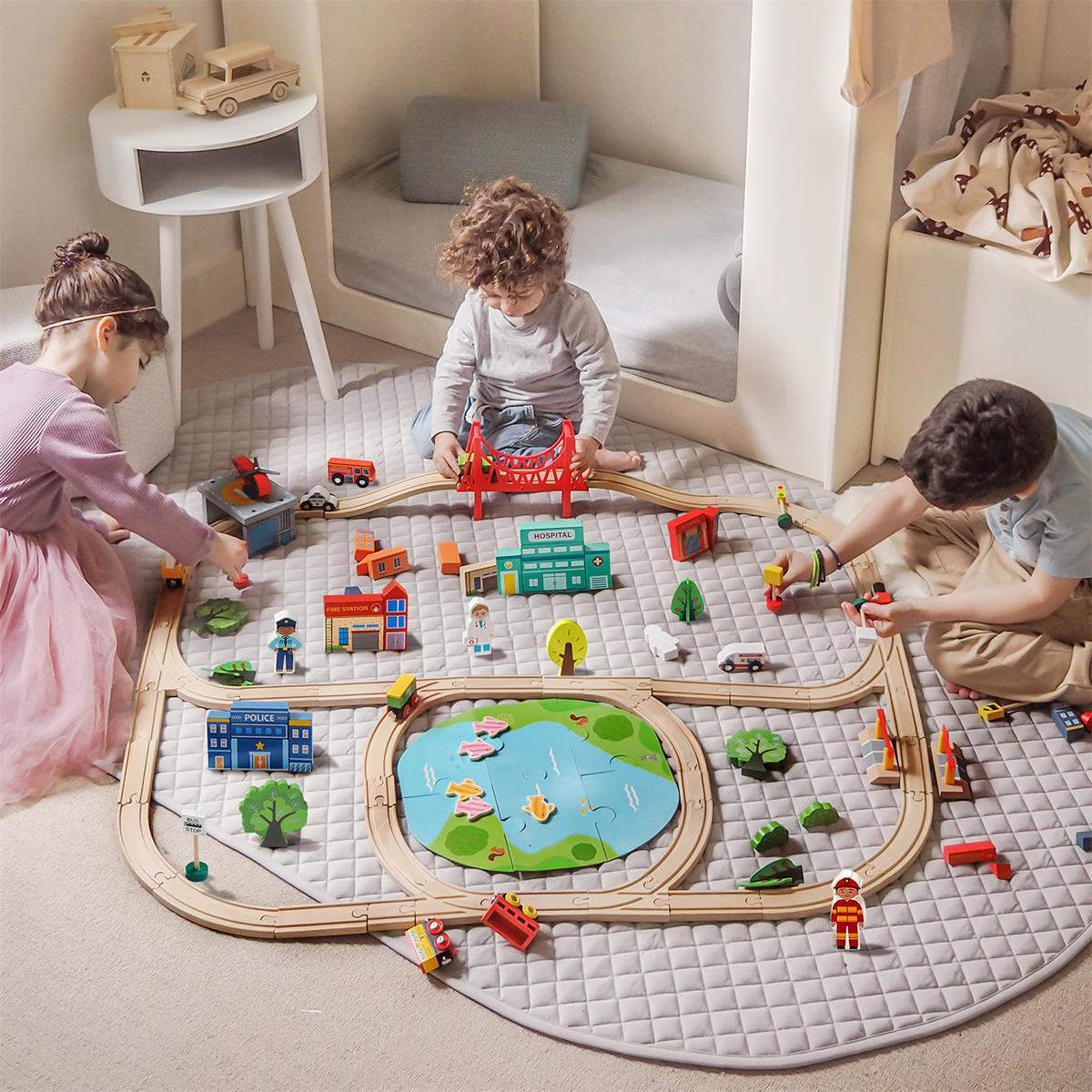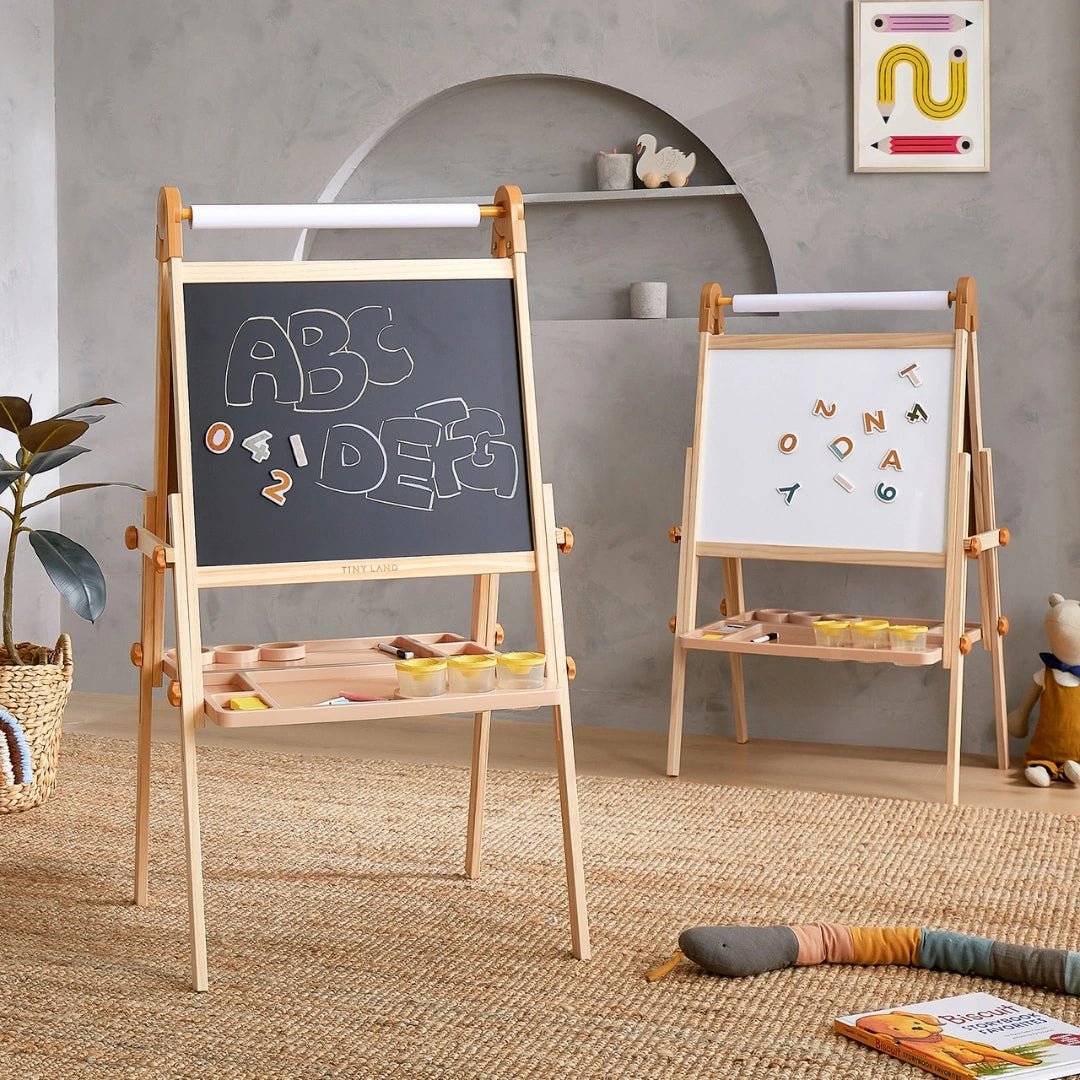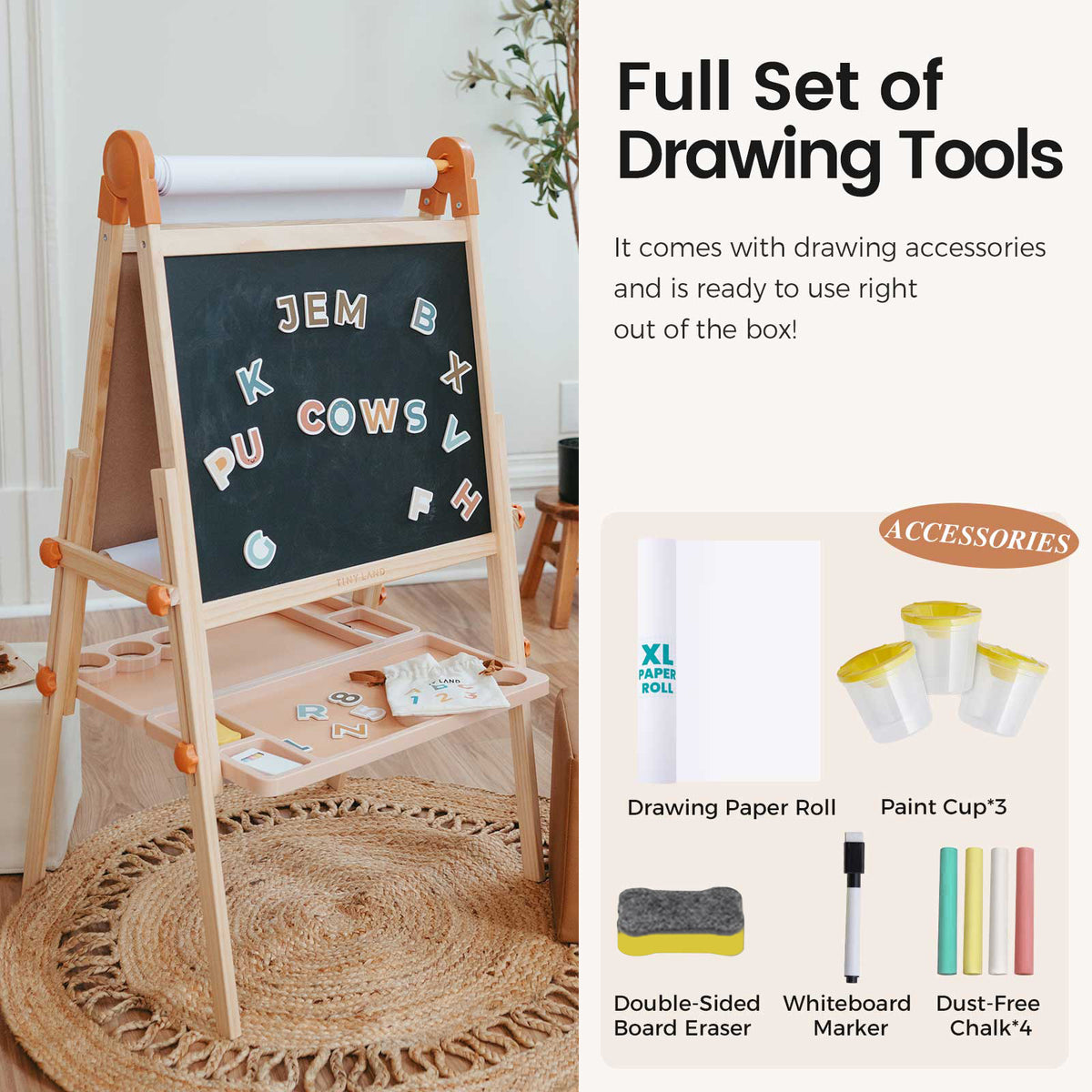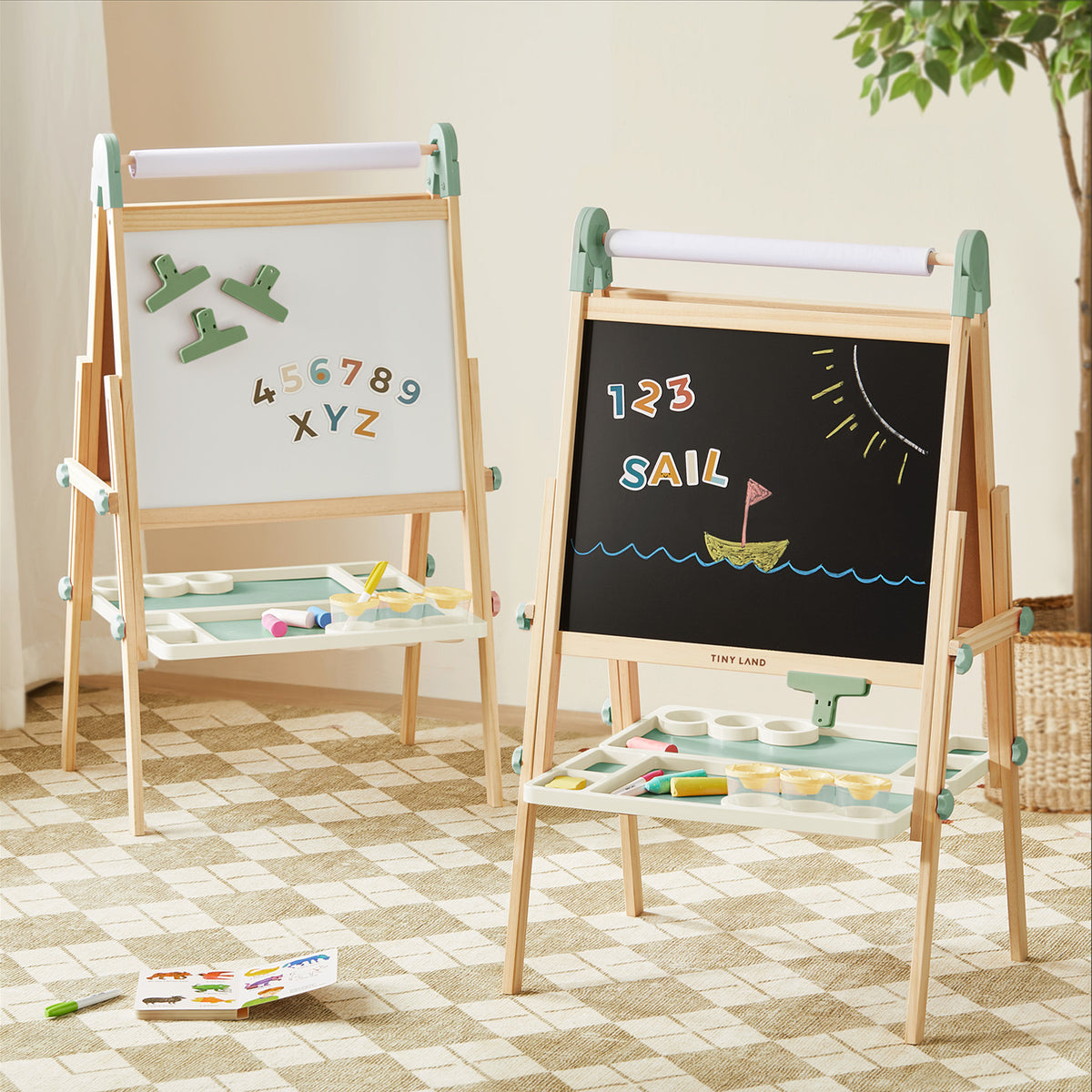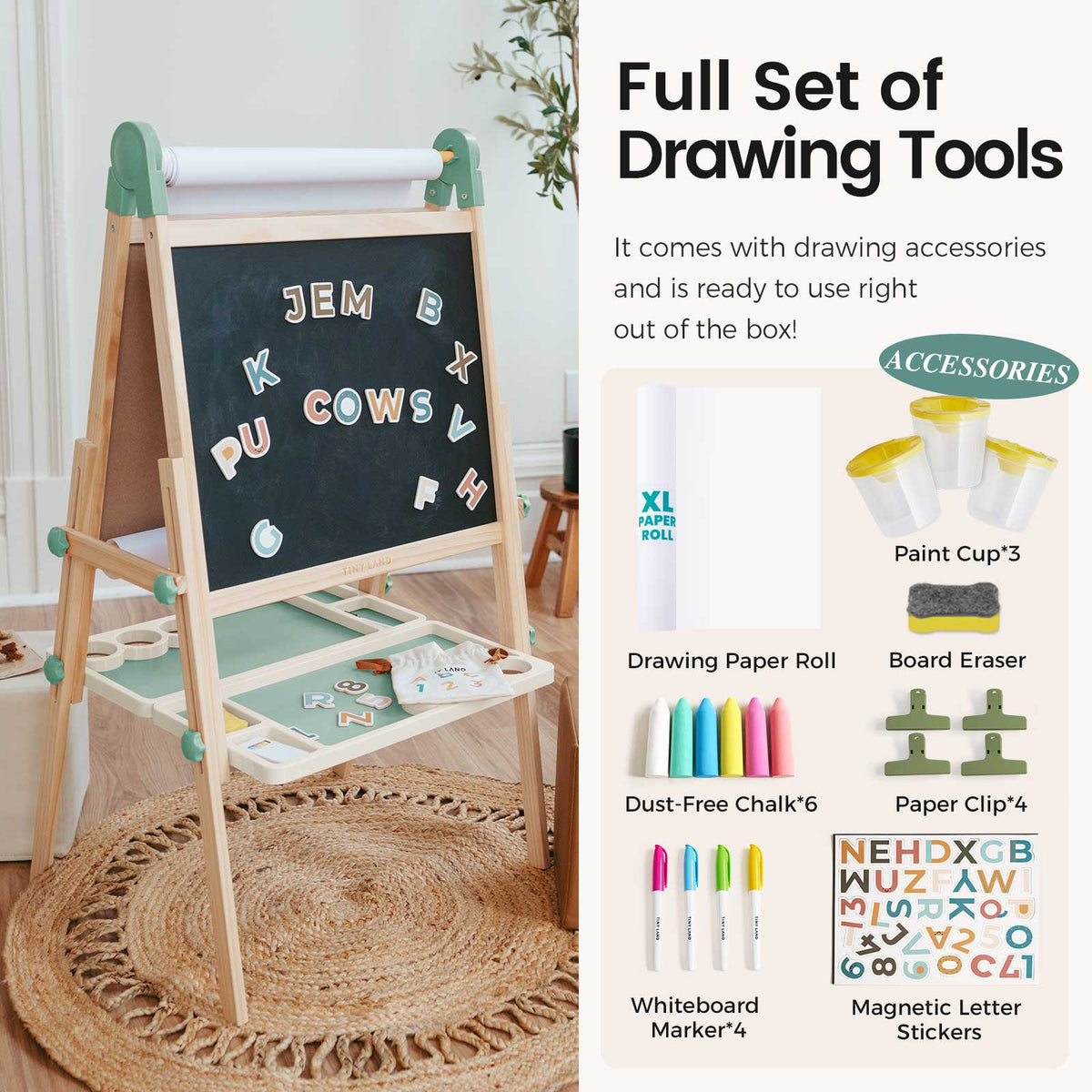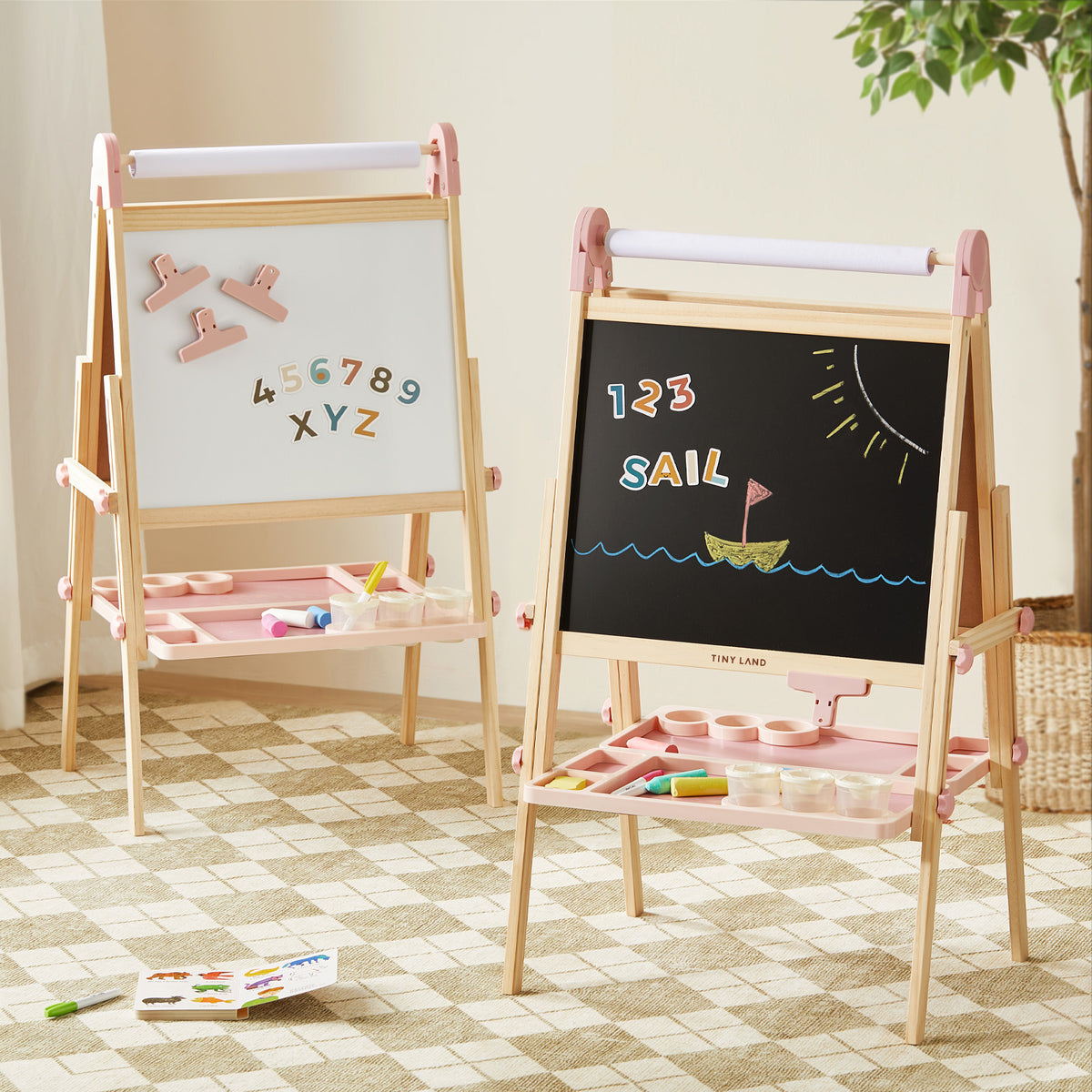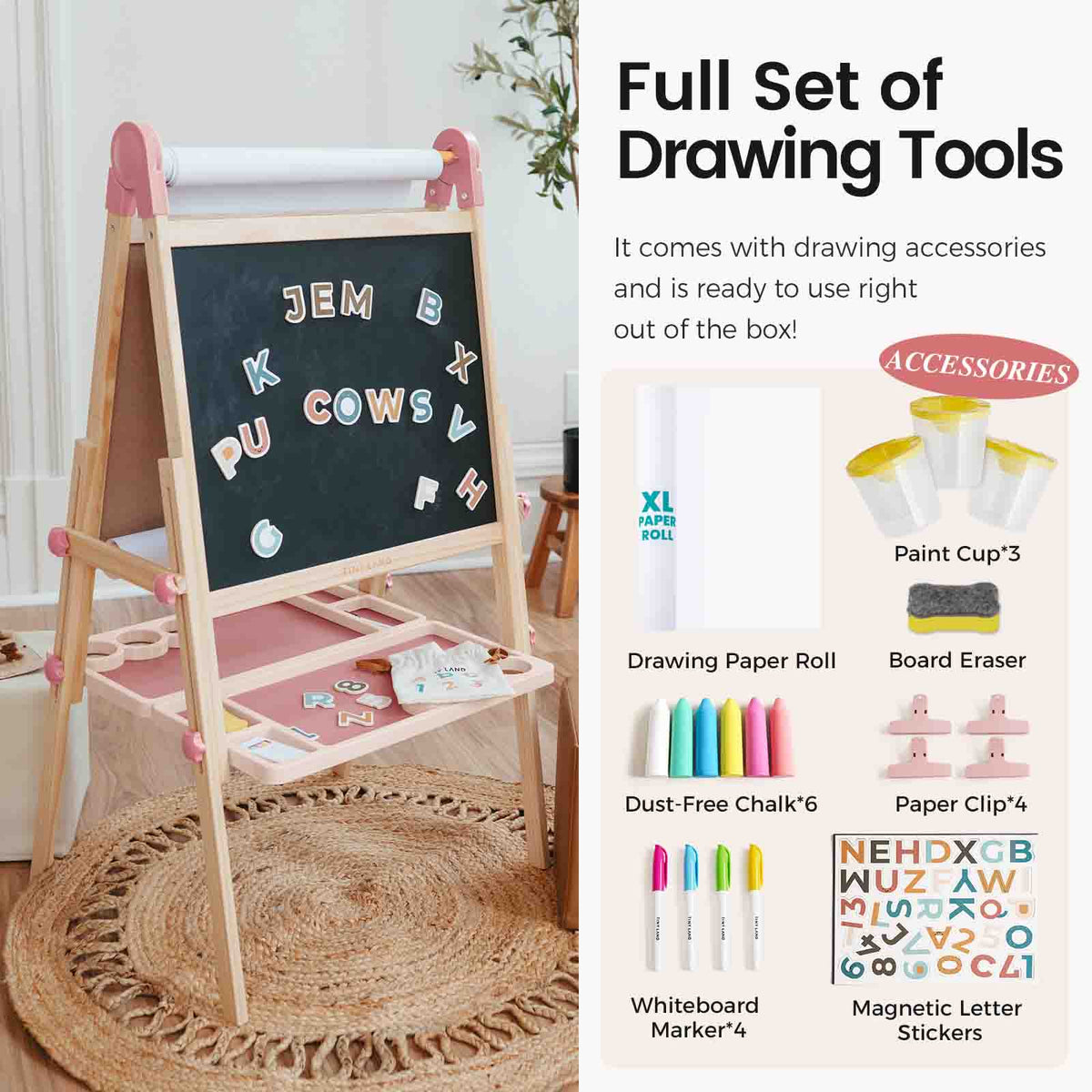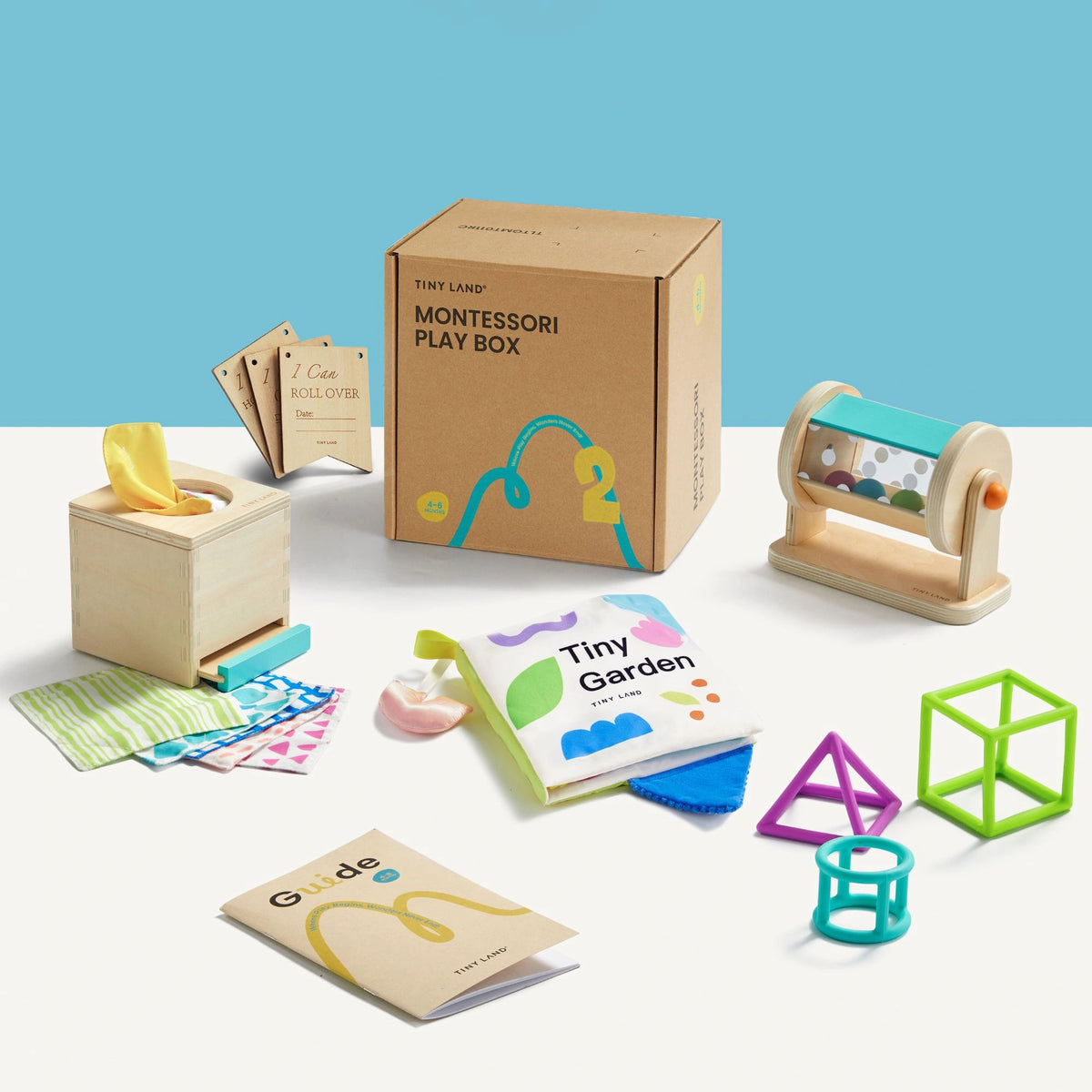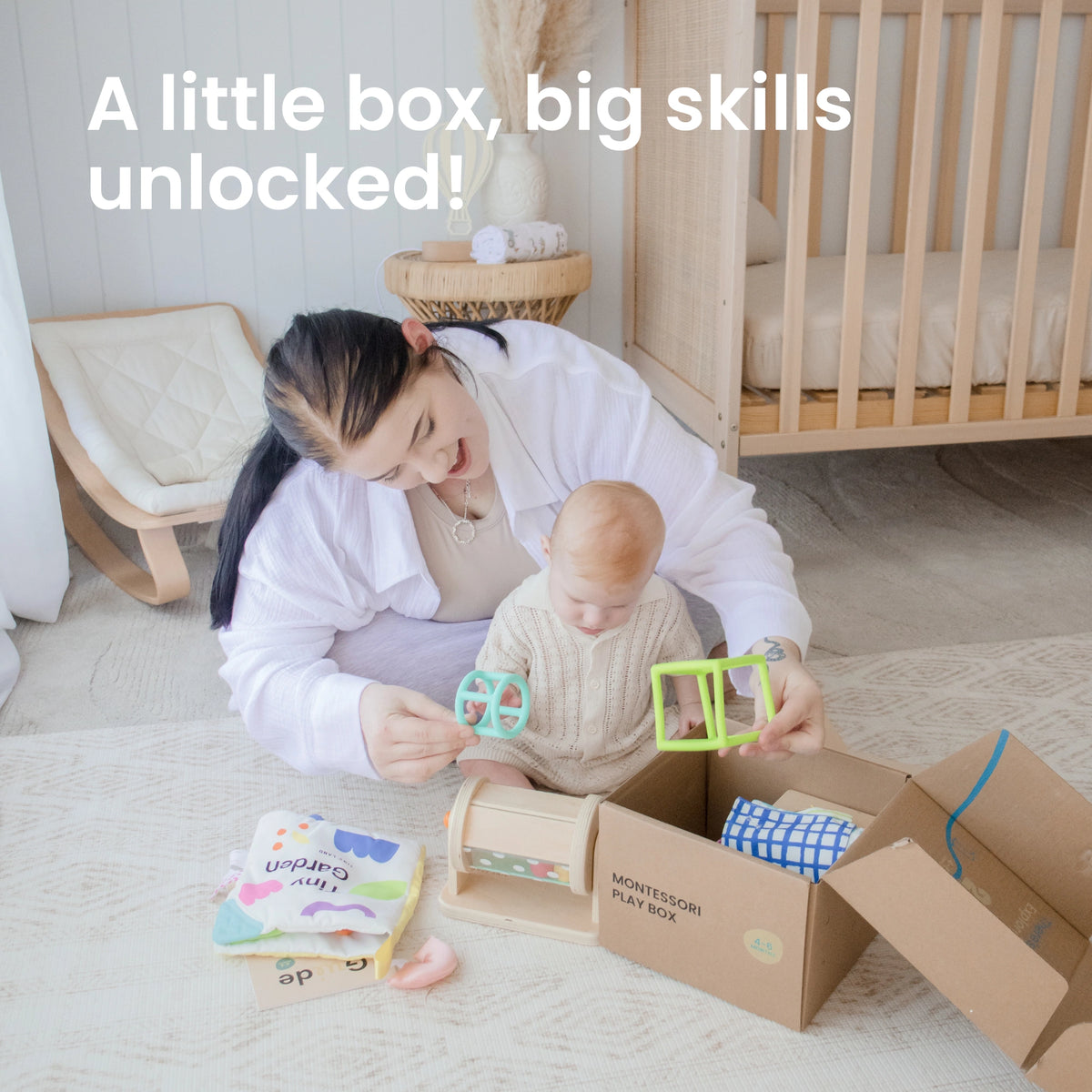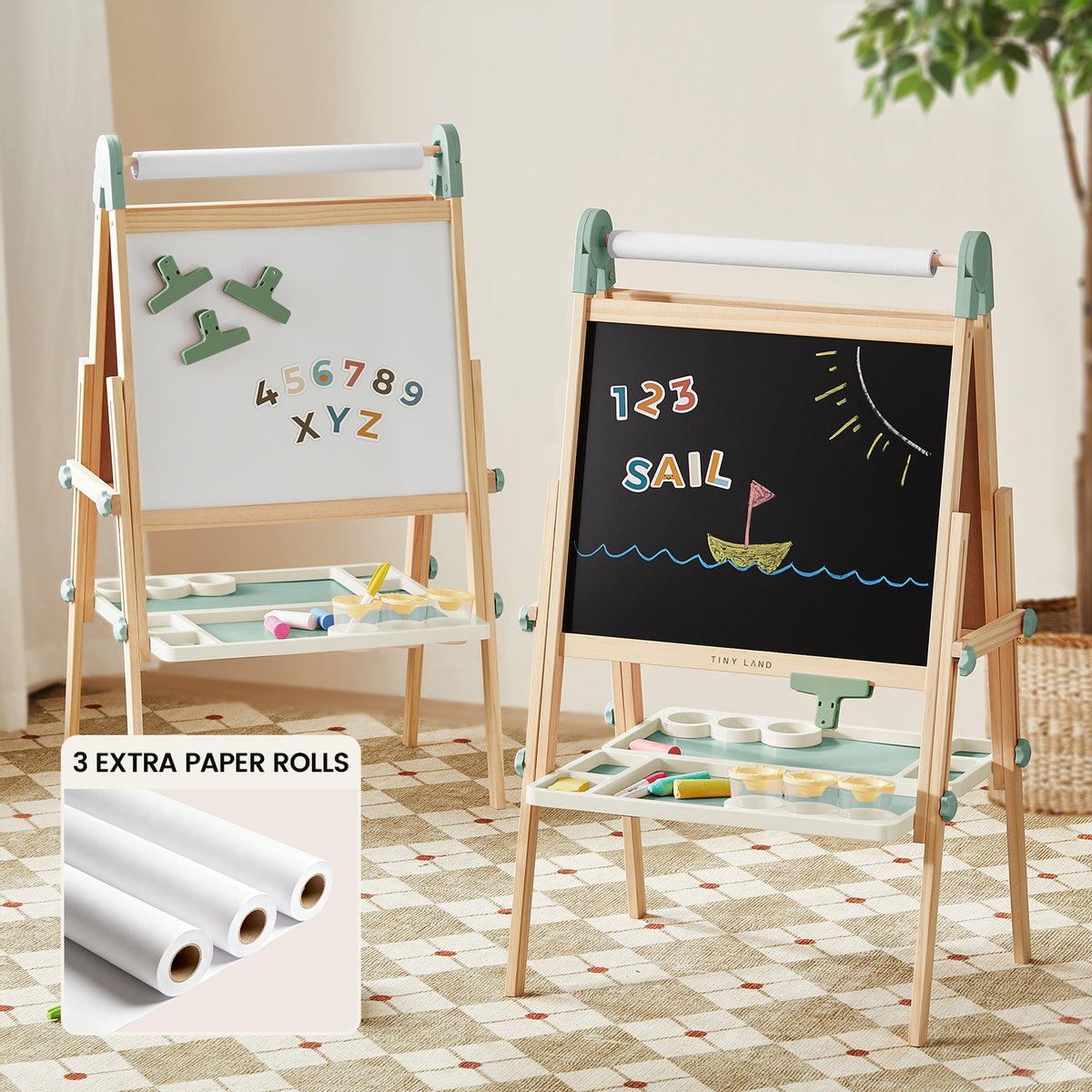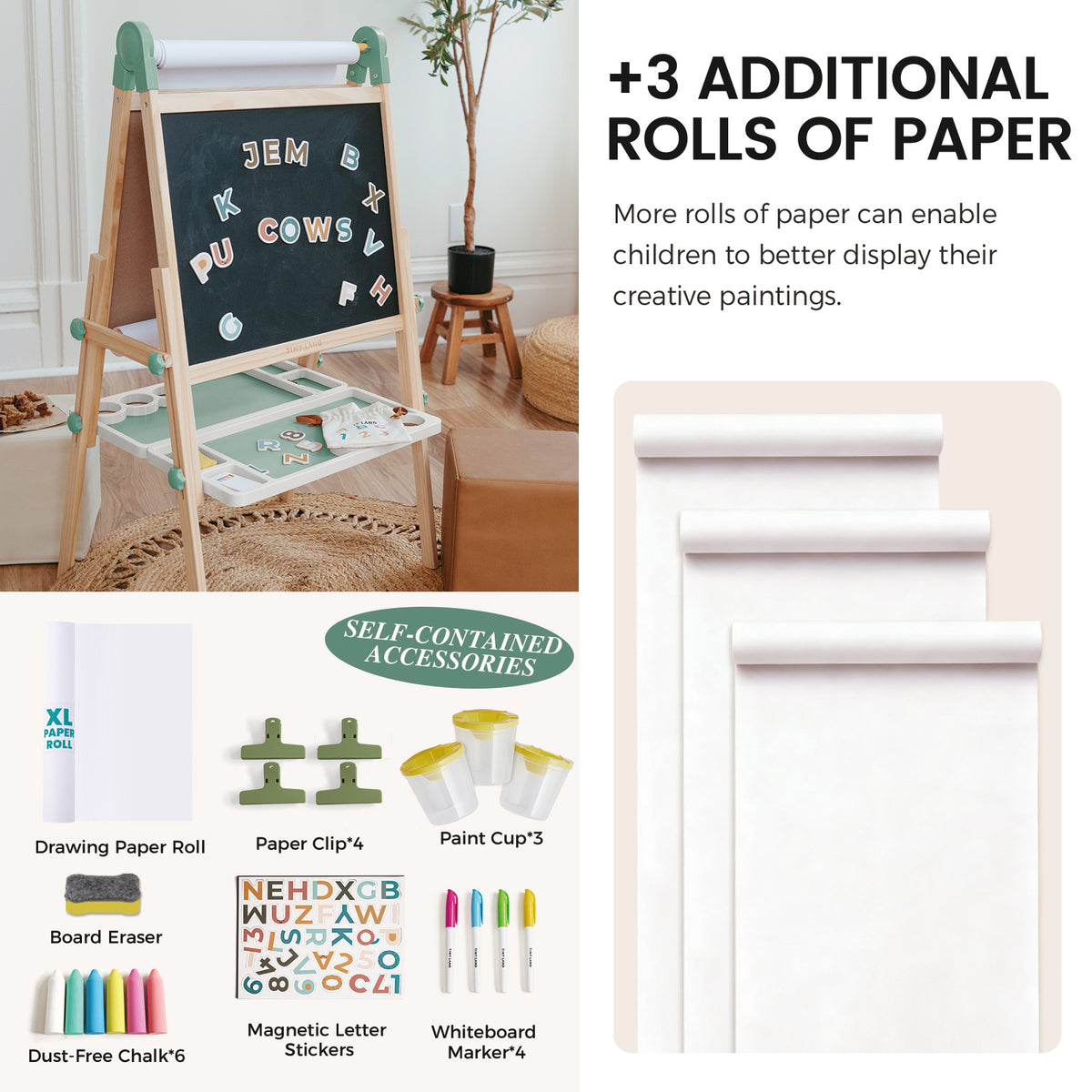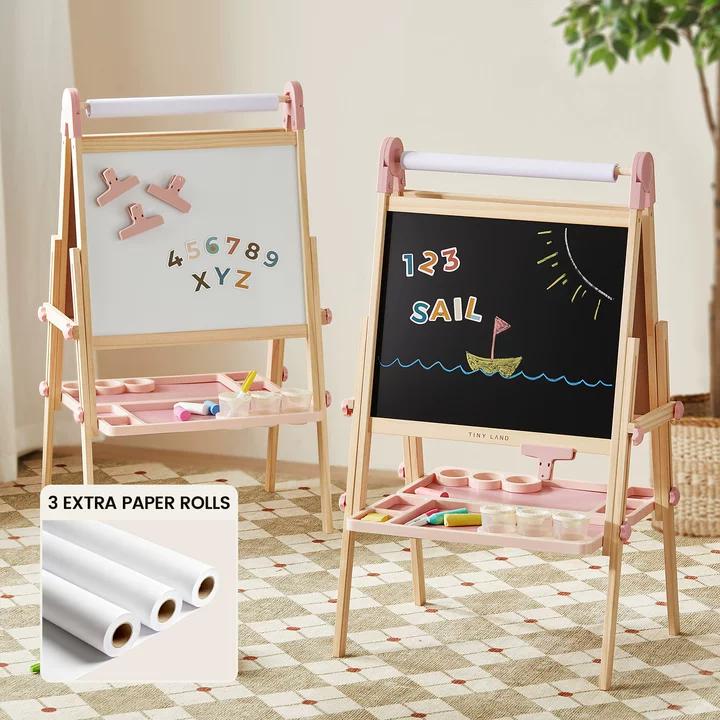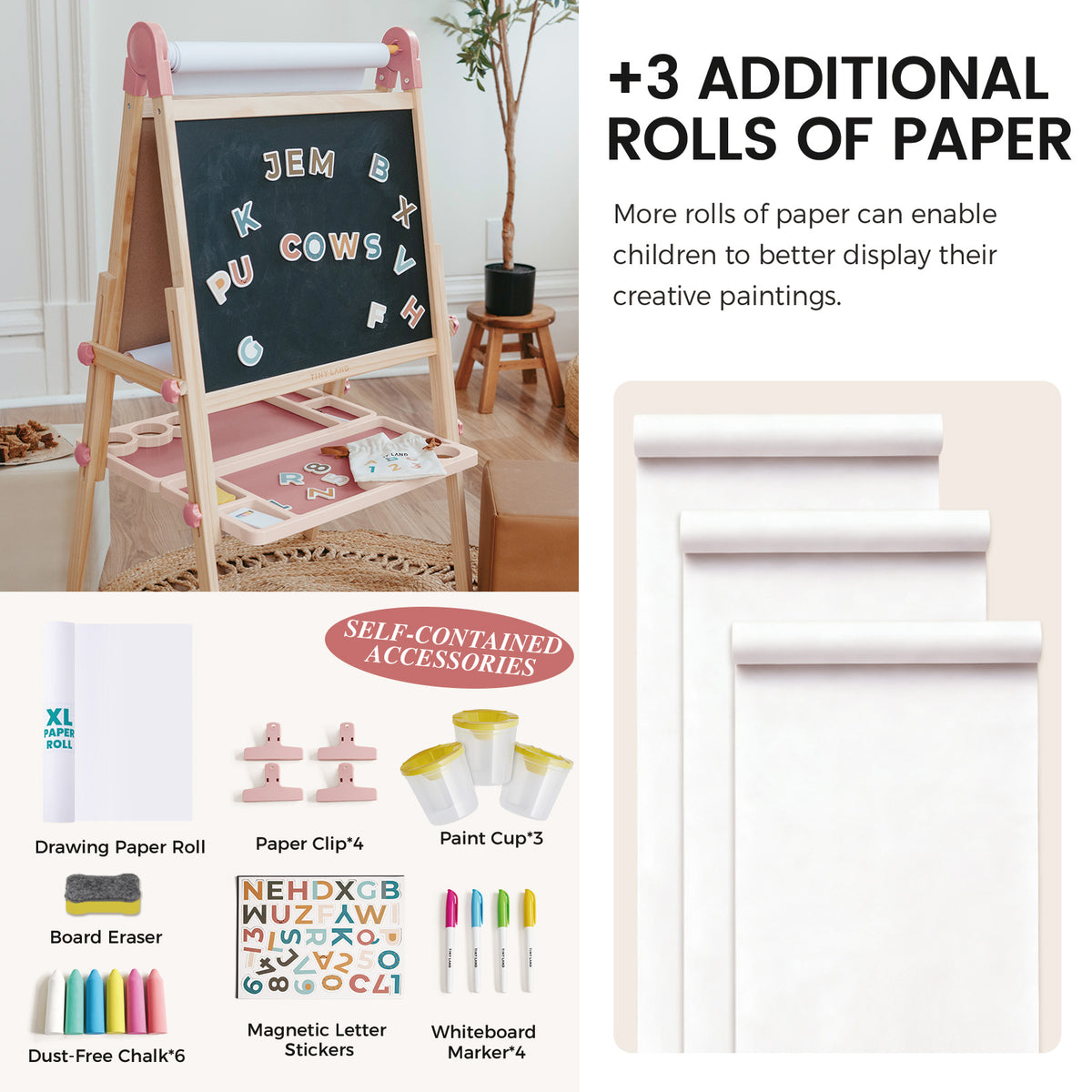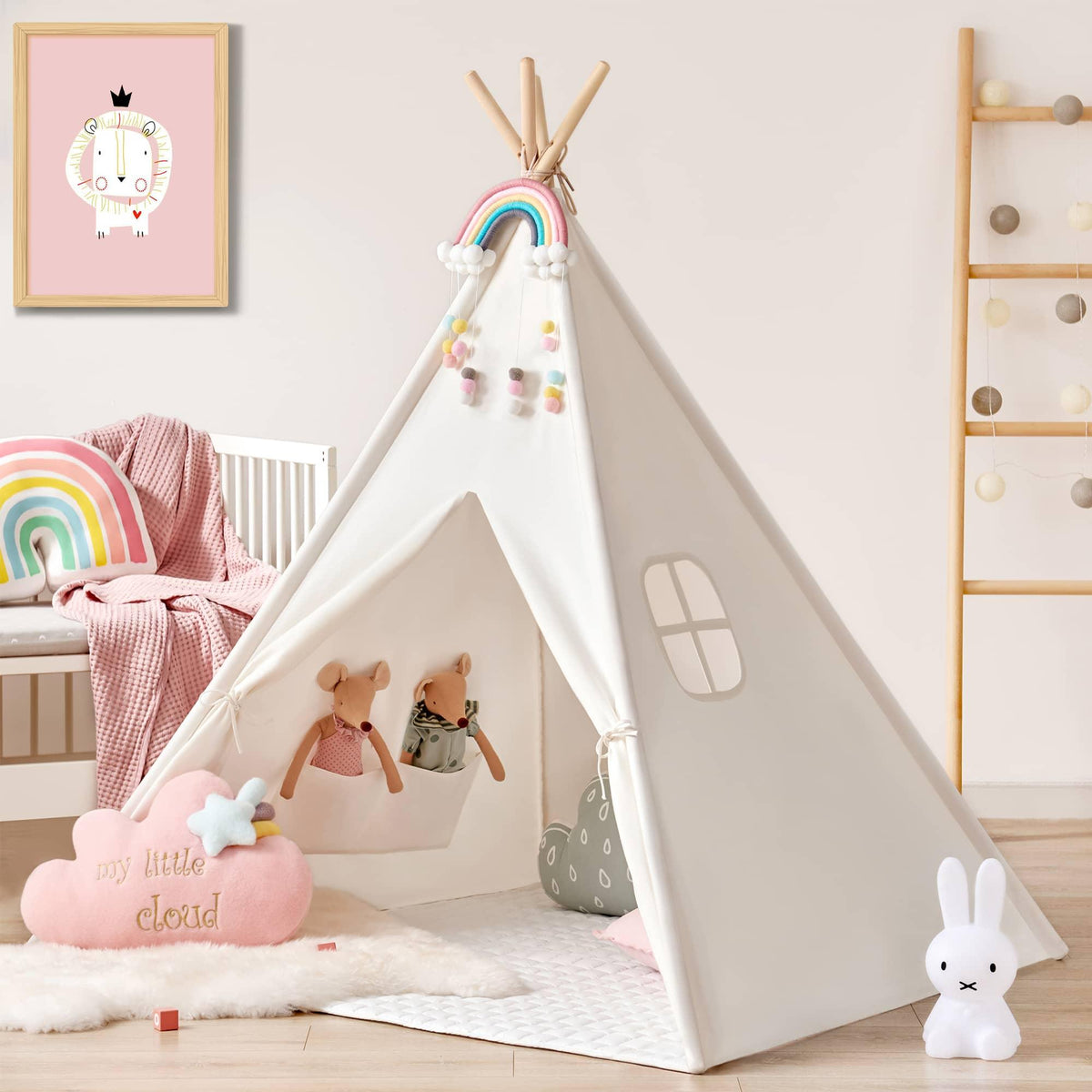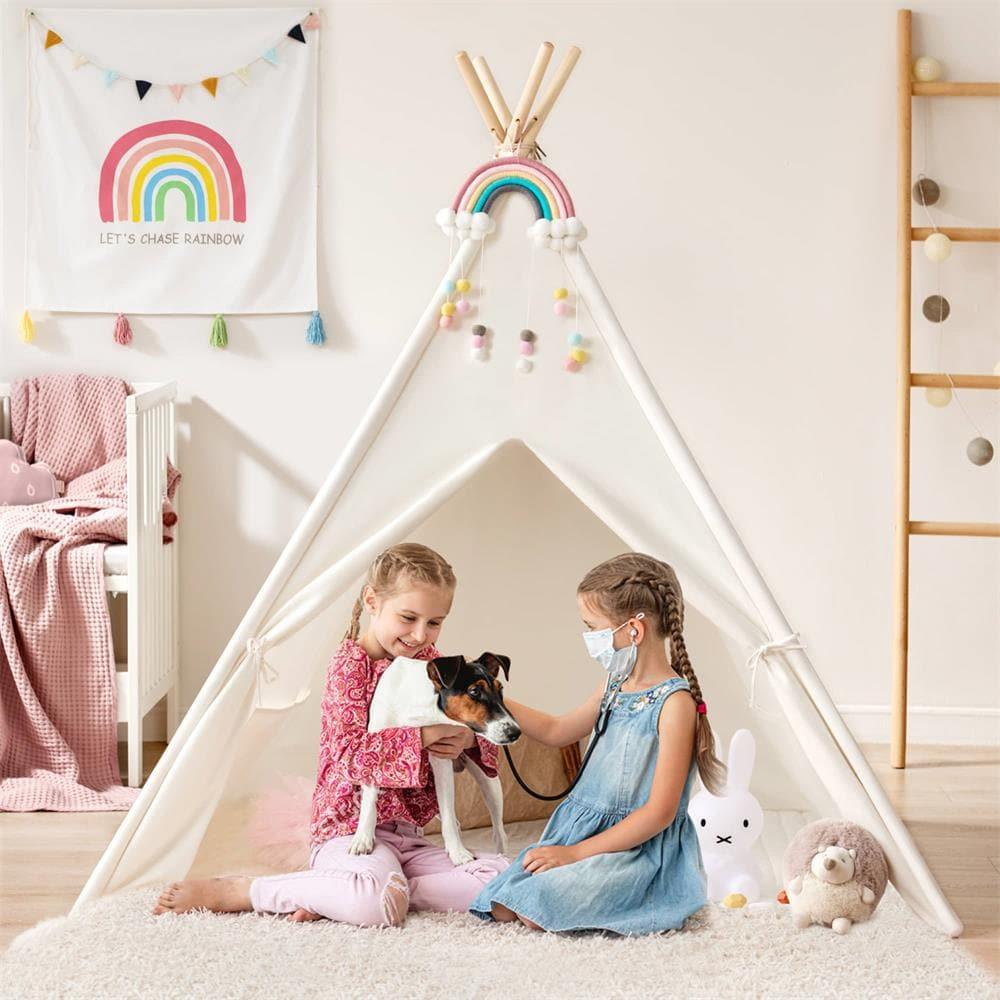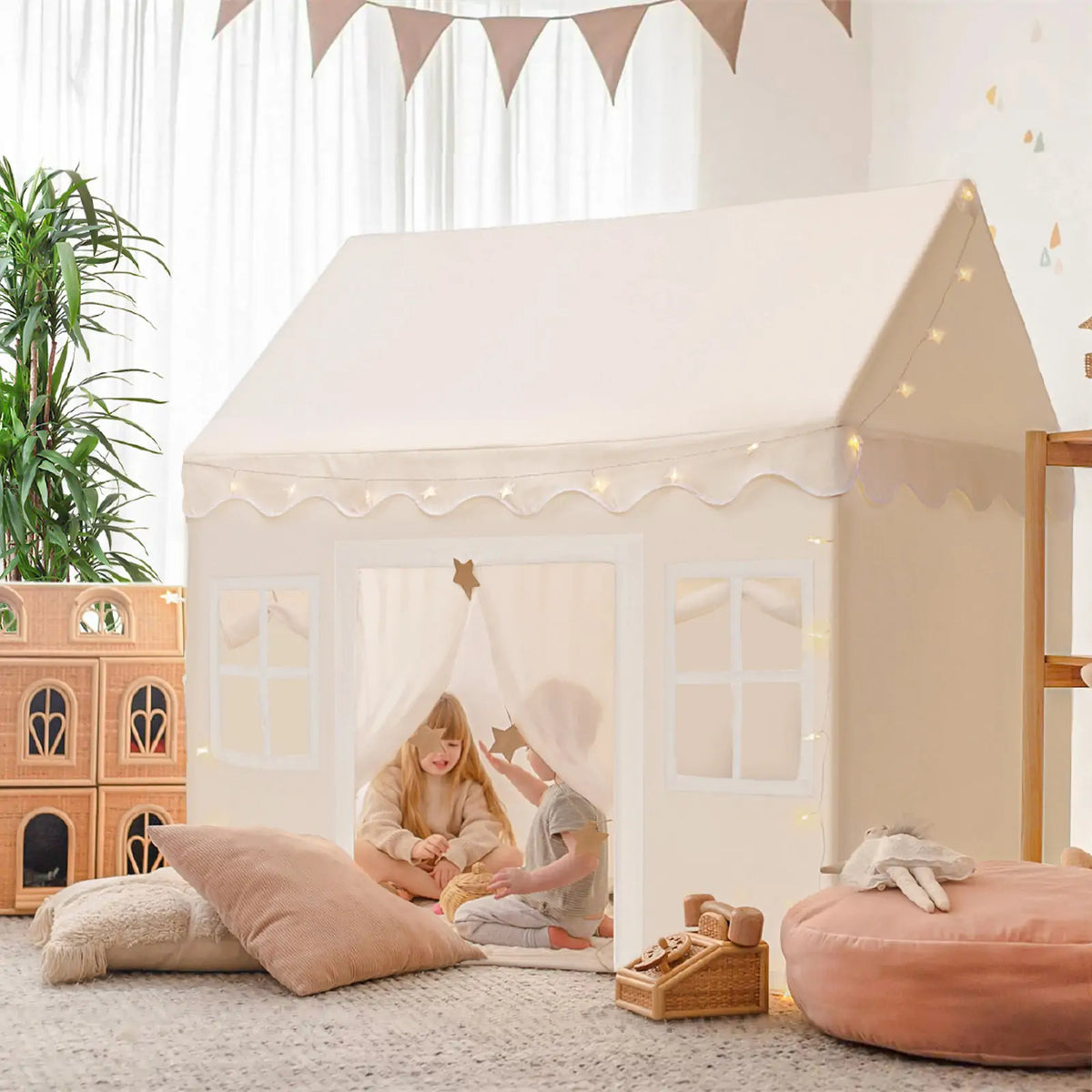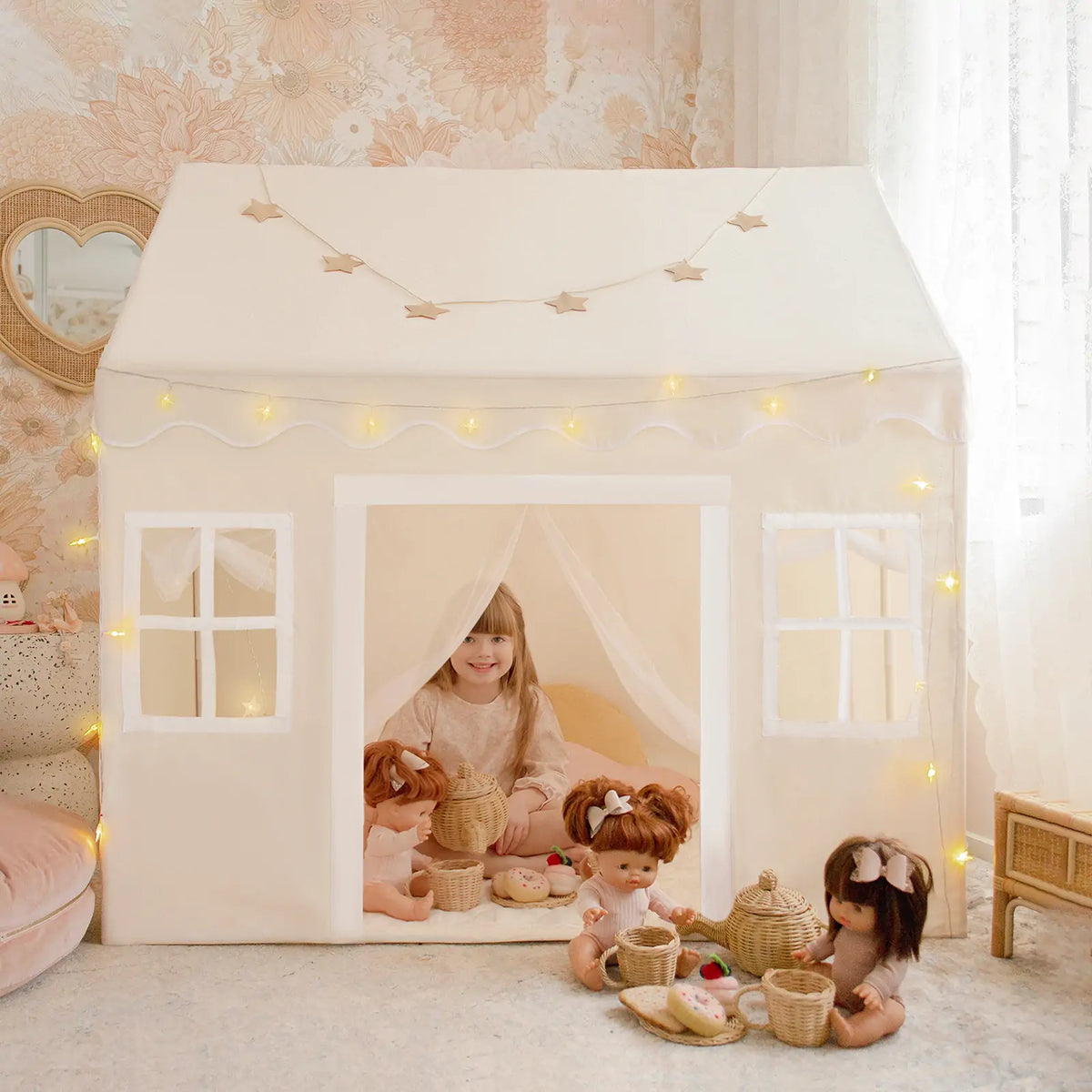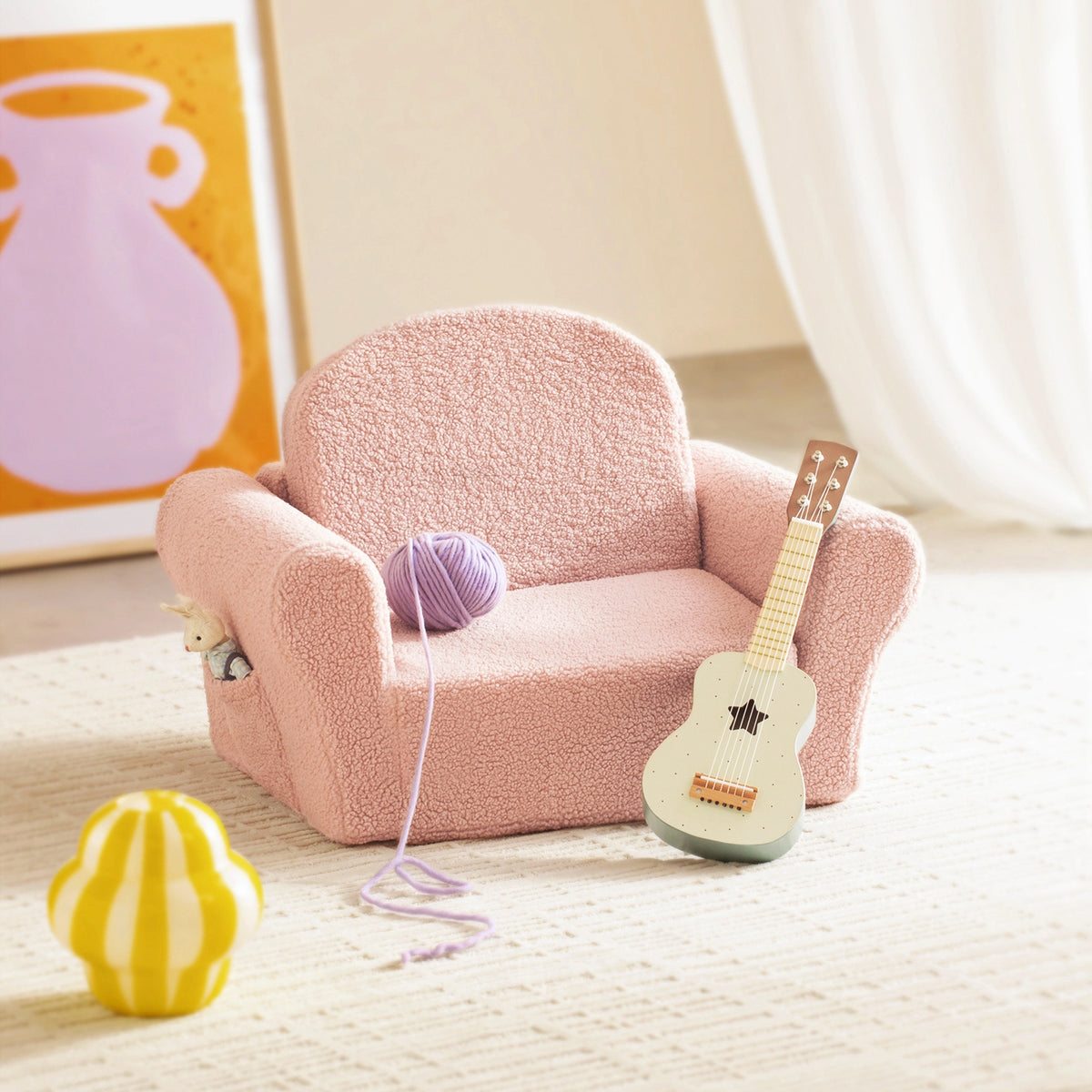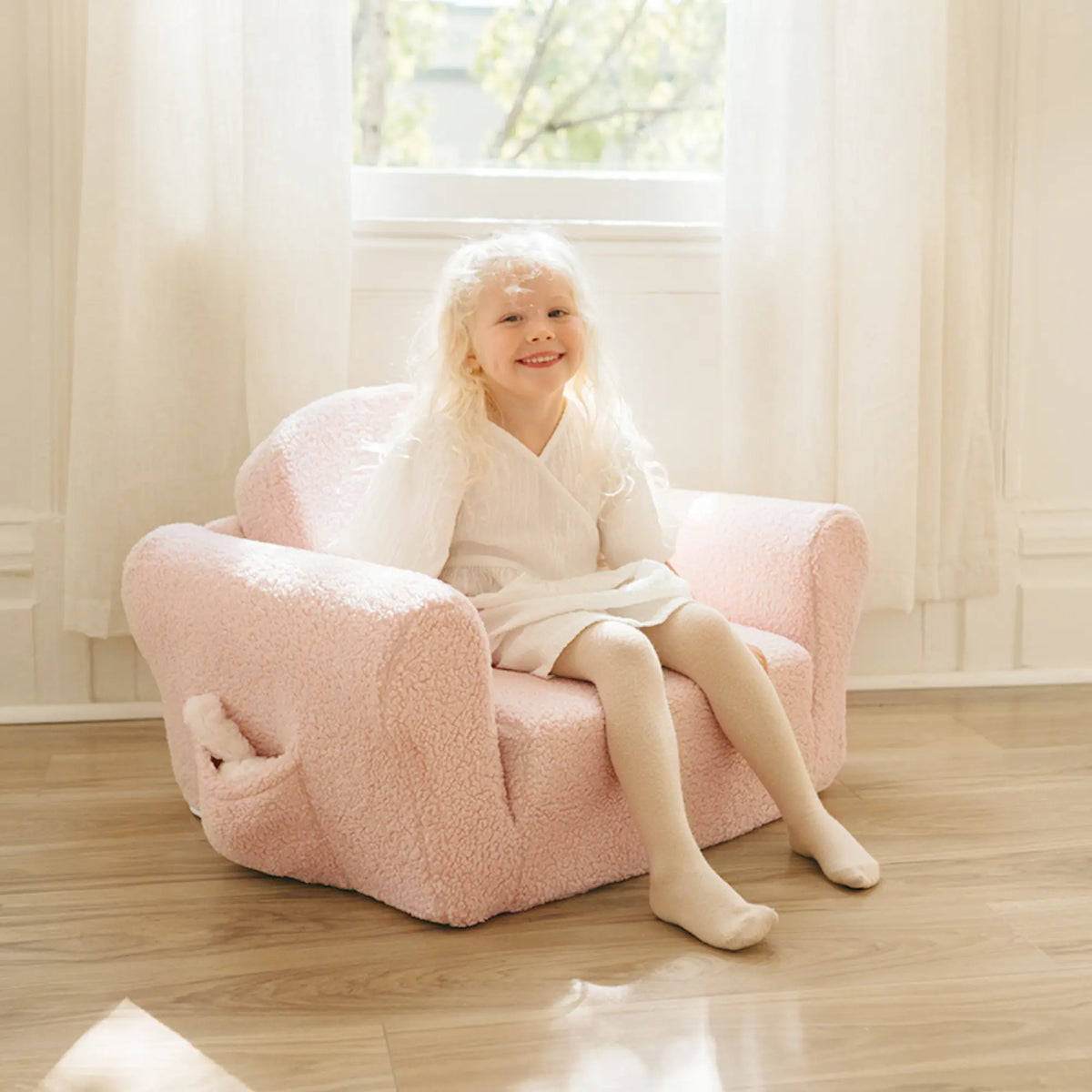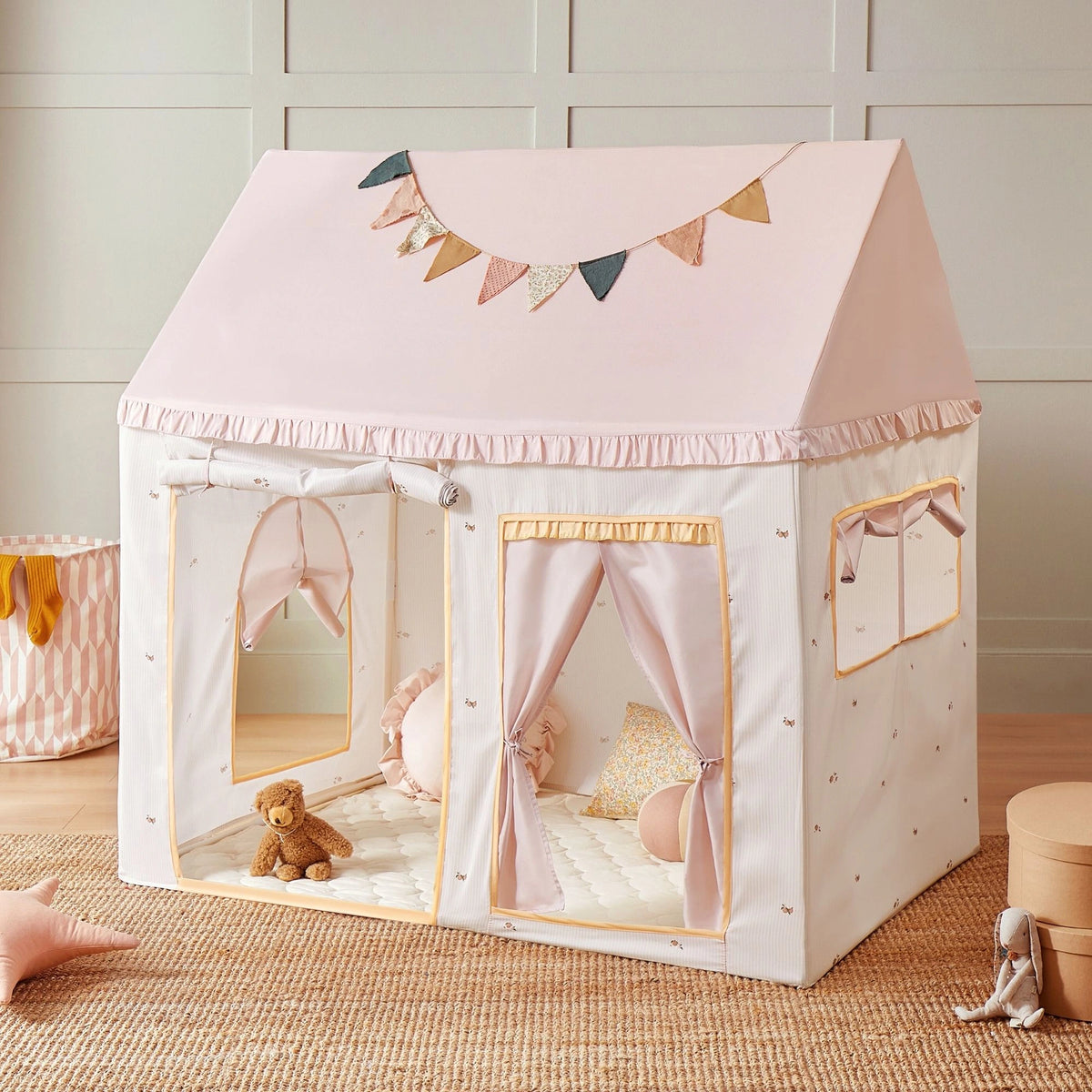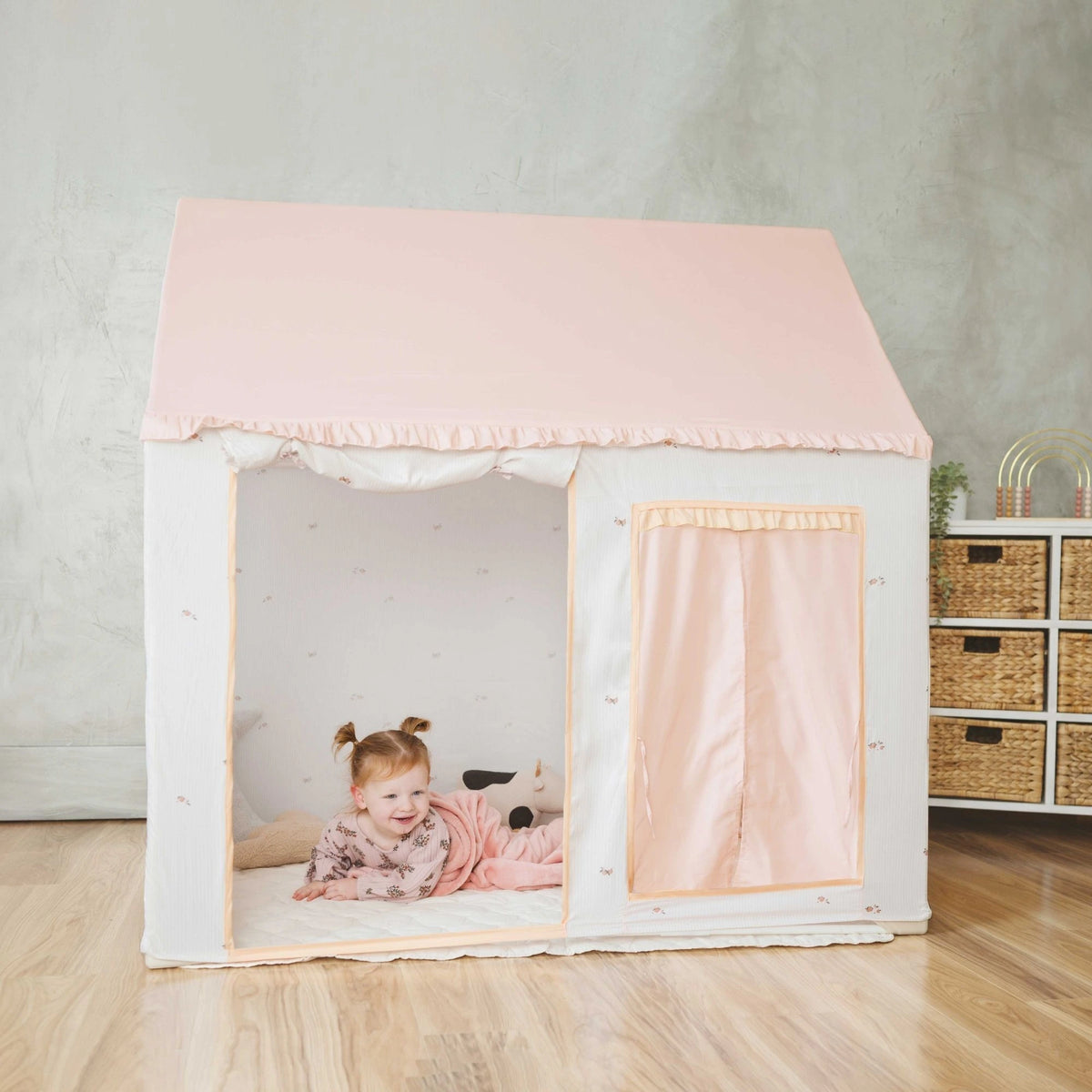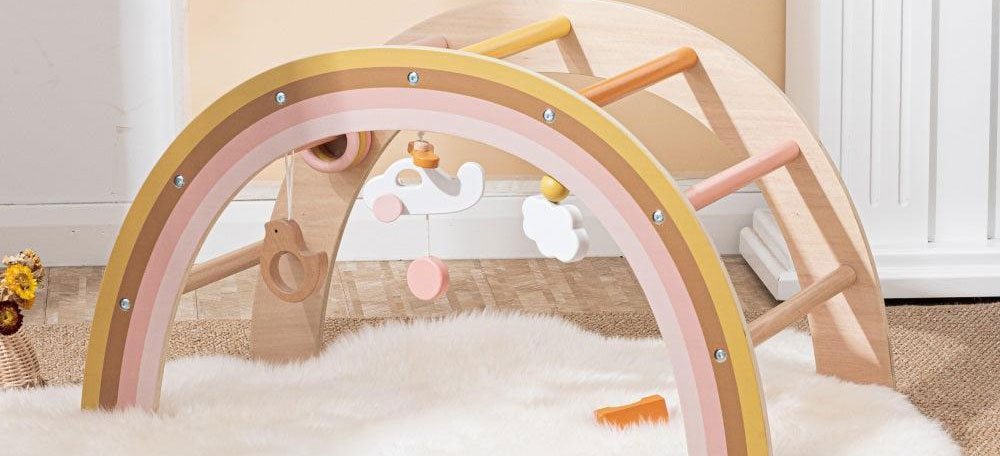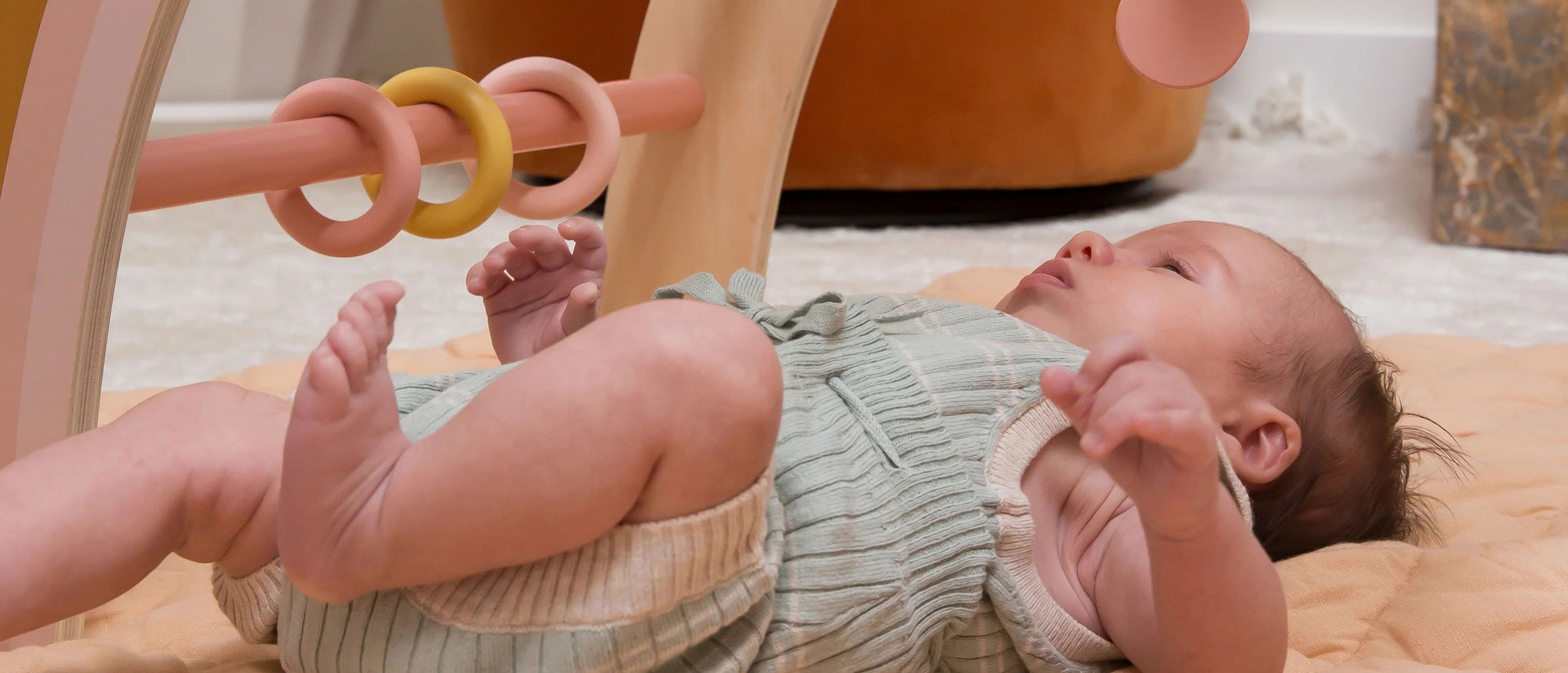The play gym for babies is colorful and interactive setups provide a safe and stimulating environment for your little ones to explore and learn. With dangling toys, textures to touch, and captivating sounds, play gyms engage your baby's senses and encourage their motor skill development.
In this introduction, we'll delve into the benefits, age-appropriate usage, and tips for choosing the perfect play gym to aid your baby's growth. Whether your baby is just a few months old or beginning to roll and reach, a well-designed play gym can be a wonderful addition to their early developmental journey. Let's discover the exciting world of play gyms together!
Are play gyms safe for babies?
Play gyms can be safe and enjoyable for babies when used appropriately. These colorful and interactive setups offer various sensory stimulations that aid in their development. To ensure safety, opt for play gyms designed with soft, non-toxic materials, securely attached toys, and a stable structure.
Always place the play gym on a flat surface and supervise your baby during playtime. This prevents accidental tumbles or entanglement. Regularly inspect the toys for any signs of wear or loose parts, replacing them if necessary. Choose play gyms with age-appropriate activities to promote learning and engagement.
Remember, every baby is unique; some may show more interest in the play gym than others. If your baby starts to show signs of discomfort or becomes fussy, it's time for a break. With the right precautions and attentiveness, play gyms can offer a haven for your little one's exploration and growth.
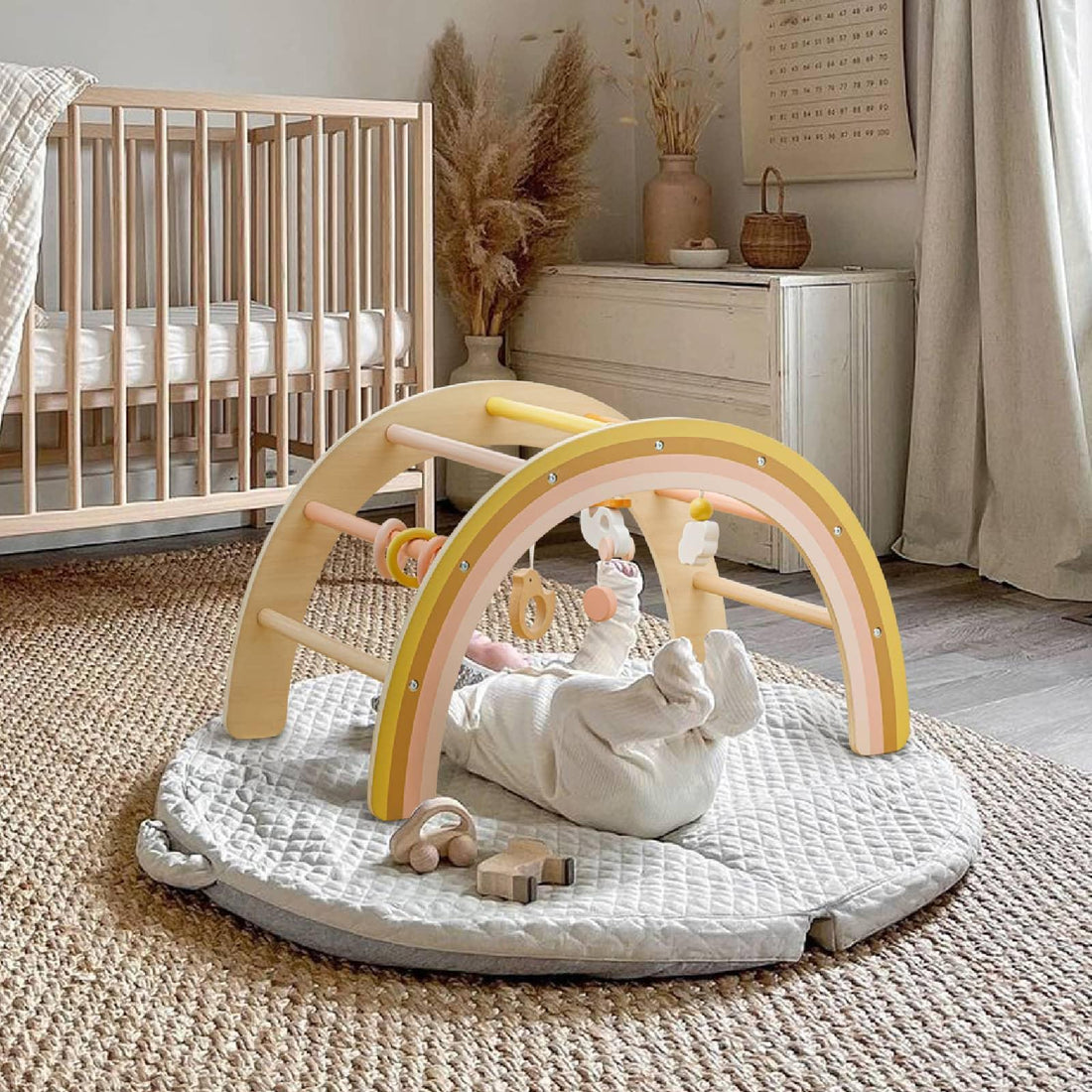
What Age Should baby use play gym?
Babies can start using play gyms around 2 to 3 months of age. At this point, they begin to develop motor skills and hand-eye coordination. Place them on their back under the play gym's dangling toys, which encourage reaching and grabbing. As babies grow, they become more engaged and curious, making the play gym even more beneficial.
Once they start rolling over, usually around 4 to 6 months, you can adjust the playtime to accommodate their new movements. Always supervise and interact with your baby during play gym time to make it an enjoyable and developmental experience.
The benefits of play gym for babies
Play gyms offer a multitude of benefits for babies' development and growth:
Sensory Stimulation: The colorful toys, textures, and sounds on the play gym engage babies' senses, aiding cognitive development.
Motor Skills: Babies learn to reach, grasp, and kick the dangling toys, enhancing their hand-eye coordination.
Tummy Time: Play gyms encourage babies to spend time on their tummy, helping strengthen neck and upper body muscles.
Visual Tracking: Moving toys above stimulate babies' vision and encourage them to track objects, supporting visual development.
Exploration: Different textures and toys provide a safe space for babies to explore and learn about their environment.
Independent Play: Play gyms foster independent play, allowing babies to engage with toys on their own.
Curiosity and Engagement: The variety of toys and activities keeps babies curious and entertained during playtime.
Cognitive Development: Babies learn about cause and effect as they interact with toys that make sounds or move.
Emotional Bonding: Playing together in the play gym can strengthen the bond between caregivers and babies.
Transition to Mobility: As babies grow, play gyms can motivate them to roll, crawl, and eventually sit up.
Routine and Comfort: Establishing a play gym routine can provide a sense of familiarity and comfort for babies.
Remember, each baby is unique; observe their reactions and adjust the playtime accordingly. Play gyms create a fun and enriching environment for babies to learn and explore.
How to find the best play gym for babies?
When choosing the best pikler triangle set for your baby, consider these five points:
Safety First: Opt for a play gym made from non-toxic materials with securely attached toys to avoid choking hazards.
Age-Appropriate: Select a play gym with activities suitable for your baby's developmental stage, promoting engagement and learning.
Sturdy Structure: Look for a stable and well-built play gym that won't topple over during the baby's movements.
Sensory Variety: The play gym should offer a range of textures, colors, and sounds to engage all senses.
Easy to Clean: Babies can be messy, so choose a play gym with removable and machine-washable components for convenient cleaning.
Reading reviews and seeking recommendations can help you find a play gym that fits your baby's needs. Remember that the best play gym encourages safe exploration and learning while keeping your baby happily entertained.
Where to find the perfect play gym for babies?
Looking for the ideal play gym? Check out tinylandus.com for a wide selection. They offer safe, engaging play gyms that promote your baby's development. From sensory toys to sturdy designs, you'll find options suitable for your little one's needs. Explore their range today and give your baby a joyful learning experience!
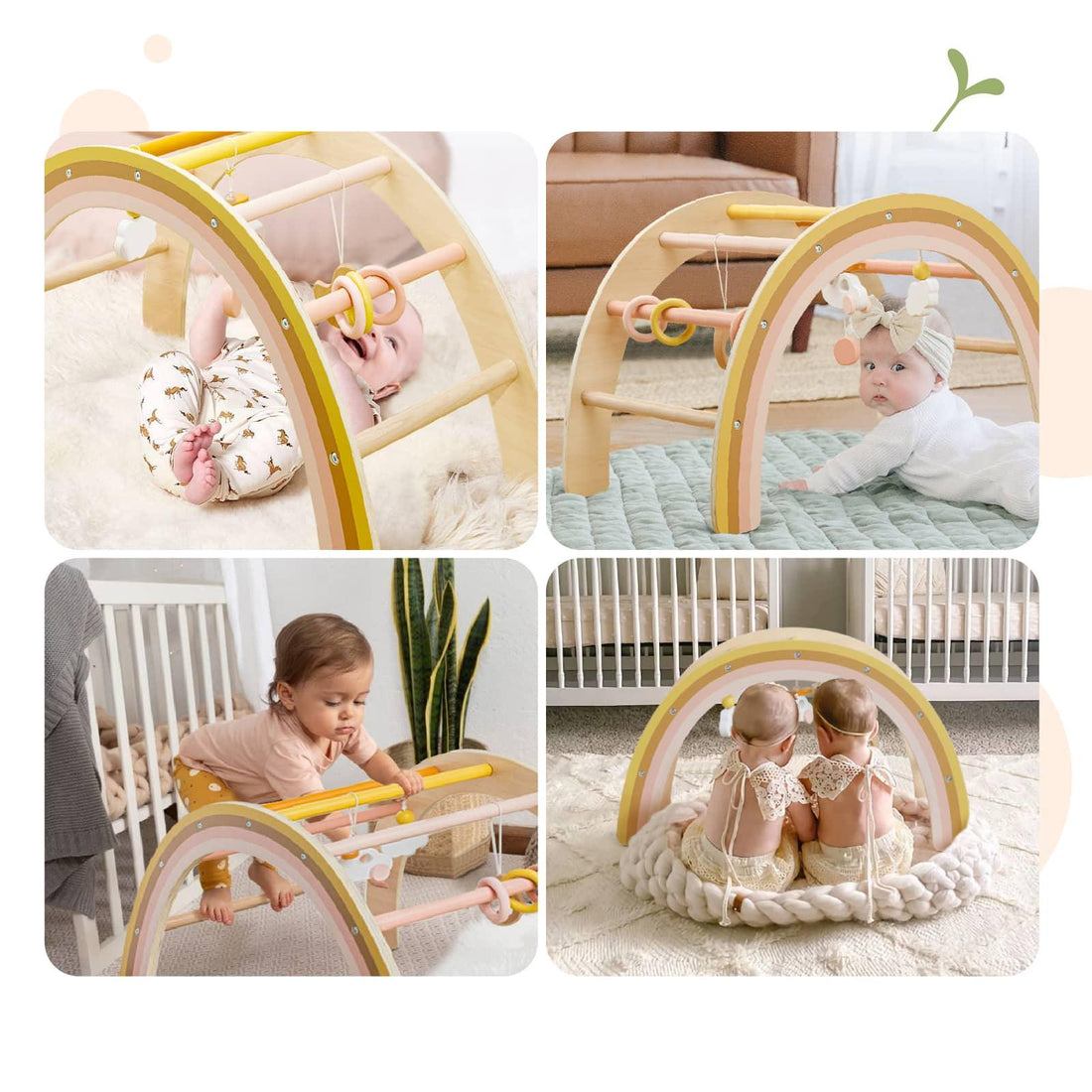
FAQs
Are play gyms suitable for newborns?
Play gyms are designed to be more beneficial for babies who are around 2 to 3 months old or older. At this stage, babies are developing their senses and motor skills, making play gyms more engaging and helpful.
How can play gyms help with development?
Play gyms provide various sensory experiences through different textures, colors, and sounds. This sensory stimulation aids in cognitive development. The dangling toys encourage babies to reach, grasp, and kick, enhancing their hand-eye coordination. Visual tracking of moving toys also supports the development of their visual skills.
Can my baby sleep in the play gym?
It's important to note that play gyms are not designed for sleep. Babies should always sleep in a safe sleep environment, such as a crib or bassinet. Play gyms are meant for awake and supervised playtime.
What's the recommended playtime for my baby?
For babies, shorter play sessions of around 10 to 15 minutes are generally more suitable. Longer sessions might lead to overstimulation or fussiness. Gradually increase playtime as your baby grows and shows more interest.
Are there any alternatives to traditional play gyms?
If a traditional play gym isn't available or preferred, you can use activity mats or soft blankets with attached toys. These alternatives still offer sensory experiences and encourage your baby's exploration and play.


